CURRENTS
Vol. CXXIII
When Words Fail: Music’s Unspoken Power
Pages 31-34

’I’ve Become Inherently More Confident’: How Adulthood Emerges in College
Pages 45-48
YOLO as a Lifestyle: Roommate Tales of ‘Just Saying Yes’ Pages 51-54

When Words Fail: Music’s Unspoken Power
Pages 31-34

’I’ve Become Inherently More Confident’: How Adulthood Emerges in College
Pages 45-48
YOLO as a Lifestyle: Roommate Tales of ‘Just Saying Yes’ Pages 51-54
story by Anezka Liskova
by Liam Zieg
Burrow
Iwas born in the Czech Republic and grew up in a small town called Ráječko, with a population of just 1,400 people. My parents, who had spent their entire

lives in and around that town, faced a life-changing decision when I came into the world. They were determined to give me the best opportunities possible, even if it meant leaving everything they had ever known.
So, with heavy hearts and hopeful spirits, we moved to Prague, the capital of the Czech Republic. My parents knew that relocating would provide me with the best education possible and, perhaps even more importantly, the chance to become fluent in English, a language they believed would unlock many doors to my future.
The move wasn’t easy, but we somehow guided our way through it together. They made this leap, knowing it would challenge them but also believing it would change our lives for the better.
And it did. Fast forward to when I was 18 years old: I graduated from the International School of Prague, having spent 12 years preparing for the moment I would finally fulfill my dream. I was moving to Malibu to attend Pepperdine University.
That summer, I was buried in a never ending amount of paperwork and days at the U.S. embassy, waiting to hear if I’d receive my student visa. When it finally came through, I was overjoyed, but nothing prepared me for the heartache of saying goodbye to my parents. It wasn’t just a goodbye for a few months — it was a goodbye to my childhood.
August and September of my first year were amazing. Every day felt like a vacation, spending my days with friends and going on adventures around Malibu and Los Angeles. Until one day, where everything all of a sudden flipped.
I was hit with an overwhelming sense of loneliness and anxiety. Days felt heavy, and despite having a wonderful group of friends and living in the place I had always dreamed of, the emptiness wouldn’t leave.
But never once did I think about transferring or moving closer to home. Deep down, I knew that Malibu was where I was meant to be. I held onto that hope, believing that with time, things would fall into place. And they did. This dream became my reality.
This journey inspired this magazine. Inside, you will find a number of articles that reflect exactly these points in life and the feelings we all feel. You will find stories on the importance of taking risks, maturing throughout college, living with the YOLO mindset and learning how to communicate through differences.
With this magazine, I want you to feel seen. To know that your struggles are OK and that the path to your dreams won’t always be easy, but it will be worth it. To know that amazing things take time, and even through the hardest days, sticking to your goals will lead you to places you have always dreamed of.

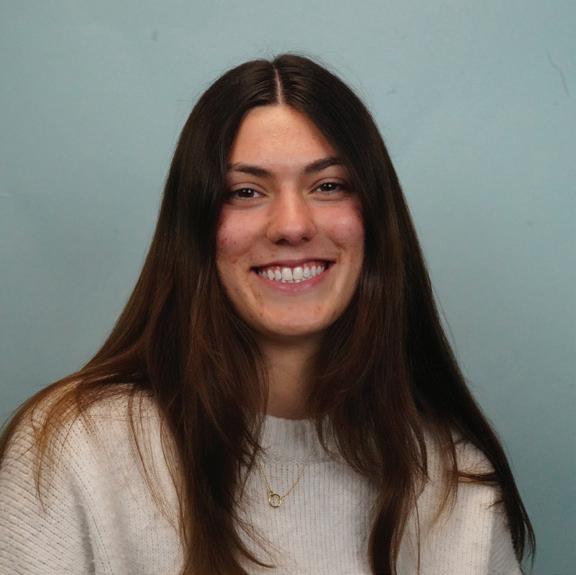
Assistant Editor
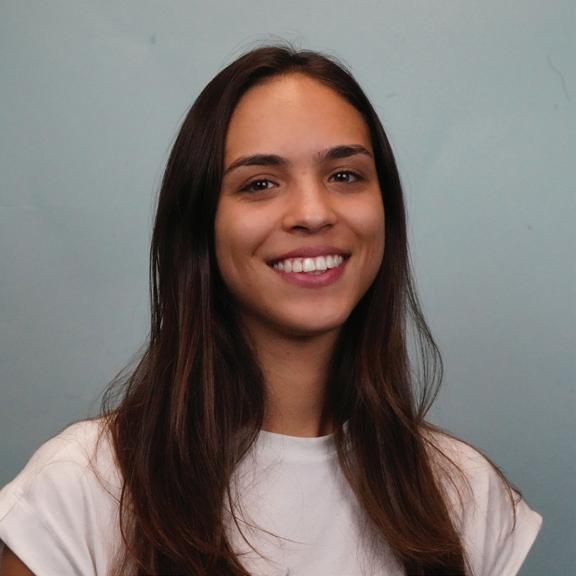
Production Assistant I
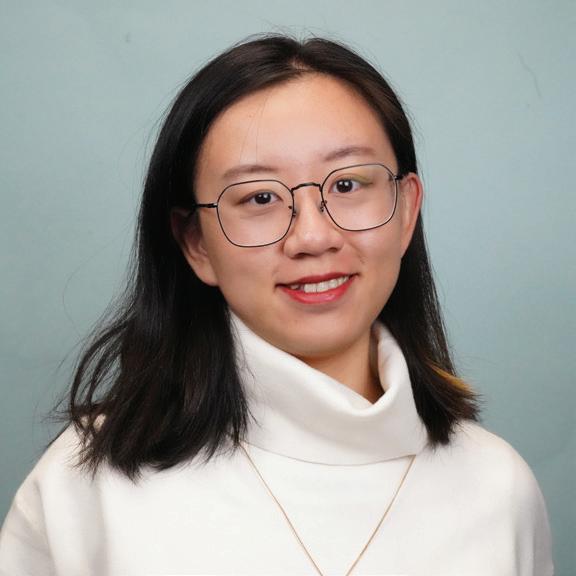
Design Assistant

Staff Artist
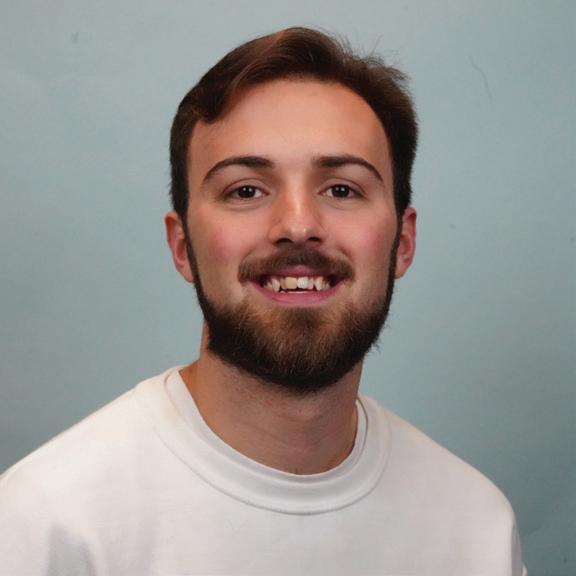
Assistant Editor

Production Assistant II

Design Assistant
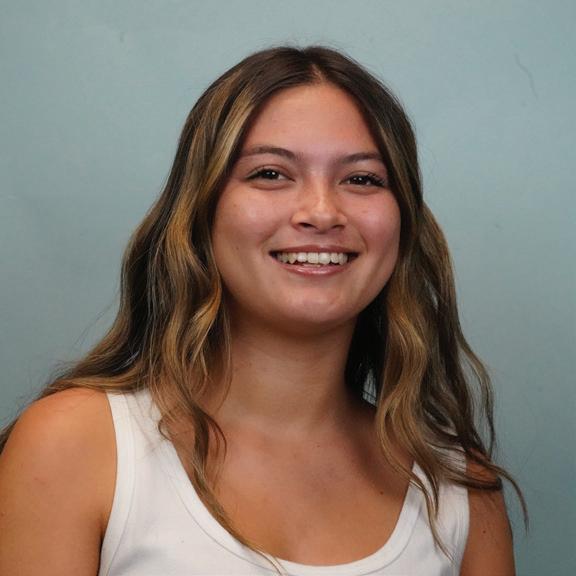
Production Assistant I
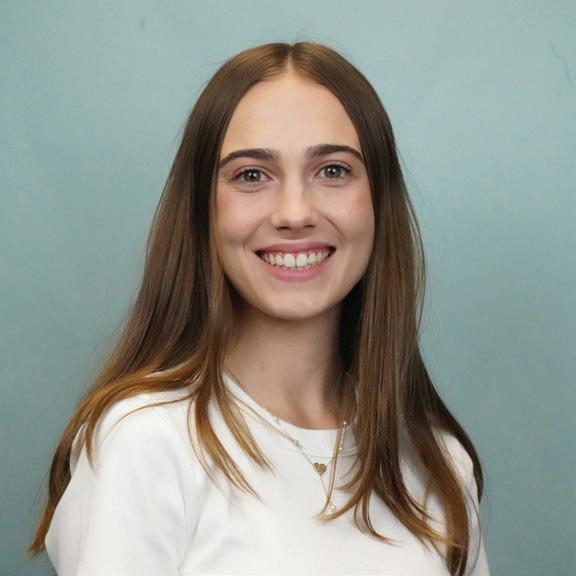
Lead Designer

Photo Editor
Alicia Dofelmier
Nina Fife
Adviser
Christina Littlefield, Associate Professor of Journalism and Religion
Rachel Flynn
Melissa Houston
Mackenzie Krause
Madison Luc
Justin Rodriguez
Karla Suzuki

Finding the Deeper Meaning in Travel
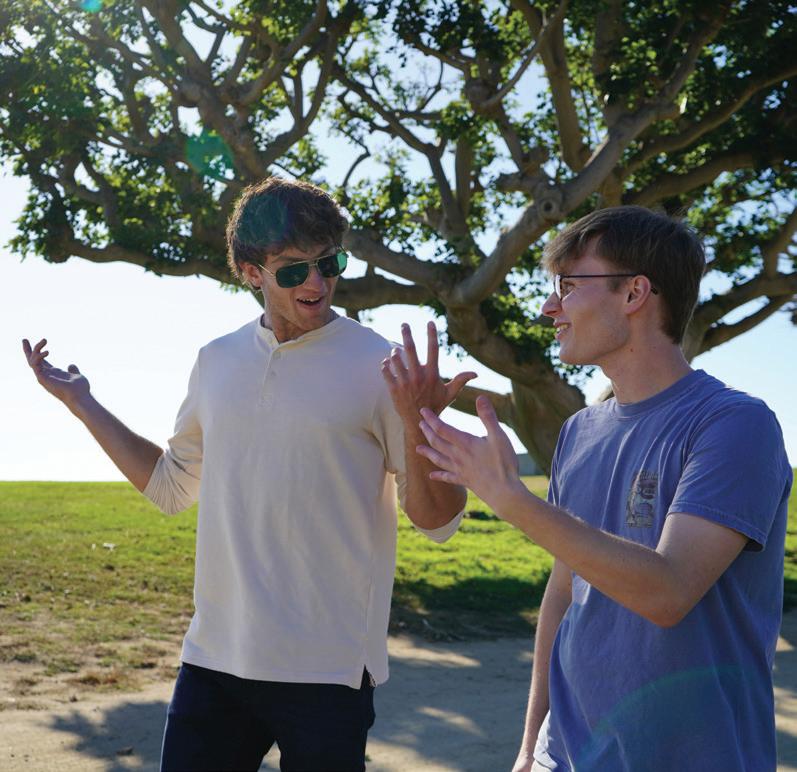
Students Uncover the Beauty of College Friendships

Students Share Their Favorite Foods
Justin Rodriguez
Amanda Monahan
Maximilian Pohlenz
Liam Zieg Karla Suzuki
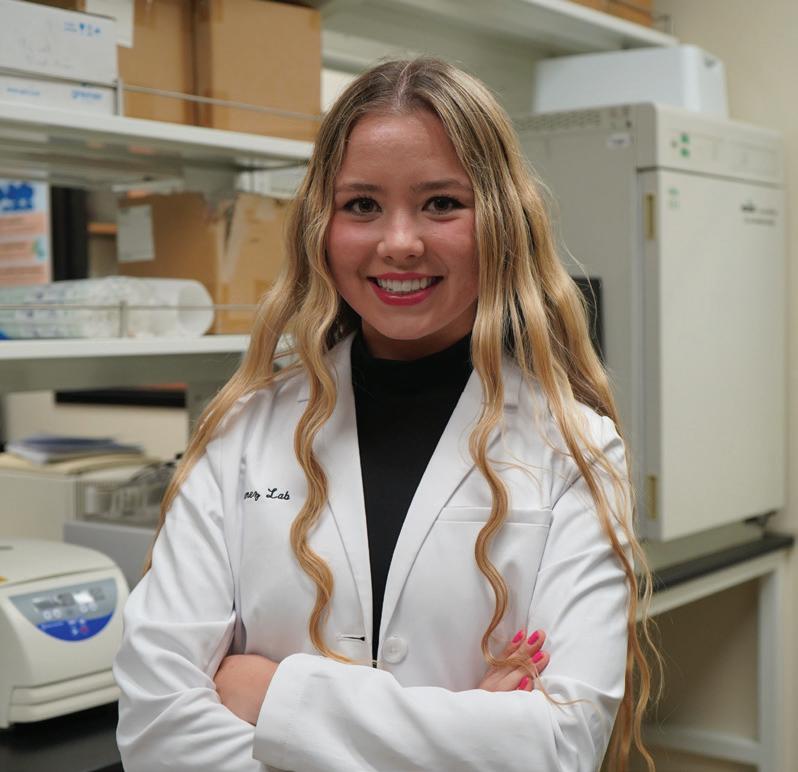
Profile: Madison Johnson
Mackenzie Krause


Anezka Liskova
Profile: Parker Beard
Melissa Houston
How Adulthood Emerges in College
Tony Gleason
Rachel Flynn
YOLO as a Lifestyle

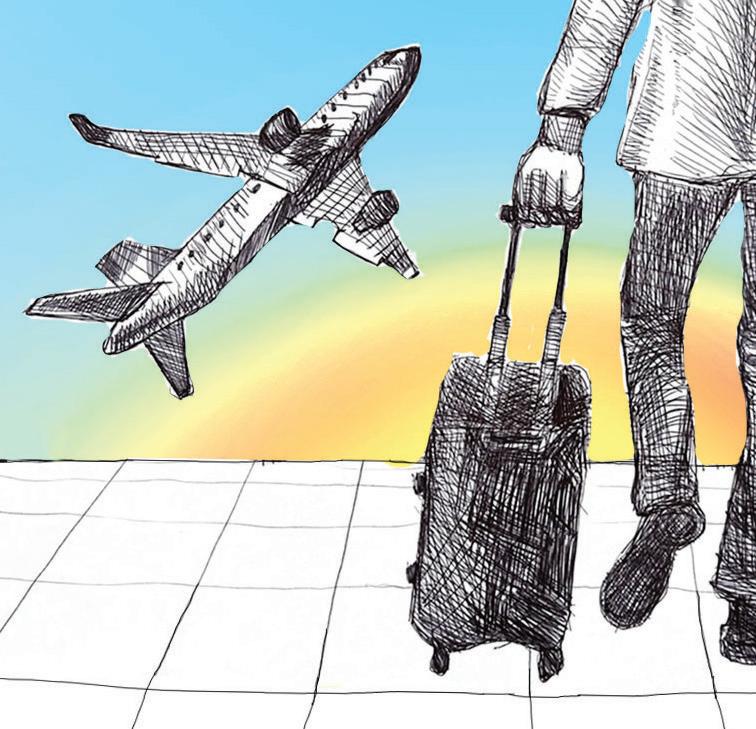
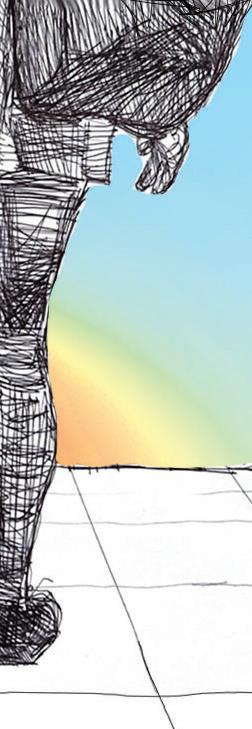
story by Alicia Dofelmier
by Mary Palumbo design by Laury Li
Many people view travel as a chance to see and experience a new place, which is why so many people love to do it.
Both students and faculty at Pepperdine said they have experienced firsthand just how life-changing traveling can be.
“Travel is being immersed in a place where I can engage with people and challenge my own experiences,” said Charlie Engelmann, senior director of International Programs.
Ron Cox, dean of International Programs, said he enjoys traveling because of the ability to see and experience new things.
“I love to travel because of the joy of discovery and of seeing things that I thought I knew and discovering new aspects of those things,” Cox said.
Junior Vera Syers loves traveling because of the challenges it brings. Figuring out difficulties can be a confidence booster, she said.
“I think traveling presents a challenge and accomplishing a successful trip is such a victory for me,” Syers said. Syers said she believes that her parents are responsible for her love of travel.
“I honestly can’t imagine living without traveling since it’s been a part of my life since I was very young,” Syers said, “whether that was leaving the country or just moving to a new state.”
Junior Brantley Holladay said her brother inspired her to travel. She saw the way that travel changed the way he viewed the world, which is what sparked her interest in it.
“Traveling is something new and unexpected and you don’t know what’s going to happen,” Holladay said. “You don’t know if everything is gonna go exactly to your original plan but it’s always thrilling and exciting.”
Cox used the metaphor of a Western town movie set to describe how he gains fulfillment from traveling.
A Western town movie set would
have facades for shop fronts, Cox said. However, the longer you’re in a place the more real it becomes. Then, it’s not just walking onto a movie set that looks like Europe or Asia but it’s actually being in Europe or Asia.
Engelmann said he has a similar experience in which he believes that traveling is not only about understanding the world better but specifically people in the world, which helps to make the experience more substantive.
Taking the opportunity to view travel as an educational experience in addition to a vacation can help change and enhance one’s worldview.
“Travel has definitely changed the way that I view the world in the sense that I would consider myself more open-minded and empathetic,” Holladay said.
Cox said the beauty of good travel is that it can open his mind.
“I had the fortune of being able to go to Uganda, Africa in 2010,” Cox said. “While there, I had momentary thoughts of how I should behave, but then I was able to be there and be present to the people around me.”
Syers said traveling to Kenya helped her realize that the world is more similar than different.
“When I went to Kenya I had the chance to get to know some girls there and it was so funny how similar we were,” Syers said. “It was really cool to find bits of myself in people around the world. It made me feel closer to home and so connected to everyone else.”
Engelmann said it’s important to be able to step away from one’s own cultural bubble because that’s when one can begin to view the world in a different light.
“When we leave our cultural bubbles, we start seeing that things are different and that people see the world differently,” Engelmann said. “Ultimately, it helps me to have more compassion for people when there’s a misunderstanding. It’s hard to do that unless you cross out of your cultural bubble and experience.”
For many students, attending college brings many beautiful experiences and new people into one’s life. Pepperdine students said their friendship journeys have led them to grow, learn and share experiences with people they never thought would become their home away from home.
“I think I’ve learned to be more open to new experiences,” senior Bella Knudson said. “Having such great friends helped me take more opportunities.”
Moving to college is a chapter of life that allows people the opportunity to form new friendships, as students get to meet people from diverse backgrounds.
“It’s great to maintain relationships from home,” said Kelly Haer, executive director of the Boone Center for the Family. “But also being mindful to really live where you are and give your time, energy and focus to relationships and people where you are.”
Arriving at college can mean feeling nervous about meeting and living with a new roommate. However, Knudson and senior Lauren Lee said they felt a connection right away. The two had previously talked on Instagram, where they decided to be roommates, but Knudson
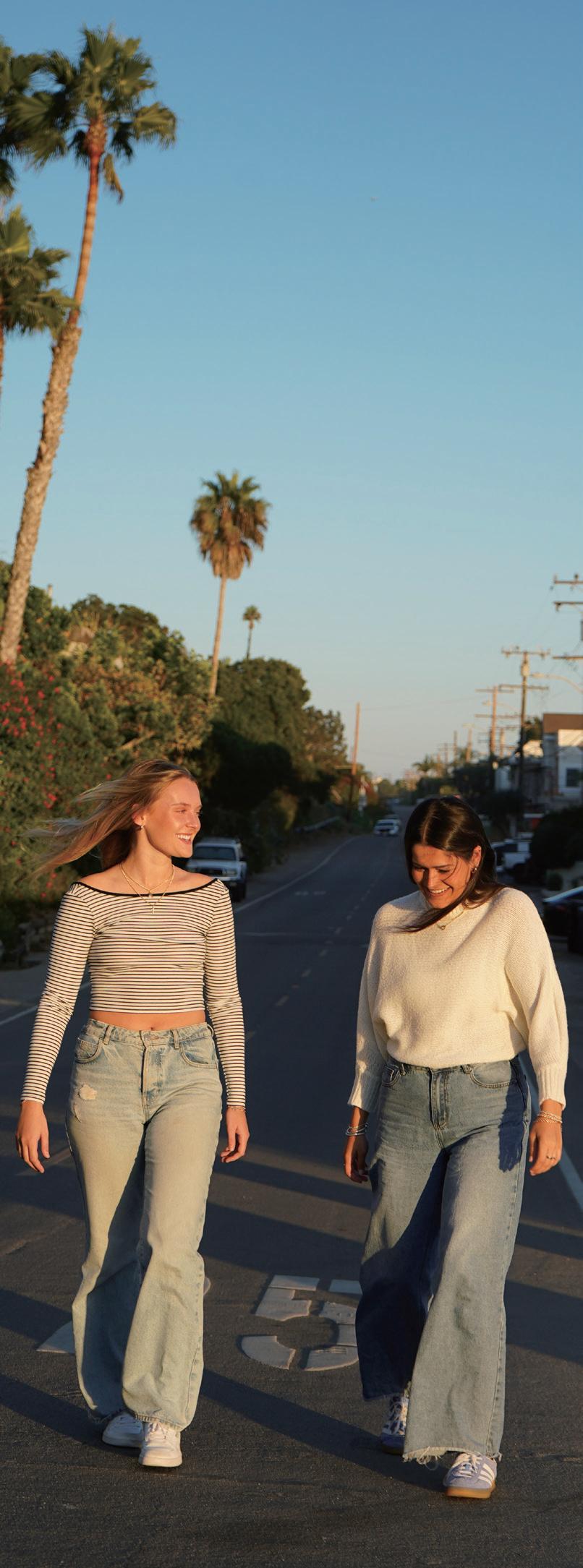
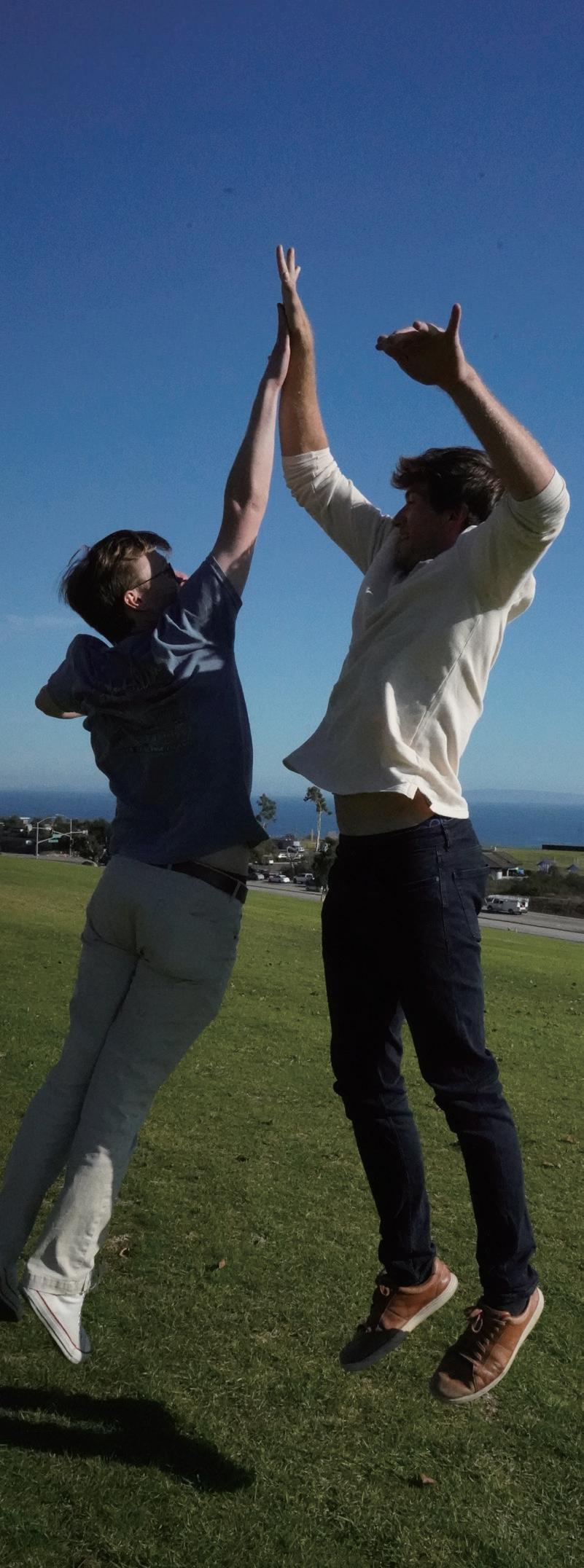

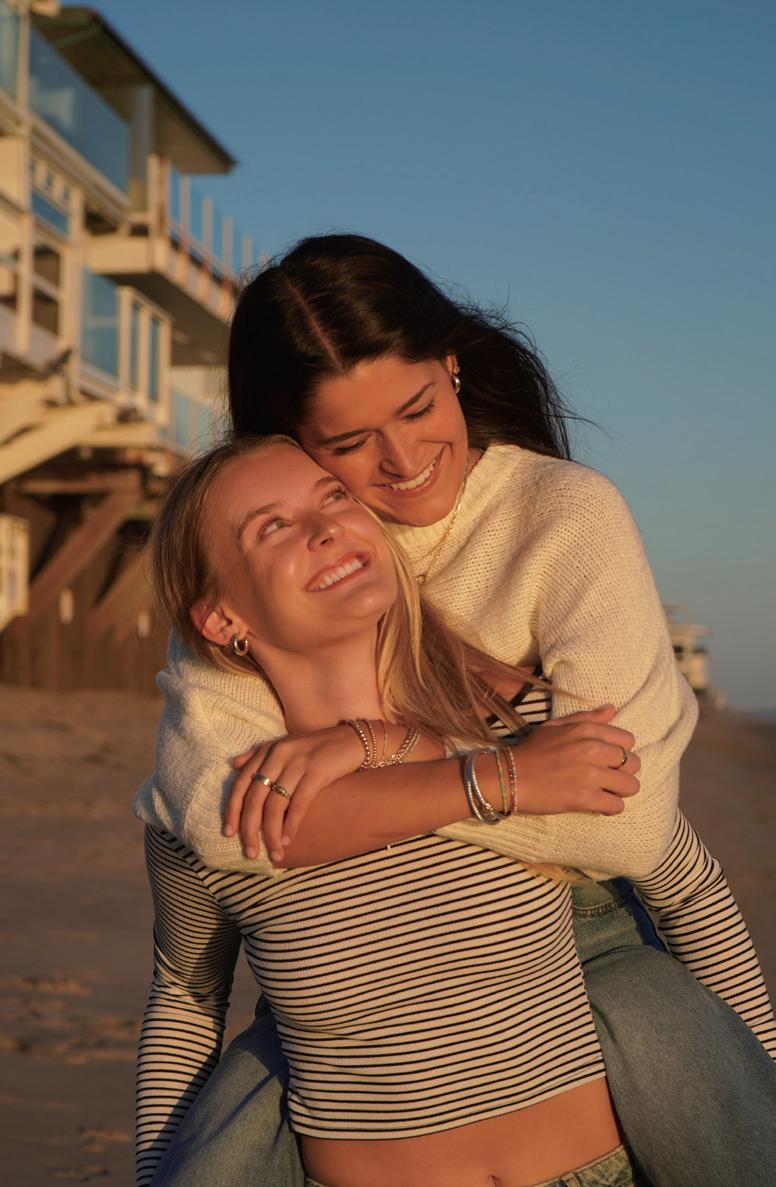
and Lee met for the first time in person during New Student Orientation.
“As soon as we talked to each other, three messages in, we said let’s be roommates,” Lee said.
Their friendship evolved throughout their first year, and by sophomore year, both Knudson and Lee said they went abroad not knowing their living arrangements for the next semester.
Coming back from studying abroad, they said they were separated, and after
every week, it’s called Happy Hour,” Knudson said. “I always say it’s our designated hangout time.”
Putting oneself out there is a very important and challenging task in college. However, finding extracurriculars can help students meet new people and can be key to forming new friendships.
Senior sorority sisters Ava Stottlemyre and Rianna Smith said they joined their sorority, Kappa Kappa Gamma, during their first year and were part of the same group of new members.

a lot of communication with Housing and Residence Life, they were able to be placed in the same room.
“We were begging the resident director to put us in the same room and eventually it worked out,” Knudson said.
From living together their first year until senior year, Knudson and Lee said they have learned a lot from each other and appreciate their friendship. Their time at Pepperdine has bonded them, and their experience would have looked completely different without having one another.
“We have a radio show that we do
“We knew of each other, we were in the same pledge class,” Smith said. “But had I not gone with her to get ice cream we wouldn’t be sitting here today.”
Smith said that during Sigma Chi’s philanthropy event, Stottlemyre and her stumbled upon one another and decided to get ice cream with other women from their same sorority. Since then, they haven’t spent a day apart.
Outside of the philanthropy event, both of them said they felt their sorority has played a huge role in how they met and their friendship.
In a similar way, junior Daniel Cardenas and Mario-Andre Dominguez said they also met through their fraternity, Sigma Chi, where they developed a deeper friendship through events and spending time together.
“My sophomore year I didn’t want to rush, and he brought me out and made sure that I was active,” Dominguez said.
Since participating in the recruitment process, Dominguez and Cardenas have become fraternity brothers and Dominguez said this decision has completely changed his Pepperdine experience for the better.
“Seriously, when you’re not looking for something, it comes and it’s there and that’s exactly what happened,” Smith said.

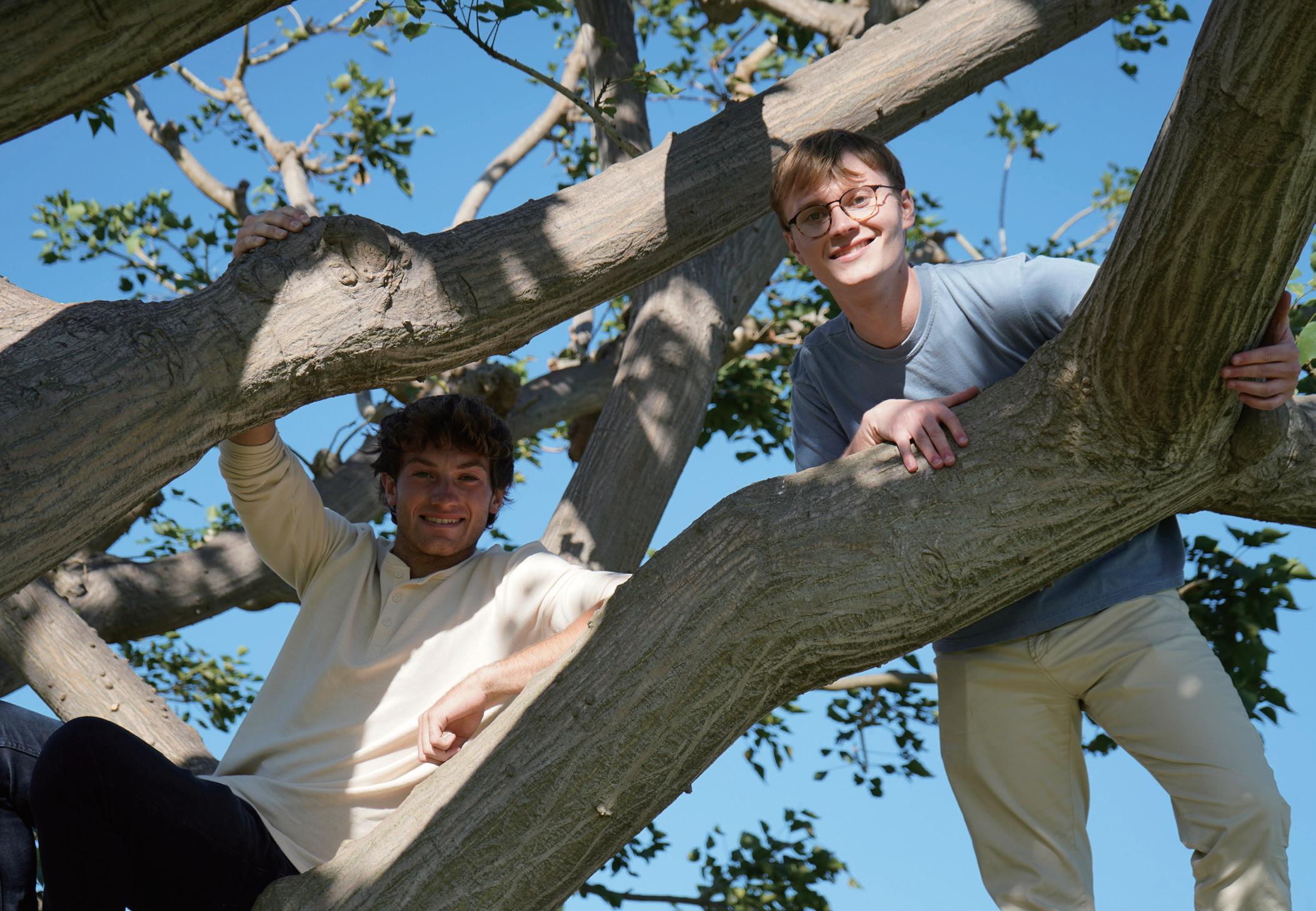
Studying abroad can be a step outside of one’s comfort zone, as students oftentimes go abroad not knowing anyone or what to expect. Senior Caleb Bearman said he studied abroad in Heidelberg, Germany, during the Spring 2023 semester, which is where he met one of his best friends, senior Nathaniel Evans.
“We really hung out on our first trip that weekend to Sigmaringen, Germany,” Bearman said. “Me and him got just tighter over the semester.”
Bearman said he had never met Evans before going abroad, but did have close encounters with him the first year, where he realized they should have met.
“Technically we should have crossed paths but we never did,” Bearman said.
Since they met in Heidelberg, they have become close friends and had the opportunity to travel to iconic places together that they will never forget.
“We did an Italy trip so we went to Venice, Rome and the Amalfi Coast, and the two of us really bonded,” Bearman said.
In the future, Bearman said he would like to keep taking trips with Evans, even though it might not be as far as the Amalfi Coast. Through moments of uncertainty while studying abroad, Bearman found a friend he can always count on.
Haer said the biggest predictor of life satisfaction is the quality of healthy relationships.
Finding true friends during college is difficult, however, Dominguez and Cardenas said they have helped and encouraged one another throughout the years.
“Daniel really helped introduce me to new people my sophomore year,” Dominguez said. “He’s not afraid to talk to new people, and he also pushes me to do more things.”
His friendship with Cardenas influenced Dominguez to get out of his comfort zone more, which he said helped him transition into college life.
“The biggest way Mario has
impacted my college experience is by being a friend,” Cardenas said. “Always being there, and always giving me his honest opinion.”
In a similar way, Stottlemyre and Smith said they are grateful to have found such a deep connection with each other.
“I think she is one of the most humble people I know, and that is something that is so important,” Smith said.
Smith said having a friend who is humble like Stottlemyre has helped her see the types of people and friends she wants to have in her life. They both have shown one another their character and values, which make their friendship strong.
“She always has a smile on her face and she is always cracking a joke,” Stottlemyre said. “She makes everything she is a part of more enjoyable for everybody.”
Finding each other has inspired both to admire one another as Stottlemyre and Smith said their friendship was a gift that they did not expect coming into Pepperdine.

When starting college, many students have to move away from the place they’ve called home. This can be a short hour drive, or involve

moving across state lines or around the world.
About 10% of Pepperdine’s student body is made up of international students from over 80 different countries, according to the university’s website. Many international students said they naturally miss their friends and family, but they also miss the cuisine of their home country.
“I am a big food eater, and I feel the
real lack of that soul food out here,” junior Jason Alius-Piedade said. “Every time I’m home, it feels very nostalgic to be back home and eating proper food.”
Alius-Piedade said he was born in England and raised in Dubai, but his nationality is Italian. In his opinion, the United States lacks the amount of

seasoning he is used to in Dubai. Some dishes will use 30 different types of spices for one piece of chicken.
“I think what they do a lot more in Mediterranean dishes specifically, is they really heavily season their things,” Alius-Piedade said. “I really do sense that difference in taste.”
On his Italian side, Alius-Piedade said he has not been able to find a proper carbonara pasta in the United States. He has been able to find a similar dish, but nothing compares to what he is looking for.
“I think the closest thing you guys have out here is vodka pasta, but it doesn’t hit the same,” Alius-Piedade said.
Growing up in Dubai, Alius-Piedade said he is very particular about his Mediterranean foods. Some of his favorite dishes include tabbouleh salad, chicken shish tawook, beef fokhara and hummus with pita bread.
does harbor a deeper sense when I eat that food because of that connection.”
“When I eat that food, I get a taste of those intimate moments with my friends back then in the middle of the night.”
Saturday back home,” Saucedo said. “It was something we always had during the weekends with my family or if you’re with friends in the morning.”
Salteñas are a perfect meal for the morning after a night out, Saucedo said. This heavy meal was ideal when he would get back late and sleep until noon.
One of the aspects that makes salteñas so unique is how accessible they are. Saucedo said they can be sold for $1 in practically every store in Bolivia.
“If you’re craving it, you just go and buy it,” Saucedo said. “It’s something everyone craves all the time. I feel like people bond over that craving.”
Saucedo said one of his favor ite memories associated with salteñas was at his going away party before college.
“The hummus with the pita bread
ic and super smooth and creamy that you guys just can’t recreate out here,”
tomary to eat between the hours of 11 p.m.
us-Piedade said. While this may lows food to serve
rants are open 24/7,” Alius-Piedade said.

Alius-Piedade said these moments are similar to times when someone is sit ting around a fire pit with friends staying up late, sharing food and making memories surround ed by a sense of warmth.
“When I eat that food, I get a taste of those intimate moments with my friends back then in the middle of the night,” Alius-Piedade said. “It really
Jason Alius-Piedade Junior
This sentiment of sharing connections through food was common among most international students. Senior Fabian Saucedo said he misses the inti mate moments he had with his family while they shared a meal.

“I feel like Latin cultures are very collectivist,” Saucedo said. “It’s just the waking up and hav
Saucedo is from Santa Cruz de la Sierra, Bolivia, and said thees most from-
tries with a doughy exterior, filled with a chicken or beef soup inside. Saucedo compared this dish to a pot pie.
“We had it almost every
“I remember my send-away party be fore college, I decided to do it at brunch time,” Saucedo said. “I just got everyone salteñas and I took a video of me having the last five.”



his favorite food, other international students go above and beyond for their native dishes. Sophomore Chloe Mawuenyega cherishes food from her home so much, she brings it with her to school.
“I quite literally freeze food from back home and bring it here every single semester to last me as long as they can,” Mawuenyega said.
Mawuenyega is from Accra, Ghana in West Africa. She said one of her favorite dishes is jollof rice, which she was already down to her last pack of two months into the Fall 2024 semester.

“A lot of them reminded me of sitting at the dining table with my family, which is why I love them so much.”
Chloe Mawuenyega Sophomore
“I’m actually mourning it, because I don’t know how I’m going to survive without it,” Mawuenyega said. “I think that Ghanaian food is some of the best West African food.”
Another dish Mawuenyega said she enjoys is waakye, a rice
reminded me of sitting at the dining table with my family, which is why I love them so much,” Mawuenyega said.
A specific memory that sticks out for Mawuenyega is something she refers to as “Tabletop Tuesdays.” Growing up, Mawuenyega said her mother would have someone help her make food in the kitchen before they all sat down together. The dishes could vary from Ghanaian delicacies to heavier meals.
“We would all help her, and then we would sit down and discuss important topics,” Mawuenyega said. “I’m just very grateful, because I feel like my mom was able to expose me to so many of my cultural dishes.”
Mawuenyega said she hasn’t cooked many of these dishes on her own but wants to start learning. Although she is across the world, food helps home feel a little closer.
“I’m still trying to learn how to make cultural dishes,” Mawuenyega said. “I don’t want it to be something that dies out with me, because I want to stay close to home.”
International students said some places in the States will try to replicate these authentic meals, but most of them just aren’t the same. Each student said they miss the physical meals from home, but they truly miss the community this food brought to their life, whether that


story
Junior Biology major Madison Johnson has dedicated her undergraduate degree to advancing cancer treatment.
Johnson currently works with Antonio Gomez, assistant professor of Biology, to study how a gene-editing tool can activate certain genes in a strand of DNA to rapidly grow cancer cell suppressants, helping those predisposed to cancer. This past summer, she interned at the German Cancer Research Center and studied cancer epigenomics. Johnson said she likes knowing that her research can have a broad impact on the community.
“I always have people come up to me and they’ll tell me their stories about themselves or their family members or someone they know that’s had cancer and how appreciative they are that I am doing the research,” Johnson said. “There’s a whole team of scientists out there who are working toward finding a cure.”
Johnson balances cancer research with her position as president of the Pre-Medical Club, membership in the
Pi Beta Phi sorority and her job as a teaching assistant. Despite her busy schedule, she said her desire to work in research during her undergraduate degree and her reliance on her faith propels her forward.
After studying abroad for the spring semester in Heidelberg, Germany, Johnson said she decided she wanted to stay for the summer.
“It was kind of amazing the way it all fell in place ... I couldn’t say no.”
Madison Johnson Junior
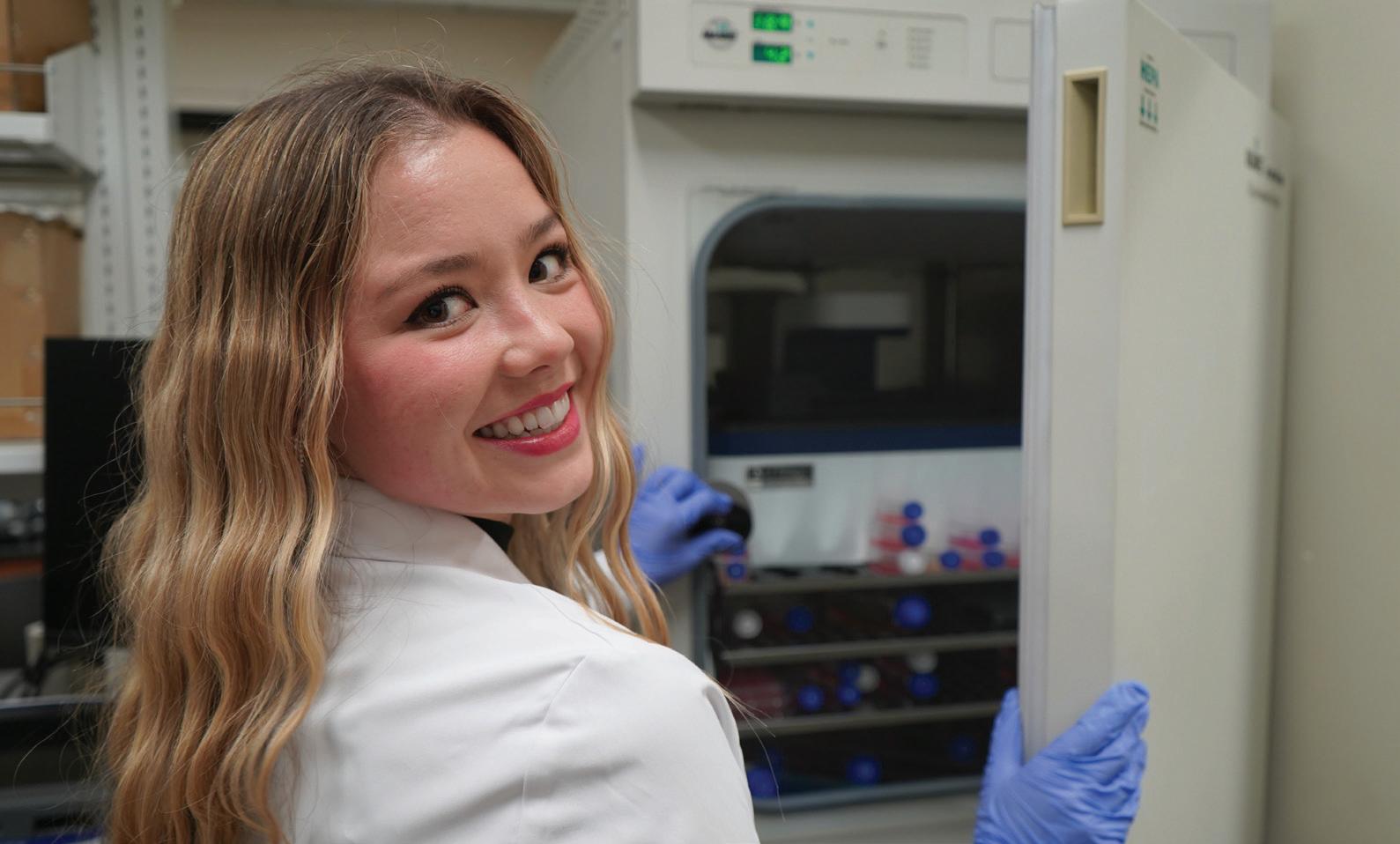
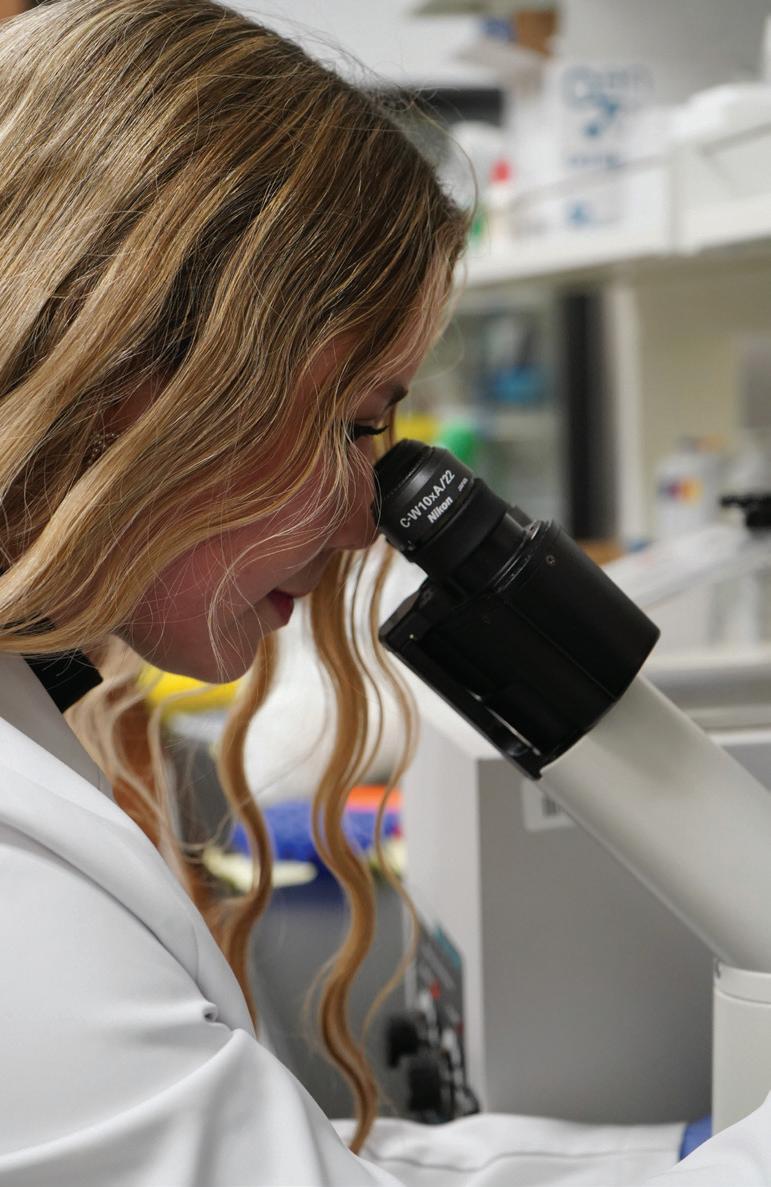
Johnson eagerly started seeking out internships in Heidelberg and eventually found the German Cancer Research Center.
“It was kind of amazing the way it all fell in place,” Johnson said. “I couldn’t say no.”
Johnson said she was able to work with the Pepperdine Heidelberg staff to stay in Moore Haus during her internship.
Johnson said the German Cancer Research Center community felt very similar to the Pepperdine community, making her feel comfortable in her new environment.
The community at the research center was very willing to teach her, Johnson said.
“Everyone was just so welcoming and caring,” Johnson said.
During this internship, Dr. Ashish Goyal in the Cancer Epigenomics division mentored Johnson and she said he was absolutely spectacular.
He guided her through each process and then she had the opportunity to
work on her own, which yielded great results, Johnson said.
“We found that we were seeing activation of these specific repeats in the genome that we were hoping to see,” Johnson said. “We were seeing antigen presentation, all that good stuff.”In order to move on to human cells, researchers first have to prove the experiment is safe and effective for humans, Johnson said.
This caused Johnson to work on mice cells to replicate the process of a successful mRNA vaccine experiment, she said.
“That’s what we were successful in,” Johnson said. “I was able to do the drug treatments by the end of my time there.”
This cancer research aligns with the work Johnson does in Gomez’s lab at Pepperdine’s Malibu campus.
“We’re actually going to start a collaboration between our two labs,” Johnson said. “We might be focusing on kind of doing the experiment I did with the drug but except on breast cancer cells.”
However, the research does vary between the two labs.
In Gomez’s lab, Johnson said she works with CRISPR activation to activate a specific gene in cancer cells and cause overexpression. Overexpression is the switching on of genes in aging cells, according to Science Direct.
Overexpression of certain cells helps to cause a decrease in the cancer cell growth rate, Johnson said. Due to this process, Johnson has worked with molecular cloning and created a plasma system to help with the overexpression process.
“I’ve learned a lot of experiments

and procedures in the past few years,” Johnson said.
Johnson came into Pepperdine thinking she would go to medical school, earn her medical degree and become a physician, she said. However, her research in the cancer field has made her reconsider her career path.
“I’m still kind of deciding,” Johnson said. “I’m taking the MCAT [medical college admission test] this spring, so I’m giving myself the option to go to medical school but I’m also considering a PhD [Doctor of Philosophy] now.”
However, whichever path Johnson decides on, she said she wants to stay in the cancer research world.
“I know that still can happen with an MD,” Johnson said.
Johnson’s friends, loved ones and mentors have nothing but praise for both her character and work ethic.
“She is always someone who is
willing to step out of her comfort zone,” Gomez said.
Junior Izzy Koo has roomed with Johnson for all three years of her Pepperdine experience.
“She is probably literally the most accomplished person that I know,” Koo said. “But it’s because there’s a certain drive in her that really pushes her toward excellence.”
Koo described her roommate as ambitious, a light and a radiant person.
Taylor Johnson, Madison Johnson’s sister and high school sophomore, also praised her sister.
“She is definitely someone that always puts her best work forward,” Taylor Johnson said.
Madison Johnson is hardworking, loving and intelligent, her sister said. Along with the hard work Madison Johnson has put in throughout her academic career, she is also a devout Christian, Taylor Johnson said.
“I think being here has really encouraged me to grow in my faith,” Madison Johnson said. “That really fuels everything I do and also is why I want to give back to the community so much.”

story by Anezka Liskova photos by Liam Zieg
design by Betsy Burrow
ften, people paint taking risks as a daunting endeavor, one that comes with many unknowns and can lead to either potential failures or great success.
But embracing risk-taking can lead to some of the most transformative experiences in life. While the safety of the familiar can be comforting, students said stepping out of their comfort zone is where they have seen true growth happen.
Students and alumni at Pepperdine University have experienced how taking chances changed their lives. Many of them said they feel the urgent need to take a risk in order to reach their full potential.
“If you set a goal that you know you can accomplish 100%, you aren’t thinking high enough,” senior Charisma Greenfield said.
Failure isn’t something to be feared but rather embraced as a natural part of growth. Connie Horton, the vice president of Student Affairs, said risk-taking is anything that stretches and challenges someone, with the realization of the important lesson that ‘life goes on.’
Oftentimes, risk-taking cultivates independence. As a first-generation college student, Greenfield said she faced immense pressure to succeed and make the most out of her education.
During her time at Pepperdine, Greenfield said she was very determined to succeed at her biggest dream of graduating a year early and taking the LSAT at 20 years old. This was to save both money and time, while also challenging herself by graduating three semesters early.
“I wanted to enjoy my 20s by getting the hard work and grind out of the way,” Greenfield said.
This was something many of her
advisors didn’t understand, and it was very hard to convince them to create the schedule she wanted and needed in order for her to reach this goal.
“When I came in with a plan and said help me accomplish it, they really respected that,” Greenfield said.
This wasn’t easy. Whenever she thought about tackling this intimidating goal in such a short period of time, she said she would panic. The key to meeting her goal was confidence and commitment. She graduates this December.
For junior Justin Ramos, leaving his home state of New York to attend Pepperdine was a major decision. The allure of staying close to family and friends was tempting, but Ramos said he knew that staying in a familiar environment would prevent him from truly growing.
He applied to a few schools around the country, but when visiting Pepperdine, it “all felt right,” he said. As soon as he arrived in Malibu, he fell in love with it.
“If I hadn’t come here, I would have never met all the great friends I have now,” Ramos said. “And they’ve changed my life in ways I couldn’t have imagined.”
Pepperdine felt different and lonely at times, but in the back of Ramos’ head, he said he knew he needed to take this risk to experience life better.
For Greenfield and Ramos, stepping outside their comfort zones meant gaining the confidence to face future challenges on their own terms.
When 2023 graduate Michael Koo was a junior at Pepperdine, he received a Fulbright Grant through the U.S. government, which involved moving to Taiwan for a one-year program to teach English.
Before the big move, he said he felt a lot of anxiety, but as with all risk taking, he tried to avoid getting in his head about it too much.
Upon arriving, doing simple things like getting a Chinese bank account or phone number was difficult because of the language barrier. Situations like this made it all worth it, because toward the end Koo realized he knew
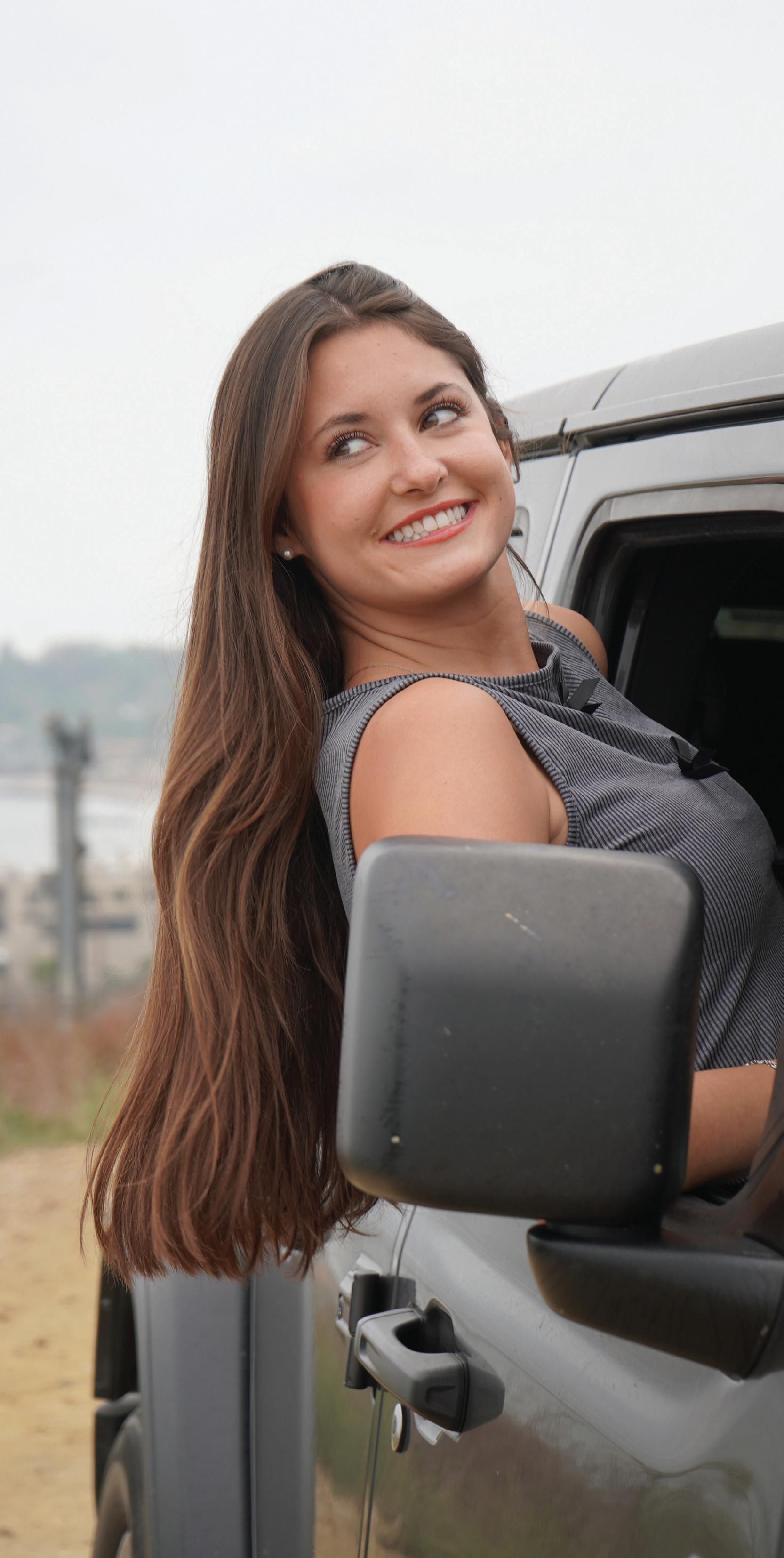
Taiwan better than he knew his home in the States, making him truly feel like a local.
“Taking risks teaches you to be comfortable being alone and to not rely on others,” Koo said.
His year in Taiwan became a journey of self-discovery and personal empowerment.
For Ramos, taking risks in his life has taught him to be his own person.
“I don’t have to rely on the people around me, I can do my own things. I can take responsibility for myself. I can be who I want to be,” Ramos said. “I feel like that’s the most important thing, if you’re not true to yourself, then how can you be true to others.”
2023 Pepperdine graduate Jess Velicer faced one of her biggest life decisions when she decided to give up her childhood dream of becoming a surgeon. After chasing this dream since middle school, she said she realized the large commitment to school took her away from her personal life, and that wasn’t the life she had envisioned for herself.
“I was just going about my life trying to figure out what I wanted to do, and honestly, I had absolutely no clue at that point,” Velicer said. “It kind of felt like my world had been turned upside down.”
While leaving her original career path behind was a risk that came with fear and uncertainty, Velicer said she took the leap and started a business, Marine Microgreens. This is a vertical farm specializing in locally grown, nutrient-rich microgreens for farmer’s markets, restaurants and grocery stores across Southern California.
“I decided that starting a business would be one of the only ways that I could actually build a life that I truly wanted and that was [a life] where I got to make all the decisions,” Velicer said. “So I think that’s what was the original motivation, really just being able to build a life of a choice for myself.”
She said she now can’t imagine her life without this business.
“I don’t think you’ll ever understand your true capabilities if you don’t take risks,” Velicer said. “If you play it safe in life, you’re never going to know what you’re capable of or reach your full potential.”
Colleen Ballatore, who left Pepperdine at the end of her sophomore year to pursue her dream of attending culinary school, echoed Velicer’s sentiments. After years of wanting to follow a more traditional educational path, Ballatore couldn’t shake her passion for cooking.
“As time went on, I just kept thinking about it more and more, and I felt like I just got to a point where I was like, if I didn’t do it in that moment I wouldn’t end up doing it,” Ballatore said.
Though there were moments of doubt and fear of judgment from others, Ballatore said she learned to not care what people think because ultimately, it is her life.
“With risk comes obviously being uncomfortable, and I just feel like it’s so important to be uncomfortable
and growing, you’re just stuck in the same place.”
For many people, taking risks is synonymous with facing uncertainty. It’s natural to fear the unknown, yet embracing uncertainty is what makes risk-taking so transformative. The risk a person takes in itself can be valuable, but then the result you gain from it is deeper, Horton said.
“I can make a choice, and I may not know what’s going to happen exactly, but I can take a risk, and I can find my way,” Horton said.
Koo said taking the leap to move to Taiwan not only helped him develop a new sense of independence, but also changed the way he viewed opportunities.
“I always say it’s better to do
something and realize you don’t like it than to not do it and regret it,” Koo said.
Even when the outcome isn’t what one expected, the lessons learned from the journey are what make the experience worthwhile, Horton said.
Risk taking leads to self-discovery. It’s about stepping away from the expectations of others and finding one’s own path. Whether it’s leaving home, changing majors or starting a new business, each of these students and alumni said they found a deeper sense of purpose and fulfillment by taking the risks that felt right for them.
“Your whole life is a question, you’re always gonna wonder about the ‘what ifs,’” Ramos said. “If you don’t take risks, you’re never going to become your own person.”
Velicer said some people like to live life with a safe approach, and sometimes she envies that. But risks have always been a part of who she is.
“Once you take that first risk, you’re always just going to keep taking

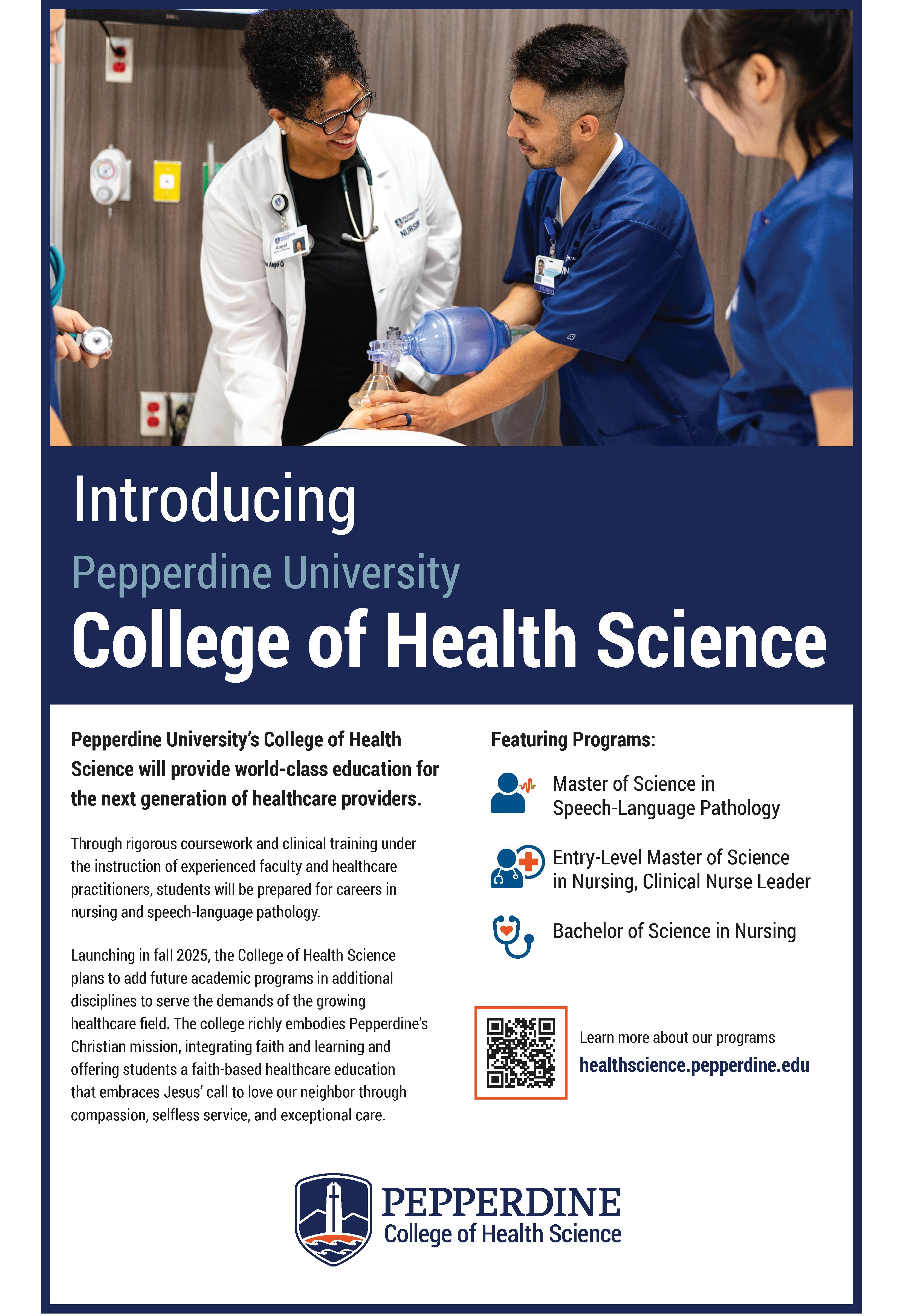
More stressful than filing taxes or going to the dentist — this is how about 55% of Americans described traveling through an airport, according to Expedia.
Fantasies of jet-setter, globetrotter lifestyles can crumble under fear of going through airport security. But knowing the official regulations, why they are in place and additional traveler-tested tips can revive those dreams.
After Sept. 11, 2001, the U.S. government formed the Transportation Security Administration out of security concerns in airports, according to NPR. This more comprehensive present-day security has changed the atmosphere of traveling, even more after COVID-19, said Hispanic Studies Professor April Marshall, who has traveled to over 20 countries.
“It was lighter, more carefree,” Mar shall said. “Now, there’s just a heavier element to it — a more serious element to it.”
For safe traveling, individuals have several resources available. The Travel Checklist from the TSA provides details on prohibited items, best practices and the 3-1-1 liquids rule.
In addition to official regulations, expert student and faculty travelers shared their tips on how to make one’s airport experience easier.
While the initial reaction to a stressful situation may be panic, this response is not usually the most effective. Controlling emotions helps travelers think more clearly and avoid exacerbating an already difficult moment, Marshall said.
“In the moment, to whatever degree you can remain calm and collected, it will help facilitate you getting through or handling whatever issue has arisen,” Marshall said. “It certainly helps diffuse things getting out of hand.”
Sometimes, the solution can be as simple as explaining the situation to an agent and asking them to make an exception, senior Tayler Rood said. In the past, an agent had allowed her to cut the line and called the terminal gate for her when she was running late.
“If you are late for your flight, you can walk up to an agent that works at the airport and say, ‘Hey, my flight’s boarding,’” Rood said.
Although there are no guarantees, and travelers should err toward being
care of one’s health by eating, drinking and sleeping well, before and during her travels.
“Hydrate well,” Yang said. “A lot of the issues with plane sickness is actually just because you’re hungry or you’re really, really tired — or you’re dehydrated.”
Overpacking or packing the wrong items is a common problem for travelers and can hold up the security line, said Fiona Stewart, associate dean of International Programs. Stewart is an Italian Studies professor who hails from Scotland.
“Definitely travel light, and if you don’t have to check your bags, even better,” Stewart said. “Pay attention to the information that we give you [IP students], the feedback from your peers who’ve been to the place before you — if they’re suggesting that you might need waterproof or flat shoes, pay attention, because they’ve been there and learned from experience.”
With proactive planning and practic-




You need an ID to get on the plane, so for the sake of not missing quite literally every single flight I have — which is a lot because I go to school roughly 3,000 miles away from my house — I consider it essential. I got mine at a United States Postal Service Office but when you go to get yours make sure you’re photo ready because when I got mine I had shaved my beard the day prior.
My abroad program’s trip to Kenya made sure I’ll never forget sunblock again. Even if you’re not traveling to the Serengeti, the UV light you’re exposed to on the airplane can be equally damaging — so it’s important to always have sunblock handy.
Ella’s Pick
Even though you have to dump it out at TSA, staying hydrated is so important on the plane. The cabin air is cold and dry, and having a water bottle makes it bearable. Owala and Stanley are my


Bring a zip-up hoodie for the plane ride, preferably one that is softer than the clouds. My favorite zip-up hoodies are from Aviator Nation. You can get them online or in Aviator Nation stores.

have not only in everyone’s travel days, but every day. These can be purchased
store, but I especially love these spray ones that smell amazing








Whether it’s the noise from the plane itself the Burt’s Bees website.

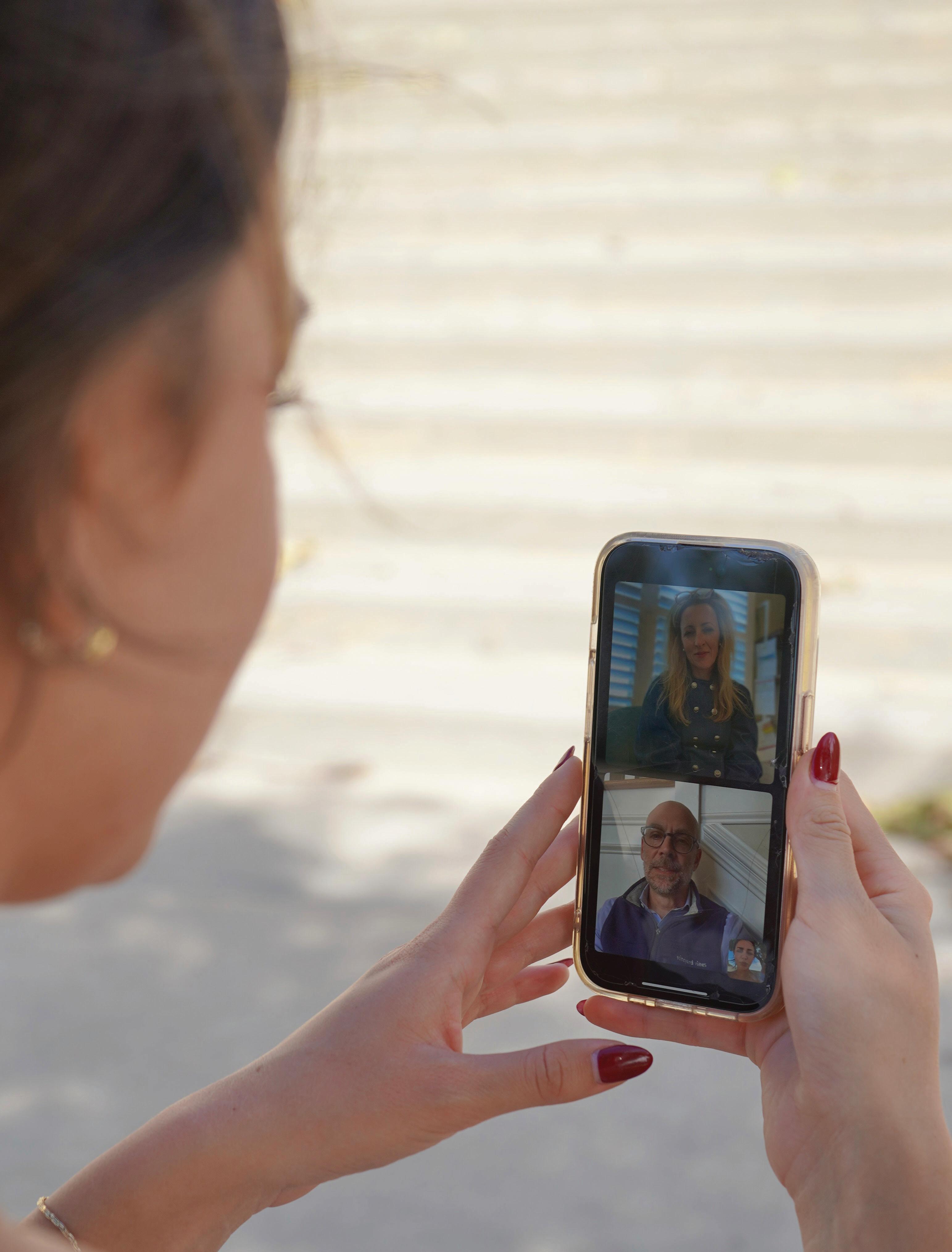
‘See you in three months.’
This became the new reality for mother Becky Bondi as she said goodbye to her daughter, sophomore Ava Bondi, at the end of New Student Orientation (NSO).
The Bondis ate dinner together every night at home — but now there was an empty seat at the table.
The transition to college is difficult for students, yet this transition is difficult for parents too. Whether parents are sending their first child off to college or their fourth, empty nest syndrome — which Better Health Channel defined as the grief parents feel when their children move away from home — is a difficult feeling for any parent to grapple with.
“I have a lot of other moms who say things to me like, ‘Wow, how is that? How is she doing? What’s that like?’” Becky Bondi said. “And my standard response is that having a child go to school across the country is not for every student, and is not for every parent. It is a two-fold process.”
Ava Bondi said she spent her entire life in Westchester, Pennsylvania, before coming to Pepperdine. She knew from a young age that she wanted to come to California for college. After spending 17 years of her life in Pennsylvania, she said she had enough cold weather and knew Southern California was the place for her.
“They [my parents] encouraged me to go out of state, which is not very common,” Ava Bondi said. “They wanted me to have that experience of being a little bit further from home and really getting to know what it’s like to be independent.”
Ava’s mother, Becky Bondi, said she not only supported Ava’s decision, but she had an inkling about it all along, from when Ava was only 5 months old.
“When she was a baby laying in her crib, I so distinctly remember one night going into her nursery and checking on her, and having this incredible sense of
presence,” Becky Bondi said. “Someone was telling me or I just had this feeling that she wasn’t always going to be near me.”
Although this sense came to her much earlier than most parents experience it, Becky Bondi said this did not scare her. Rather, it prepared her for Ava’s journey to come, no matter how far away that might take her.
Ava’s father, Greg Bondi, also said he knew years ago that Ava had her sights set on going to college in California. He never had a doubt in his mind that she would take on whatever life threw her way.
“If she was going to be comfortable doing it, we were confident that she could pull it off,” Greg Bondi said.
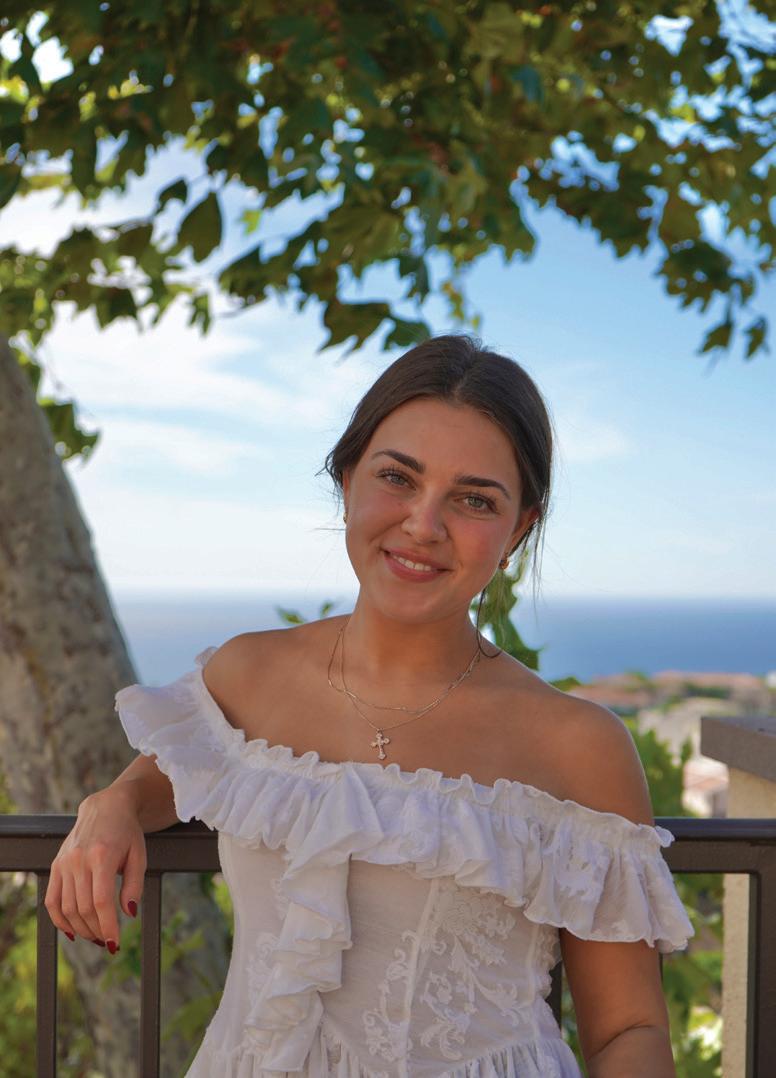
First-year Ayla-Elea Olsen said she was born in Guatemala, and spent her childhood bouncing back and forth between Guatemala and Norway, where her mother and father lived respectively.
Olsen went to a small high school, and said her mother suggested she find a small college to go to, as it was an environment she was familiar with already.
“My mom wanted me to study in a small school so I could adapt easier,” Olsen said.
In Guatemala, Olsen said family is everything. She is super close with her family and ate every meal with them, just as the Bondis did.
Once the decision had been made, the Bondis faced their new reality: moving their child across the country.
“Taking kids to college is one thing, but taking kids to colleges across the country is like Olympic-level college drop off,” Becky Bondi said.
The Bondis said they faced many difficult decisions when figuring out the logistics of moving their daughter over 2,700 miles away from their home. ‘What do we ship, what do we pack, what do we leave behind?’ were all questions the family faced in the preparation process.
Yet, through all these struggles, Greg and Becky Bondi said they found much relief in Pepperdine’s support.
“Pepperdine does an extremely excellent job in the preparation,” Becky Bondi said. “The whole NSO experience was phenomenal.”
Similarly to the Bondis, Olsen’s mother, Fabiola Morales, said the packing process brought up many challenges for their family. Luckily, they found relief in speaking with others.
“We investigated and talked with other people we knew that had some children overseas, and packed what we could,” Morales said.
Morales said they tried to pack only the most important things. Even with this, the family brought at least five suitcases on the plane with them.
Teacher Education Professor Carrie Wall teaches human development at Pepperdine. She said she has also sent her three daughters to embark on their college journeys at Pepperdine.
“I have seen the typical college student change over the two decades [I have taught here], and I’ve had a front row seat to my own daughters and engaging in that,” Wall said.
Wall said she leads many of the parent sessions that occur doing NSO, engaging in conversations with parents who are sending their child off to college.
“[I tell the parents] as hard as this is, this is what you raised your kid to do,” Wall said. “And how wonderful is it
that your kid is going off to college, that they graduated from high school, that they’re independent enough?”
Becky Bondi said she went to several of the parent sessions during NSO, as they gave her a lot of confidence about the things she had natural worries about. After attending these sessions, she said she felt at ease about leaving her daughter behind on her return to Pennsylvania.
As NSO came to a close, the Bondis soon realized it would be time to say goodbye.
“At the goodbye ceremony in the gym, there were definitely some tears shed,” Ava Bondi said.
For Becky Bondi, these emotions came on stronger after the final goodbye.
“It was a lot of adrenaline saying goodbye, but it wasn’t until I got on the plane, like I had to walk across the plane threshold,” Becky Bondi said. “That was the hardest time I’ve ever had to get on a plane.”
Though the goodbye was an emotional time for the entire Bondi family, Greg Bondi said it furthered his belief that he knew Ava could do anything she set her mind to.
“When we left that night, looking at Ava — Ava was confident and ready,” Greg Bondi said. “I think that left us with a certain amount of peace and
confidence, as sad as it was to leave and think about her staying and us going home.”
Morales said she felt confident in Pepperdine’s ability to take care of her daughter. Upon her return home without Olsen, the emotions finally set in.
“I did not go in her room for at least a week,” Morales said. “And the day I came in, I was crying.”
Greg Bondi said that although sending a kid to college will always be hard, he is grateful his daughter is going to college during a time where technology is so prevalent.
Ava Bondi said that at the beginning of her first year, she kept in constant contact with her parents.
“I was so used to living with them for 18 years, so I was very much in contact with them,” Ava Bondi said.
Yet, as the months went on and their lives got busier, the Bondis said they got used to their new norm of not talking to one another every day.
Every few days, Ava Bondi said she will call or FaceTime with her parents. They update each other on what’s going on in their lives, and it helps relieve the amount of physical distance between them.
“Yes, there’s a physical separation,
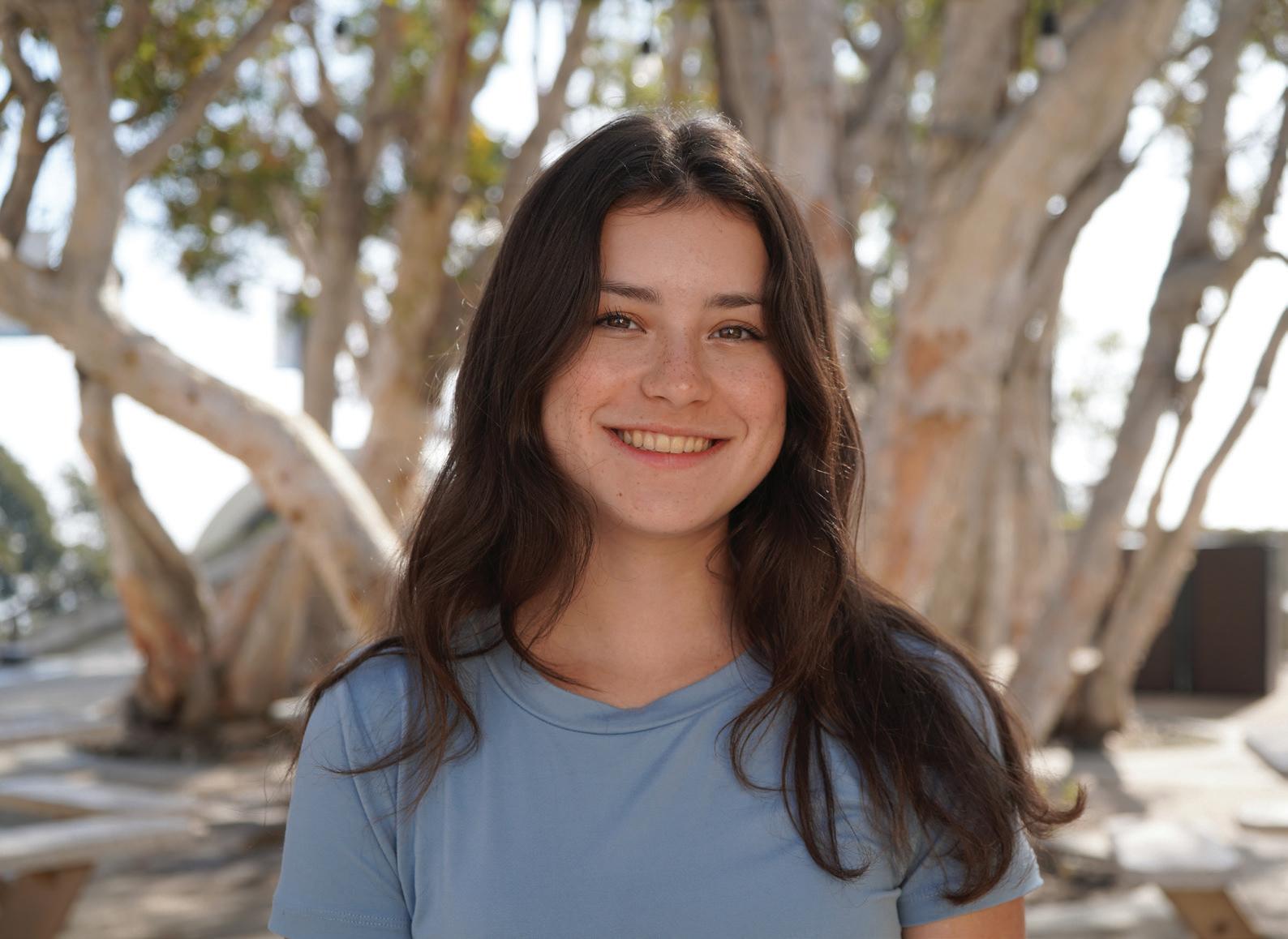
but there’s not that connection separation,” Greg Bondi said.
Even though they were able to call home during their college years, Becky and Greg Bondi said their experience keeping in contact with Ava is vastly different. They feel grateful for the ease of using FaceTime, as it allows them to be able to see their daughter and read her emotions in a way that phone calls don’t allow for.
Being just a few months into her college experience, this is Olsen’s first time being away from her family for an extended period of time. Though she has adjusted now, she said the first few weeks weren’t easy.
“At the beginning, it was kind of hard for me to not have someone to talk to all the time,” Olsen said. “And it was hard just having to deal with everything alone.”
Luckily, Olsen said she has found ways to remain in contact with her family. She calls her sister every day on her walk to class and prioritizes time to text her mom throughout her busy days.
“There’s a physical separation, but there’s not that connection separation.”
Greg Bondi Parent
Unfortunately, Wall said many students feel inclined to continue to go to their parents, even once they are expected to be independent in college. During the first chunk of time away from their parents, students will continue to call them multiple times a day, to a point where they are still reliant on them,
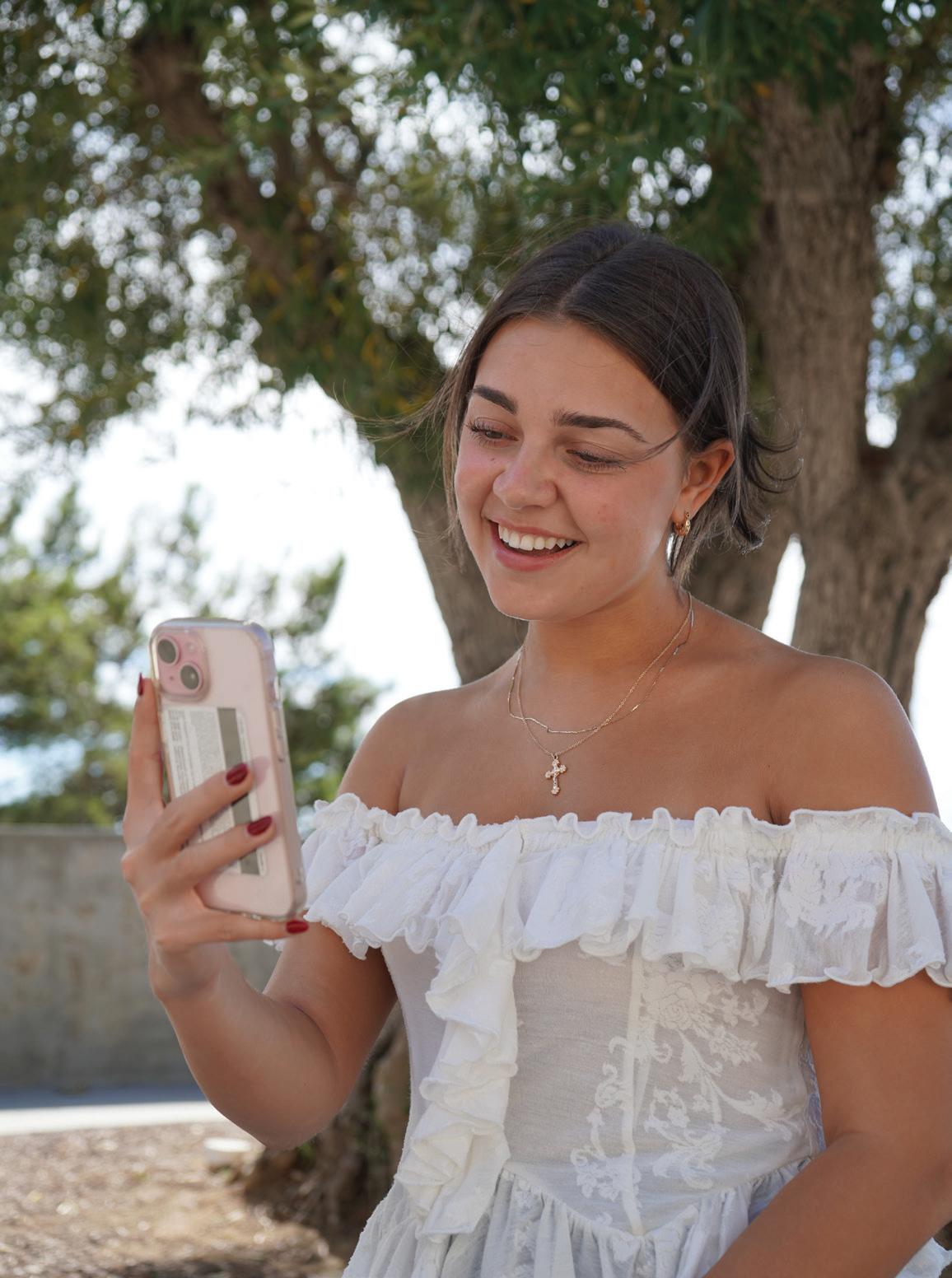
regardless of how far away they are. Yet, this continued reliance is not only the fault of the child, Wall said.
“Part of that is also the fault of the parent, that they allow that,” Wall said. “They like to be needed.”
Wall said the parent plays a massive role in helping their child launch from emerging adulthood into their adulthood years.
Wall said she encourages parents to let their children launch and allow them to come to their parents when they need to, on their own time. She said parents need to resist the urge to solve their child’s problems, and instead be a guiding hand to equip and empower them to solve their own problems.
“Encourage them to connect with campus life, not come home all weekends,” Wall said. “You go home and you’re missing the beauty that is Pepperdine, of building those relationships.”
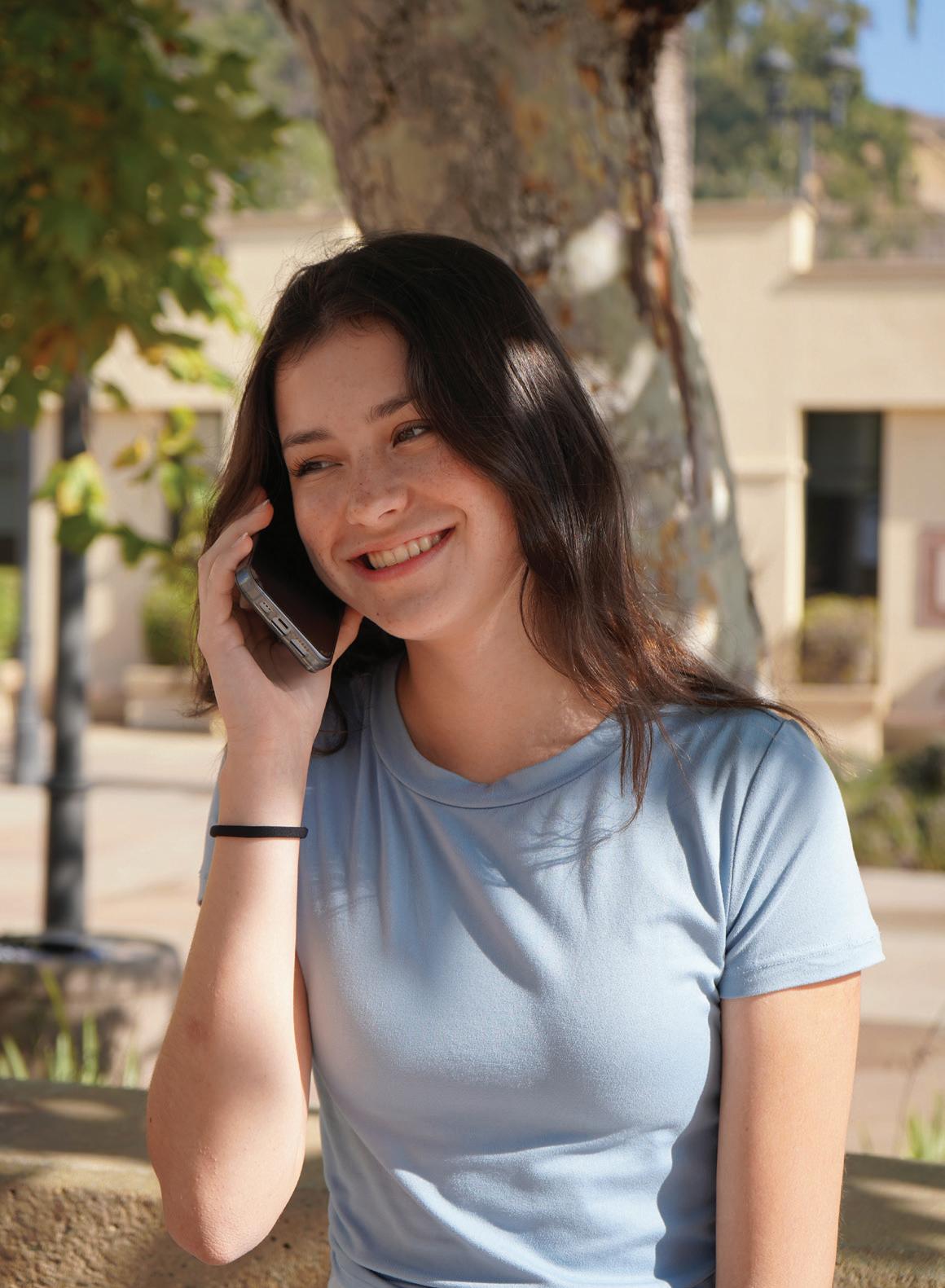
Becky Bondi emphasizes the idea to her kids that “no one is coming to save you.” Although it can sound harsh, what she’s really telling her children is that she believes in them, and she doesn’t need to swoop in and save the day for them — she believes they are independent, capable beings.
“We were blessed to be her parents, but our job is to help her achieve her goals, not to determine them for her,” Becky Bondi said.
Morales had to quickly come to terms with the fact that her daughter was in another country, which remains a continuous battle. Although she is far away, she said she wants Olsen to know that she is always there for her, even if from a distance.
“I hope even though it’s going to be difficult sometimes, I hope she feels that she can count on us even though we can not be there immediately,” Morales said.
Though it was natural for her to worry for her daughter, Morales said
that when leaving Olsen, she had a calming sense that her daughter was going to be OK.
“I think my biggest emotion was pride, but also an inexplicable feeling of gratitude because she was going to be fine,” Morales said. “I hope in my heart that she is fine every day and takes this opportunity to grow and take all the knowledge she can for her future.”
Although Greg and Becky Bondi said they miss Ava while she is in Malibu, they know she is in the right place and find great joy in that.
“I’m thrilled that she is excited to go back. I think one of the most indicative success indicators is when you miss both places,” Becky Bondi said. “When you’re at Pepperdine, you miss home a little bit, and when you’re home, you miss Pepperdine. Both places essentially start to feel like home.”




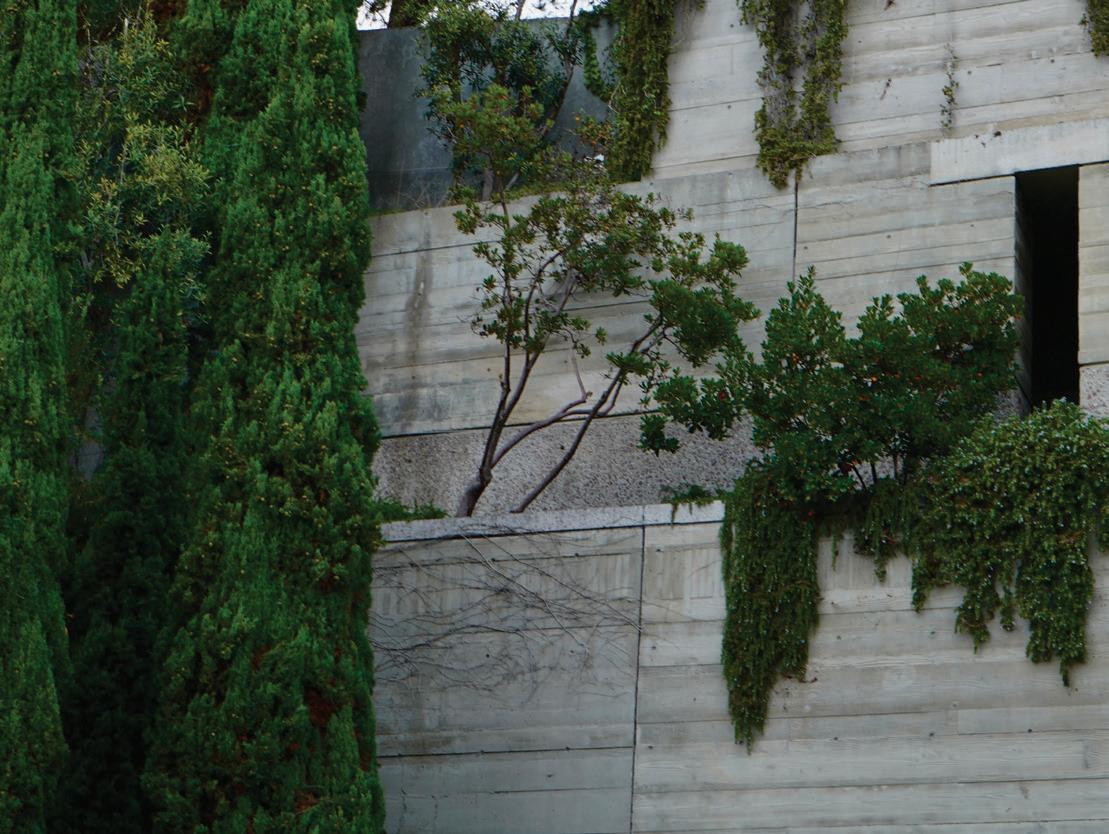



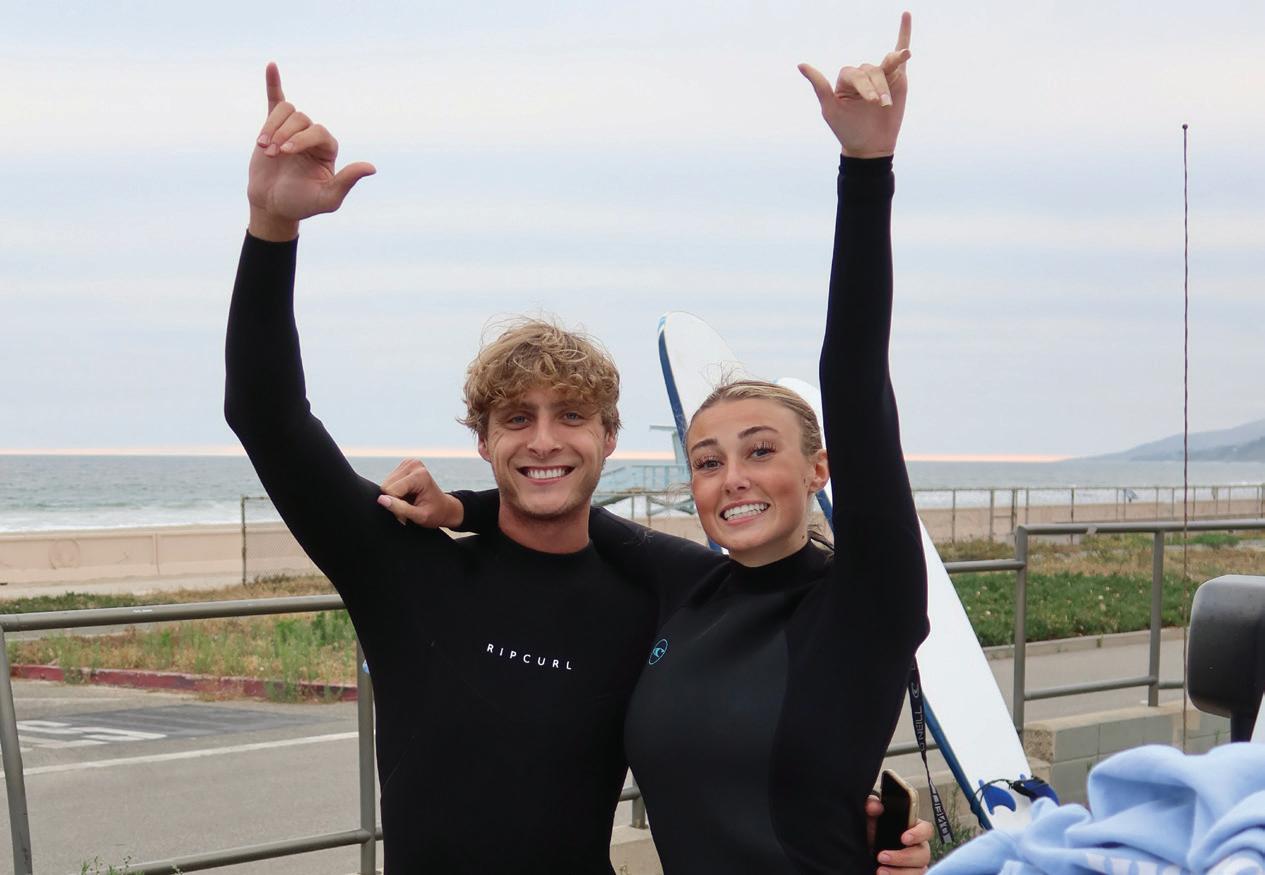
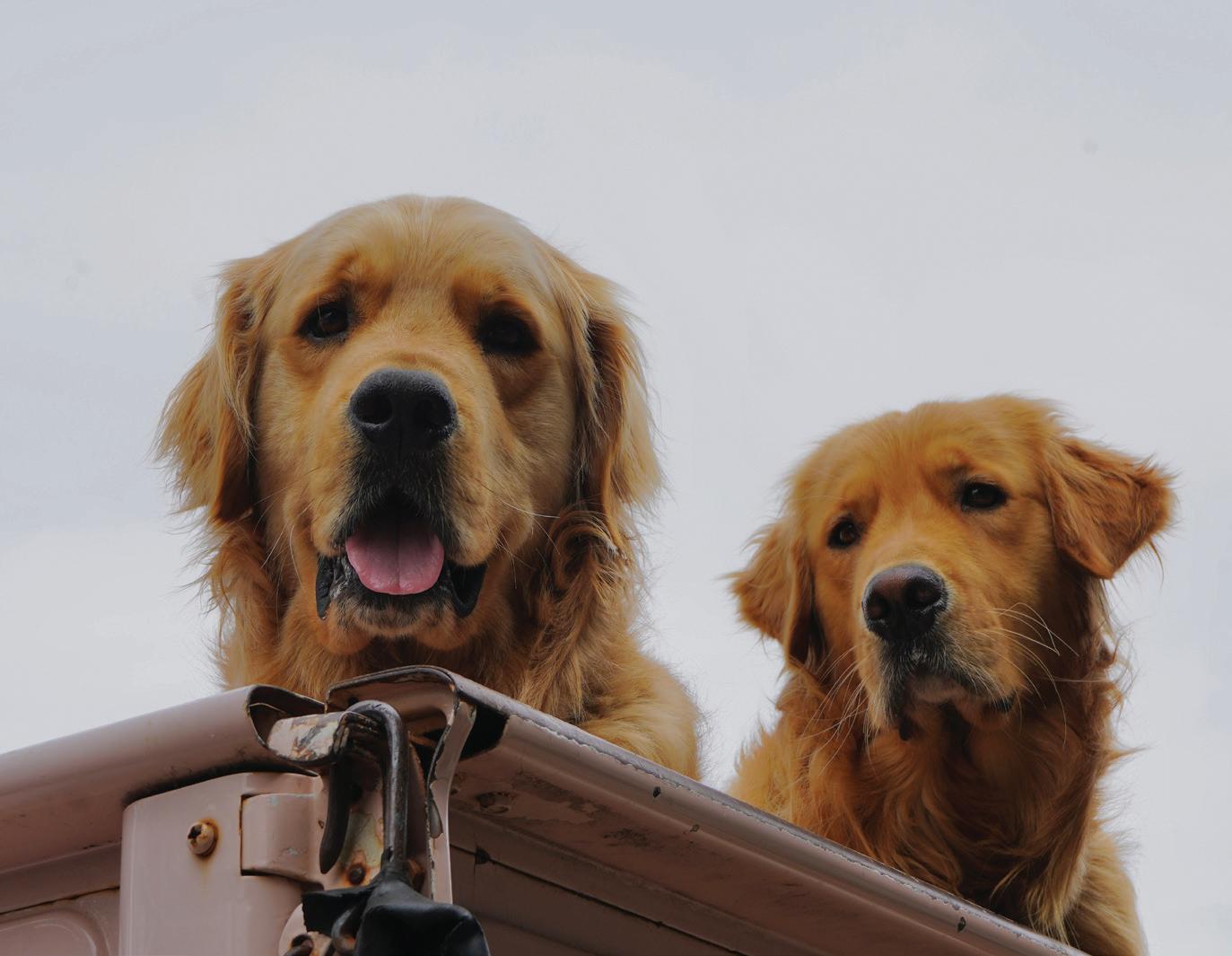

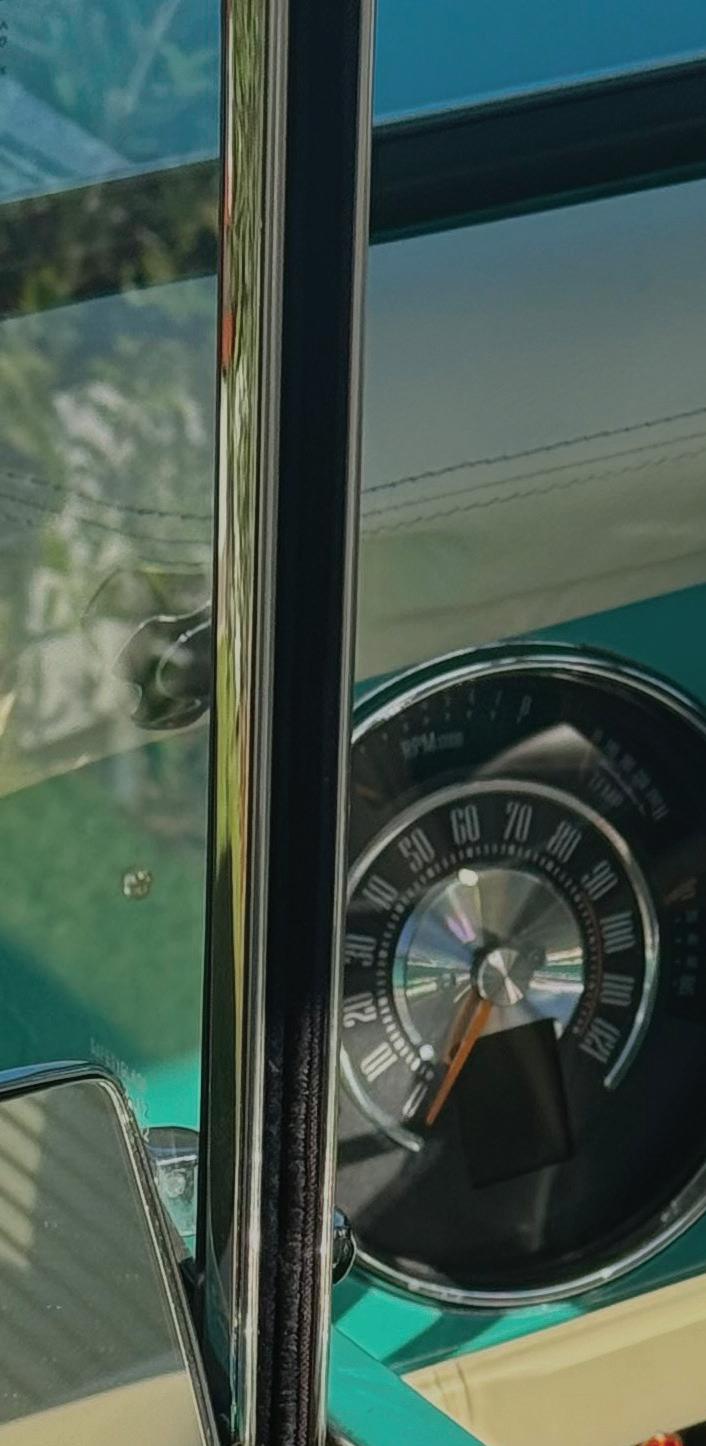

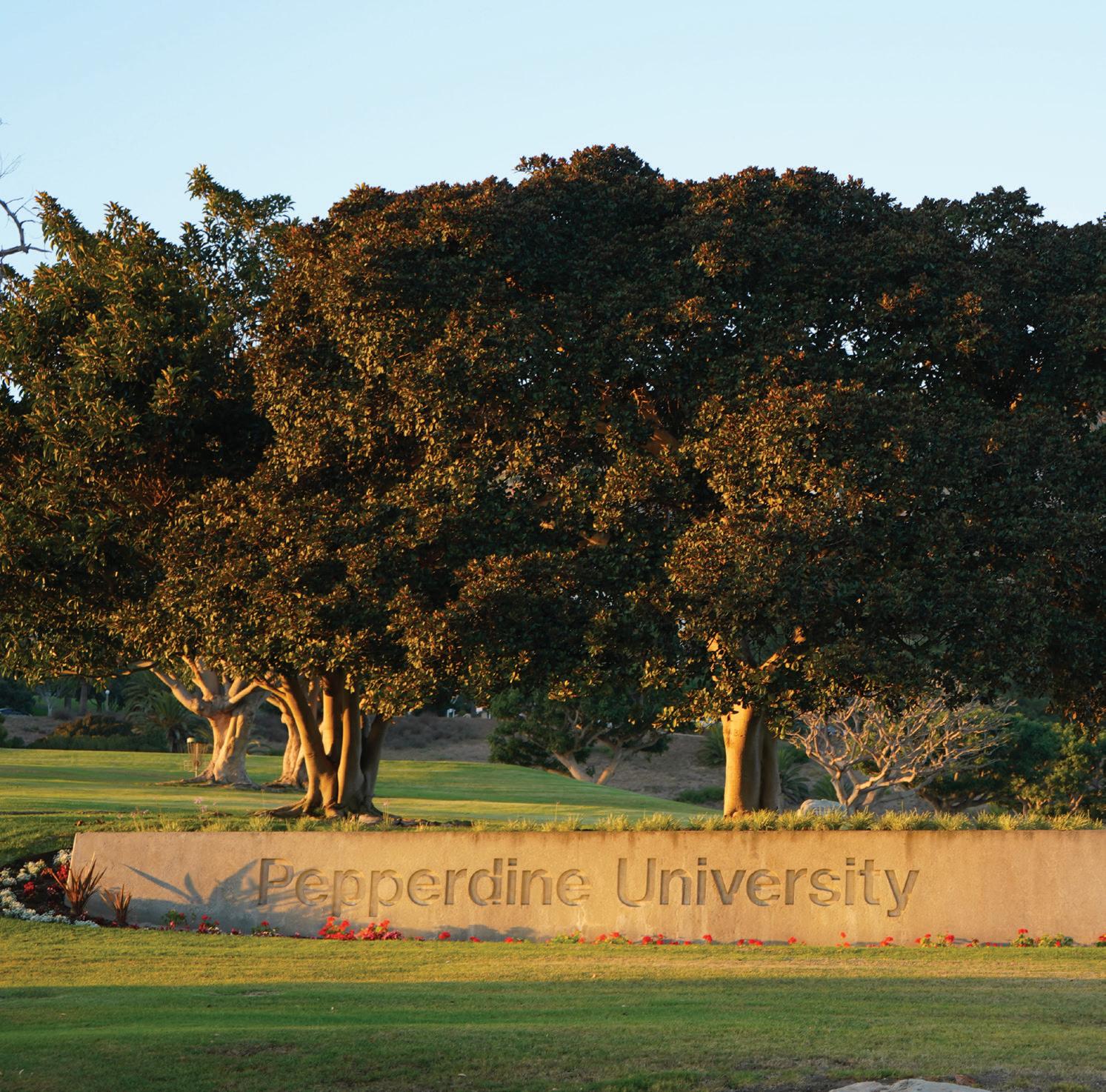




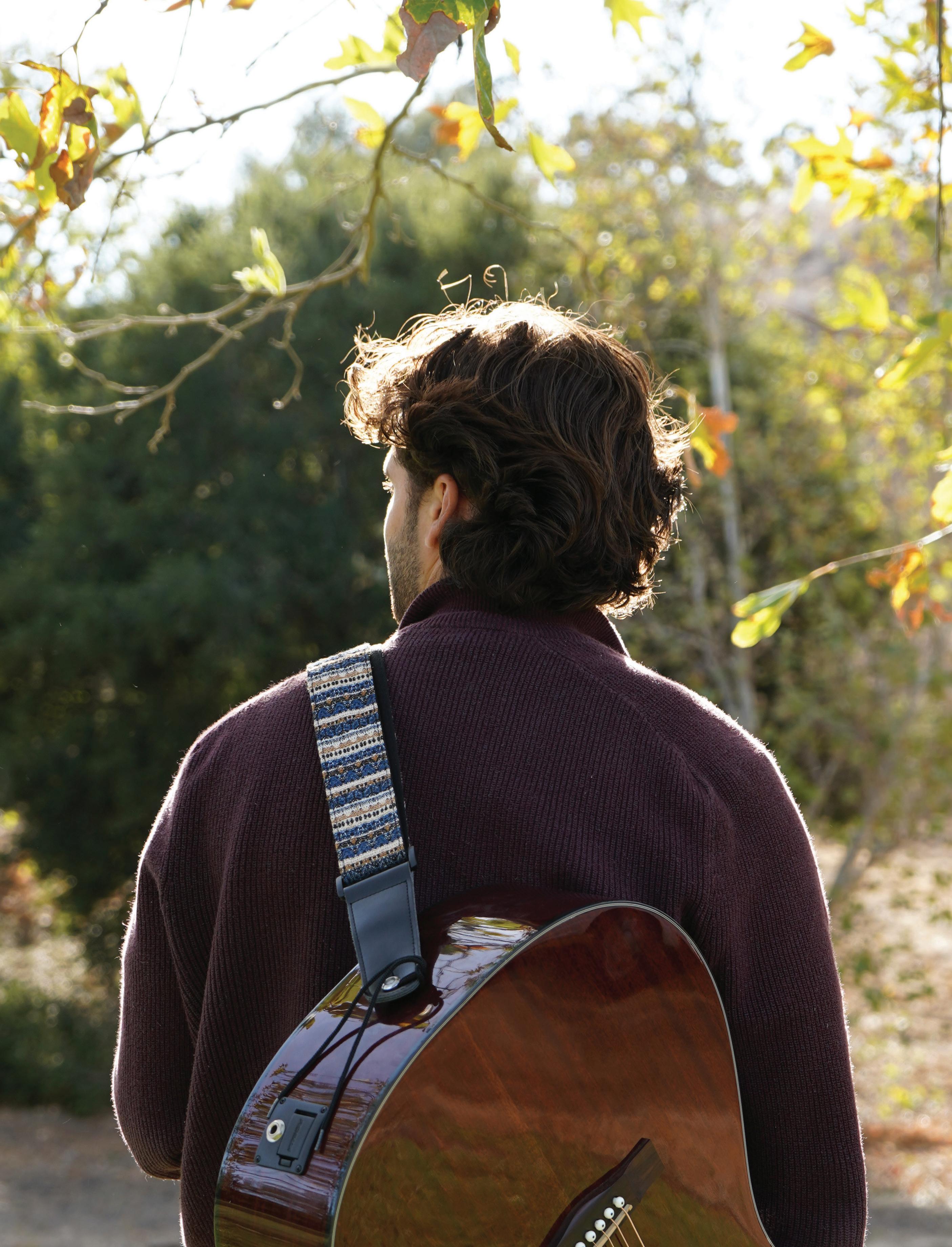
In a bustling mall or an uncomfortably crowded concert arena, music has an uncanny ability to dissolve barriers and unite souls, creating connections that words often fail to express.
Whether someone is singing during the seventh-inning stretch at a baseball game or spontaneously dancing in their living room, a single song can ignite emotion and spark connections between people from all walks of life, reminding people that they are all walking the same rhythm.
“The best part about music, and one of my favorite parts, is that not everyone has the same reaction,” sophomore Communication major Claire Taylor said. “People have completely different reactions to music. A song that’s supposed to be sad or touch you, it doesn’t touch people because we all have our own experiences, and that is why it’s so important because everyone can connect to it even in a different emotion.”
Music is beautiful. This combination of melodies, rhythms, harmonies, instruments and singing is so simple yet vital for society — even as far back as 50,000 years ago, according to Classic FM.
“The oldest instrument we can find is a bone flute that is a pentatonic scale, and that’s really cool because pentatonic scale is also used in a lot of Eastern music, like Chinese, Japanese music, that’s kind of the basis of their system,” said Nico Heard, a junior Theatre and Music Composition double major. “Pentatonic is super popular in Western Classical. It’s also very popular in Gospel [music] so that one scale pops up all over the place, which is bizarre because [it’s] in places that don’t necessarily have a whole lot to do with each other.”
What makes music so impactful to society is its power to spark unity and connections among people despite race, ethnicity, culture or overall identity.
In a 2013 publication, Stefan Koelsch, a music psychologist at the University of Bergen, listed many

different ways music impacts people’s ability to connect with each other. Koelsch found that music affects brain circuits responsible for empathy, trust and cooperation, just to name a few. Music affects these circuits effortlessly and simultaneously, leading to stronger and more impactful connections.
“The ability of music to increase social cohesion and strengthen interindividual attachments was probably an important function of music in human evolution,” Koelsch wrote in his publication.
“The music does the talking in a sense.”
Claire Taylor Sophomore
For Taylor, music has been the most important factor in her life for as long as she can remember. She said she struggled socially communicating with others but has always been the biggest music lover, and credits music as the spark that truly connects her to every
one she meets.
“When I got to college, I realized that if I couldn’t make friends socially, I could play really good music, and people would automatically connect with me if we have similar music tastes,” Taylor said. “The music does the talking in a sense.”
Taylor also stressed the importance of the silence between songs and said there is a sense of power in between the notes.
“It’s super unspoken,” Taylor said. “But it’s something that I don’t think a lot of people realize brings us together, sitting in that silence. You’re sharing an experience that I think you can’t get from watching a movie or looking at an art piece.”
N. Lincoln Hanks, professor of Music, coordinator of the Music department and director of the Pickford Ensemble at Pepperdine, said he has seen students come through the Music program from all different backgrounds, whether they be socioeconomic, race or culture. Regardless of what issues they may face, music allows these students to look past these walls.
“Once you put a piece of music in front of them with somebody else, and they have already in their life a language of music that they’ve learned, it’s completely irrelevant to those other issues that come between them,” Hanks said. “You can make amazing things happen
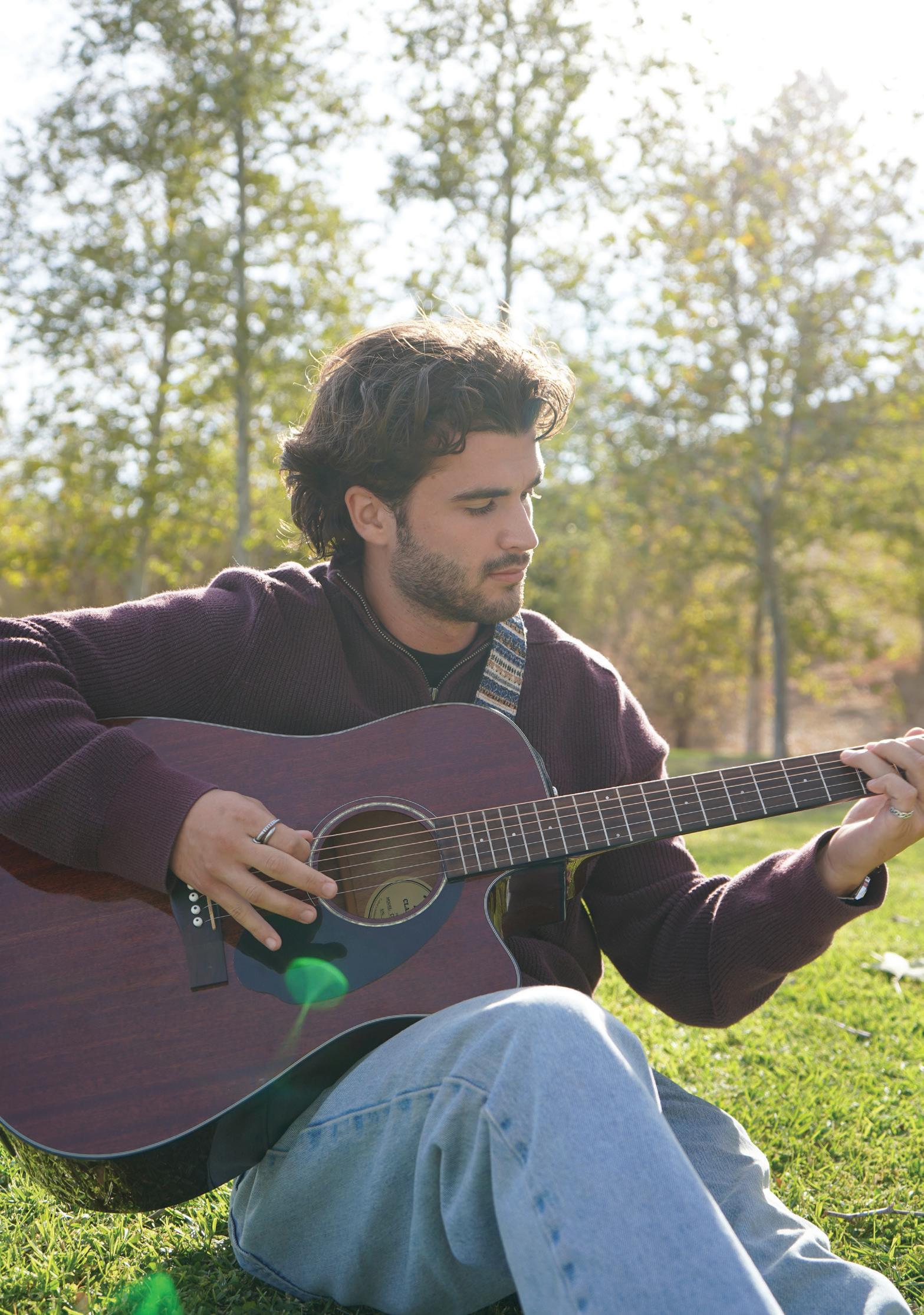
artistically that have nothing to do with all those other cultural barriers.”
In his own experience, Hanks said he has been able to sit down with composers from Estonia or Cuba and learn, communicate with and interact with each of them through music.
Heard said music helped create most of his closest relationships, which would have typically never happened otherwise. It could be bonding over a favorite artist or a favorite song, but that’s all it took to build a bond through beats.
“In high school, some of my good friends [and I] formed a band, we just
loved this sort of music, and otherwise, I probably would not have met them or gotten to know and love these people,” Heard said. “It just came down to, ‘Oh, you like this artist?’ There’s something super connecting that can be found through that.”
Words are just too simple. Often, human language fails to express the emotions and messages meant to be felt and heard, but music has the ability to break down that barrier.
“Language is just so limited,” Alima Ovali, junior Applied Music major, said. “There are so many times when words cannot express what you’re feeling. When you love someone so much, you just cannot say it, but for some reason, music absolutely can.”
Ovali echoed Taylor’s sentiment about how music has the power to affect each person differently. She said it’s because music is a language — it has grammar, rhetoric and conviction.
Music has the power to push and pull someone into one direction or the other, and it does so with such extreme feelings within it. Sometimes, in different genres of music, like instrumental, no words are spoken — it is all just pure emotion, she said. Ovali believes a reason music has this power is because each and every person has their own unique tone.
“Every person who does music, or every person in general, has their own unique tone, and that cannot be replicated by anyone,” Ovali said. “It has a lot to do with what’s in your heart, who you are as a person. All of that comes out when you play.”
Taylor said this connects people no matter their identity, race or culture.
“There’s an empathy, a sense of connection that comes from music, and it transcends not only the spoken word but with the music notes behind it,” Taylor said. “It bridges gaps in our society that others are lacking in between us. I definitely say, at the end of the day, music is such a universal language that evokes all kinds of emotion. It definitely comes across cultural barriers and brings people together in a way I’ve never seen before.”
Music has even helped Taylor connect with her own culture and, more specifically, with her father, who happened to be from a different country. She said her dad grew up in London during the era of The Smiths, Dr. Martens and the Skinhead movement, and listening to music of this culture and time helped grow their relationship.
“Connecting with that British, Ska, Two-Tone music has been a way to connect with my heritage and what my dad experienced, which has been
a game changer for our relationship,” Taylor said. “It’s something that got us together and a way to connect with my cultural heritage. Listening to the music that he listened to, seeing pictures of the concerts that he went to wearing his first pair of Doc Martens, that is definitely a connection that formed because of music.”
“There are so many times when words cannot express what you’re feeling ... but for some reason, music absolutely can. ”
Alima Ovali Junior
Hanks said he wants the campus and students to diversify with more cultural music ensembles, in hopes of bringing people together despite their backgrounds. He said one kind of cultural ensemble that could be impactful is an African drumming ensemble.
“We need to cultivate some different kinds of ensembles on campus, some of them being from different parts of the world,” Hanks said. “A lot of people, not saying everybody, but a lot of people can get something culturally from that experience.”
Music is also biblical. In the book of Deuteronomy, the Scripture commands followers to “Love the Lord your God with all your heart and with all your soul
and with all your might” (6:5 NRSV).
Christian church leaders utilize music in worship, including hymns, psalms, choral and Gospel music.
“Music is a fundamental part of worship, it’s not the only way to worship, but I love the musical aspect of worship,” Heard said. “What I find compelling is when the music makes you think about what you’re saying or what you’re doing, and there’s something unifying about having a very simple melody that anyone can sing.”
This style of music is often created through forms of contemporary and instrumental music, some common styles students focus on in the music program, Hanks said. For Ovali, the main reason she plays music is for the Lord.
“I’ve gotten to the point when I play a piece, I cannot play it for my own self, my own validation, I can’t be like ‘Oh, I’m going to play this because I want it to be great,’ because I’m never happy with the outcome,” Ovali said. “When I think of the greater purpose like this is to benefit my peers, the people who listen and the Lord. I’m giving all of the glory to Him.”
Hanks said he was a lonely child and used music as a refuge, which even pulled him out of a spiritual crisis he was facing. He said he was deeply entwined with music that had strong faith traditions behind it, but he realized he was moved by it without really understanding the true intentions of the music.
“I grew up kind of a lonely, lonely kid, and I listened to a lot of music [which] is a place where I could just find myself,” Hanks said.
Now, Hanks said
he has a deeper appreciation for that music while better understanding the true meaning behind it. His students regularly tie their faith to the music they are learning in the program.
“Many of [my students] that come through our program come from a classical background, and frankly, they don’t find a lot of outlets for themselves for worship music on campus,” Hanks said. “I have conversations with them about what they’re experiencing with their faith and how music ties into that, but sometimes it’s in a different context than I think other kinds of students around campus have. But, it’s powerful, and they certainly all tie it into their faith.”
For ages, music has been an integral part of the human experience. Whether through building community or transcending cultural barriers, music will continue to be a vital part of that experience for all people, despite what differences they may see on the outside.

story by Maximilian Pohlenz art by Mary Palumbo design by Betsy Burrow
In the spring, senior Rakel Ang will walk across the stage and receive a bachelor’s in both Chemistry and Biology. Ang, like all students who attend Seaver College, will have completed course requirements in her respective majors, along with Pepperdine’s general education requirements. In spite of this, Ang said she could not recall what class she took that fulfilled her Cultural Competency GE.
“I just didn’t realize that there was a specific requirement labeled in its own category as Cultural Competency,” Ang said.
Ang said she thinks cultural competency is necessary for a well-rounded education. But Ang is not the only student at Pepperdine who did not know there is a specific Cultural Competency requirement.
Senior Grace Redmon, junior Andreas Marouf and first-year Eden Schimanek all said they did not know about the Cultural Competency GE
requirement. Junior Judah Fullman said he had a vague idea of it, citing GSHU 333, Asian Great Books, which fulfills the Global Perspectives and Cultural Competency requirements.
“I’ve got students coming to me going, ‘Hey, I didn’t know I had this,’” said Paul Begin, associate dean of Curriculum and General Education at Seaver College. “Well, that’s a problem. You should have known you had it, and we should have let you know, and we should have made it so that if it’s a core competency, you get it organically through your studies.”
Charles Choi, professor of intercultural and intergroup communication, said he has a three-part definition of cultural competency. These being knowledge and understanding of other cultures, a willingness and motivation to engage and the skills and practice in communicating with those from other cultures.
“Those are three things that the
Cultural Competency requirement at Pepperdine offers in those various classes that fulfill that requirement in one form or another,” Choi said.
Begin described cultural competency as being able to respond to situations that might involve others with different backgrounds.
“How do you be in the world, given the fact that we live in a world with people who come from all sorts of different ideologies, ethnicities, socioeconomic backgrounds,” Begin said. “That’s cultural competency.”
Cultural Competency is a zero-credit requirement, similar to the Writing Intensive, Research Methods and Presentation Skills requirements, said Sarah Stone Watt, interim associate dean of Seaver College and professor of Communication. Unlike these requirements, Cultural Competency can be fulfilled via a major class or a GE class.
“The reason we did that is because some majors lent themselves to tons of these kinds of classes where others really didn’t,” Stone Watt said.
Classes such as Organizational Behavior (BA 366) and Intercultur-
al Communication (COM 313) are major-specific requirements for Integrated Marketing Communication and Communication majors, respectively, and also fulfill the Cultural Competency requirement, according to the 2024-25 Seaver College Academic Catalog.
Marouf, who did not know what the Cultural Competency GE was, took Intercultural Communication as a Sport Administration major. Marouf said the class familiarized him with different cultures and practices.
Biology and Chemistry majors such as Ang have no classes within their major that fulfill the Cultural Competency requirement, according to the catalog.
Andrea Harris, former head of advising at Pepperdine, said she recommends classes to Natural Science majors that fulfill both the Cultural Competency requirement and another GE requirement due to their heavier course load. Harris worked at Pepperdine for 20 years prior to her departure this fall. Several GEs double count as Cultural Competency credit. SOC 200, Introduction to Sociology, counts for three: Diverse Perspectives, Human
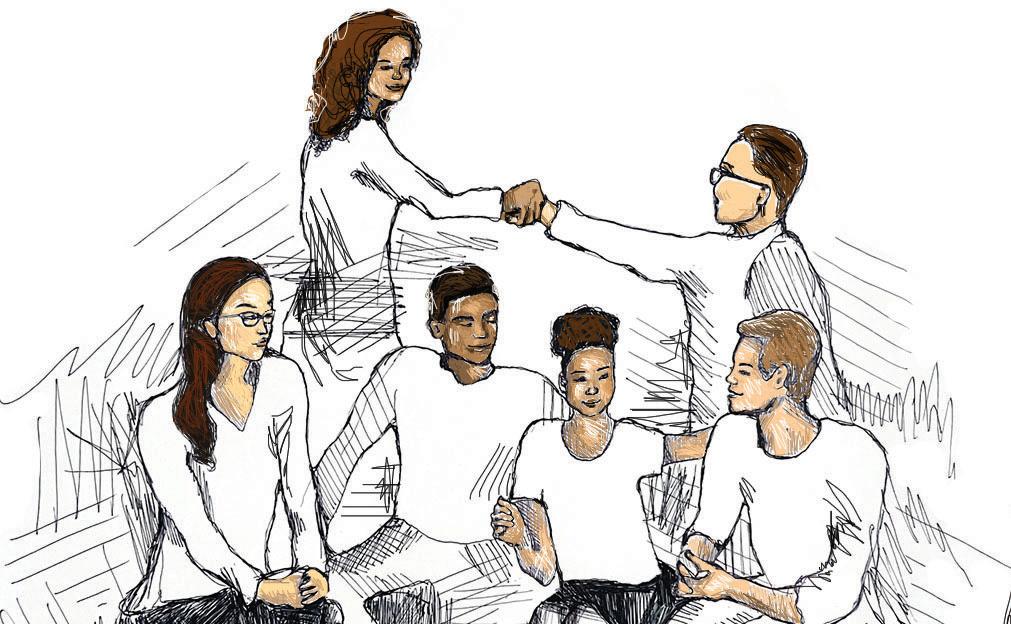
Institutions and Behavior, and Cultural Competency, according to the catalog. Intercultural Communication counts doubly as a Global Perspectives and Cultural Competency credit.
Redmon, a Sports Medicine major who did not know what the Cultural Competency GE was, took SOC 200. She said she connected to the class’s exploration of the history of feminism.
Senior Sociology major Brandon Hsu said he was familiar with the Cultural Competency requirement. Hsu is currently taking SOC 450, Race and Ethnic Relations, a class that fulfills major requirements and the Cultural Competency requirement.
Stone Watt said other classes can fulfill the requirement in various ways, such as Communication Sustainability, a class that she teaches.
“When we discuss sustainability, we have to talk about how those efforts affect people differently,” Stone Watt said. “How institutions and structures have to think about the different cultural contexts that change how people interact with sustainability efforts.”
Another example of this, Stone Watt said, is the GE nutrition class, Nutrition 210, where students discuss the linkages between various cultures and nutrition. Regardless of the subject, each class must meet specific learning objectives for it to be considered to fulfill the Cultural Competency requirement.
Both Stone Watt and Harris said the subtlety of the requirement is one
of its strengths. The subject of cultural competency, on a general level, often deals with engaging and normalizing differences without forsaking individual values, Choi said.
“I think that in our relativistic world, our modern world, if you don’t agree with someone it’s almost like you’re rejecting them, at least,” Choi said. “That seems to be the pressure that a lot of people experience.”
Harris said she thinks the way Pepperdine approaches cultural competency ensures that students don’t feel like ideas are being imposed on them.
“All of a sudden you’re like, ‘Wow, I can look at people differently,’” Harris said. “You may not even notice that that happened, but I guarantee that a person leaves that class and their interactions with other people are subtly different, and they may not ever know why.”
The Cultural Competency requirement is the realization of almost a decade of student activism, Stone Watt said. “My role was really just pushing this across the finish line,” Stone
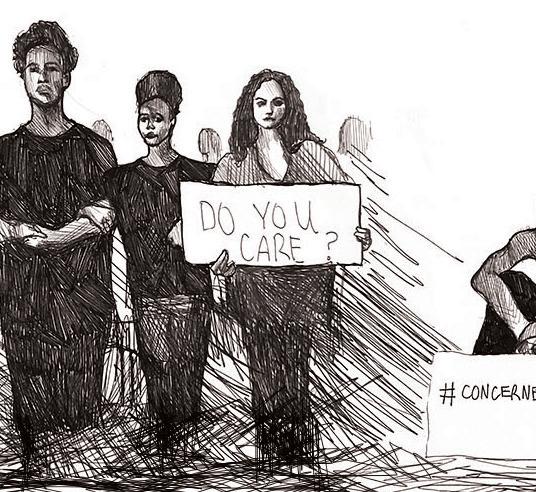
Watt said. “There was a ton of work that happened long before I got involved.” Students requested both they and faculty receive cultural competency training during student demonstrations in 2015, according to previous Graphic reporting.
“It’s a skill that makes living on campus in this community better for everybody.”
Sarah Stone Watt Interim Associate Dean of Seaver College and Professor of Communication
“They were saying students shouldn’t be able to avoid it,” Stone Watt said. “Because it’s a skill they’re going to need when they go out into the world, and it’s a skill that makes living on campus in this community better for everybody.”
Then Seaver College Dean Michael Feltner formed a group that studied the student request and documented the need for a Cultural Competency requirement, Stone Watt said. In 2020, following further pressure, she, along with Religion and Sustainability Professor Chris Doran, drafted a proposal for the Cultural Competency requirement. Stone Watt and Doran submitted the proposal to the GE review committee, which Begin oversaw at that time.
“This is a proposal that was in large part a response to the build up of a sense that we’re a super disengaged university on the sort of social justice front,” Begin said. “We don’t know how to speak with people not like us.”
Begin said during that period from 2016 to 2020, despite the topic itself being discussed amongst students, there seemed to be an indifference to the issue as a whole from the broader Pepperdine community.
“As divisional dean I would hear comments from
students that we lack cultural competency,” Begin said. “You read about it in the Graphic every once in a while, it’s kind of in the air.”
Previous Graphic reporting has covered both the new GE curriculum and the university’s history of racial interactions.
Especially in this day and age, with the internet, it’s easier than ever to end up in an echo chamber, Choi said. Conversely, there isn’t much opportunity to be exposed to different perspectives.
“The way it plays out, I think for a lot of us — myself included — is it takes effort to be willing to hear something that might be contradictory to my own beliefs,” Choi said. “Particularly when it comes to these hot button topics like race and politics and religion, it creates a situation where we’re avoidant of it, where we’re not quite willing to engage.”
However, Choi said there is also inherent value behind these interactions and engagements, many of which he sees in his classroom today.
“A lot of research talks about how more diverse decision-making groups have clear advantages,” Choi said. “They’re able to think in various ways and in different cultures, emphasizing different kinds of values within these decisions that are being made.”
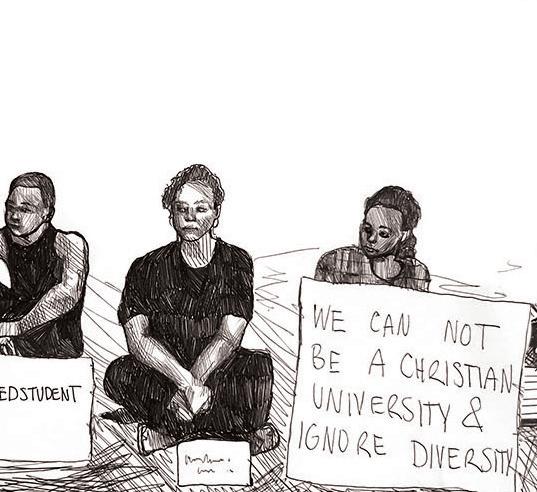
The 2015 protests also proposed programs to help faculty and staff have access to the same skills, Stone Watt said. Administration implemented a program called Seeking Educational Equity and Diversity (SEED), Religion Professor Cari Myers said.
SEED is a national professional development program that encourages self-reflection and dialogue with the goal of deepening inclusivity, according to the SEED website. Myers co-authored a study that surveyed faculty regarding the implementation of SEED, published in 2021. The feedback from faculty, Myers said, was almost universally positive.
“Faculty members felt that they had language to understand different lived experiences than their own,” Myers said. “And that was really helpful for them.”
Choi said he sees Pepperdine as a place that is able to hold its Christian values while also having a willingness to investigate and ask questions about issues. Pepperdine is able to act as a space where students can comfortably have these discussions, without fear of detrimental effects.
“Not cramming down their throats, but just sharing Christ’s love to all and creating an environment where we can engage with another person,” Choi said.“Not with another category of people, but with another person. To see a person as a very unique, gifted, special individual. That certainly holds true with the ethos of the university that we are.”
During the same time that Pepperdine implemented the Cultural Competency GE, Begin said he and the GE review committee were working on a related GE: the Diverse Perspectives GE. This was a part of a much larger general overhaul to the curriculum that aimed to add more flexibility in GEs and allow students to explore more of their interests.
“The way we first proposed a Diverse Perspectives category was: out of these
classes you have to take, one of them has to click this box,” Begin said. “That was not acceptable to some faculty. Some of them were like, ‘We don’t want to be a check mark.’”
Begin said that while to a student or outsider the difference might be subtle, the establishment of a distinct category is important.
“To faculty who saw that we have
“It was a big deal to say there needs to be a category called
Paul Begin Associate Dean of Curriculum and General Education at Seaver College
never really addressed this in our curriculum, it was a big deal to say there needs to be a category called Diverse Perspectives,” Begin said.
Begin said while Diverse Perspectives originated from a similar need in the curriculum as Cultural Competence, the two requirements have key differences.
Whereas Cultural Competency equips students for how they may interact with others not like themselves, Begin said Diverse Perspectives functions more as a way to learn about cultures through a different lens.
“One is attitudes and behaviors, one is content,” Begin said. “Those are two different things.”
Diverse Perspectives is a connections course requirement that focuses on the voices of minoritized or historically excluded groups, according to the catalog.
Begin said he personally frames the class within the Christian tradition of understanding and appreciating stories that students might not otherwise discover. This class also differentiates itself from Global Perspectives — previously World Civilization — in key ways. Global Perspectives might not necessarily focus on marginalized groups, as the focus is cultural systems outside of Western culture.
“You could probably take a class that did both of those things at once,” Begin said. “But you could also take a class that looked at U.S. history and studied Diverse Perspectives.”
Begin said another example of a class that could fall into the Diverse Perspectives category would be a class formerly taught at the Pepperdine London campus regarding The Troubles, a period of religious and ethnic conflict in Ireland from 1968 to 1998.
“That’s Western Europe, we got a pretty good handle on that,” Begin said. “That would not be a Global Perspectives class. It would be a great Diverse Perspectives class, because you would learn about the religious conflict, the oppression of one group by another group based on religion in Ireland.”
Schimanek, a first-year Political Science Major said she is currently in the Social Action and Justice (SAAJ) colloquium, a four-course, optional social justice sequence that allows students to fulfill either the Diverse Perspectives or U.S. Experience requirement, along with English Composition, Religion 300, Foundations of Reasoning and the Interpretation requirement. Shimanek said through the colloquium, she’s explored figures who have defied social norms, such as Malcolm X.
Begin said it’s too early to tell the impact the Diverse Perspectives class will have. However, he said he’s excited to see how the class of 2028 — the first class to take this new curriculum — responds.
“I’ve dreamed about Seaver College being more intellectually vibrant, pursuing knowledge for knowledge’s sake,” Begin said. “Pursuing interests, not just checking boxes.”

Something so trivial as small talk can play a determinant role in initial conversations with strangers.
Small talk can shape how one’s relationships with people evolve, but opinions on the importance of it vary, especially among different cultures.
“You don’t just know someone deeply,” sophomore Pamela Martinez said. “Relationships are a process and small talk is the first step.”
Regardless of culture, humans thrive on personal relationships and social exchanges. At the root of these are conversations. All conversations, in their simplest form, begin with an exchange, whether it be about weekend plans, about how cute an outfit is or how someone’s day is going. This phenomenon is known as small talk.
People engage in small talk all the time. Whether it be with a server at a restaurant, one’s hairdresser or ride-sharing service driver, small talk is a fact of life.
However, not all cultures practice small talk.
People from North and Latin America tend to consider small talk a beneficial exchange, whereas parts of Europe and Asia consider it a disadvantage, often valuing depth over casual pleasantries. In some cultures, personal relationships take longer to develop and small talk can be perceived as forced or inappropriate, according to the Harvard Business Review.
comfortable in unfamiliar settings.
“It helps us live together harmoniously because imagine being in a very strange and unfamiliar setting and you don’t know how to strike a conversation,” Njathi said.
All cultures have a different way of approaching small talk, and therefore its importance also varies.
said. “I like to think of it like a quick catch up.”
However, Aaniya Ahuja, a sopho-

“Because I come from a collectivist culture, small talk could be anything,” Njathi said. “People tend to be more personal back in Africa.”
Students described Pepperdine’s culture of small talk as “pleasant,” “warm” and “friendly.”
But the community is composed of more than 80 nationalities, all with different traditions and a different outlook on small talk. It is not surprising that words like “unnecessary” and “superficial” also came up.

Mexicans lie at one extreme of the spectrum, Martinez said. Among Mexicans there is no room for cold formalities because everyone is an amigo, a nickname commonly used to refer to strangers, which means “friend” in Spanish.
“Small talk is the most basic form of communication back home,” Martinez said. “It’s our way of making a friendly effort to be inviting and welcoming to all.”
more from Singapore, said people in her home country tend to be more reserved toward strangers, and stray away from engaging in small talk.
“Singaporeans are less keen on talking to strangers when they are out in public,” Ahuja said. “They like to keep to themselves.”
Very differently from all the other cultures mentioned, Northern Europeans have an extremely reserved approach to small talk.
Emi Schirrmeister, a junior international student from Germany, said she experienced culture shock when she first started living in the United States to attend her boarding school in Santa Barbara, California. She has noticed that when she goes to a restaurant in the U.S., it is a very different experience in comparison to Germany.
U.S. waiters introduce themselves politely and try to make conversation. In Germany, it is a very different experience — the waiter comes in, sometimes without greeting the customer, and asks what they can get for them, without a positive tone, Schirrmeister said.
Wangari Njathi, professor of Integrated Marketing Communication, is originally from Nairobi, Kenya. She said she advocates for small talk. As long as there is mutual respect, small talk can create harmony, resulting in different kinds of humans from different places in the world being able to live together. This makes people feel more
Similarly, sophomore Bella Montgomery, who grew up in Newport Beach, said she related to the important role that small talk has played in her life thanks to the small community in her neighborhood.
“We are a small community where everyone knows each other and small talk is common practice,” Montgomery
Aksel Berg, a sophomore from Denmark, said people in his home country place “honesty over everything else.” Their aversion to small talk is rooted in their transparent nature, and reluctance to engage in what they believe to be insincere and superficial exchanges.
“We’re almost too transparent,” Berg said. “Mainly to our close friends.”
The made up phrase “Hi. How are you?,” which is usually followed by the pre-set response “Good and you?,” is a good way to explain the disadvantages of small talk, Berg said. What if someone
was having a bad day, and said so? Then what would one do and how would one help? Berg explained that many Danish people believe small talk to be insincere, as it would be hard to fully engage with a stranger’s problems.

Njathi and students said they stressed the value of small talk. Students agreed that small talk fosters social connectedness. Simple exchanges help break the ice and allow people to lower their walls and make way for deeper, more meaningful conversations.
Montgomery said she learned this when she went through the sorority recruitment process at Pepperdine.
“When I rushed, small talk was a big part of the process,” Montgomery said. “I got the chance to meet so many new girls, and reach out to the ones I connected with the most.”
Montgomery is now a member of the Kappa Kappa Gamma sorority and said she found some of her best friends thanks to the bonds that she first made with the girls during recruitment.
Small talk also serves as a tool for networking, whether in a professional or academic setting, Montgomery said. A nice greeting or a quick exchange can create quick links to people, open doors to new opportunities and build rapport.
“During the summer, I got an internship at Gloss Moderne, a vegan cosmetics brand with headquarters in Newport,” Montgomery said. “The office is in the same building my dad works at, and I met the owner one day.”
For months, she would run into the owner and engage in small talk, Montgomery said. When she officially introduced herself and showed interest for the brand, she was able to get a summer internship that eventually turned into a stable position in the company.
During her first semester at Pepperdine, senior Charisma Greenfield came to class three minutes early and engaged in small talk with her professor, Réka Anna Lassu, professor of Organizational Behavior. By the end of the semester, Lassu offered her an internship as a management research assistant in the Pepperdine Business Division. In this position, she is also the marketer for the Western Academy of Management and publishes for McGraw Hill. She still works for the company now.
“I feel like in certain contexts, it can be a waste of time,” Greenfield said. “But I think that it opens up a lot of opportunities for you. Because a lot of times, you might not even realize it, but small talking can be networking.”
Small talk also supports community building. Casual exchanges help establish familiarity among communities, making interactions feel more personal whether it be in classrooms or dorms, Ahuja said.
“I used to play on the Singaporean national soccer team,” Ahuja said. “Yet when I was with locals, I felt no sense of community at all.”
She said this posed certain challenges for her as a team member, given that she had attended an American school all her life, where she was exposed to a culture that highly values small talk.
“My relationships with my school friends were always so much stronger,” Ahuja said.
Both Berg and Schirrmeister said they had a harder time adjusting to the
openness of people in Malibu. But they have also engaged in small talk more, and Berg said it has made it “easier to meet new people.”
Students also said small talk has limitations, as it can feel shallow or inauthentic at times, especially if one prefers or is used to meaningful conversations, Berg said.
Small talk can also lead to cultural misunderstandings, especially in multicultural settings like college, where everyone is used to different social norms.
Schirrmeister said she struggled with the American tendency to hand out compliments.
“I remember my first week, I was really upset about how I thought everything was so superficial,” Schirrmeister said. “Because random people I’ve never talked to before all of a sudden started complimenting me.”
For cultures that highly value personal space and privacy, much like the Germans and Danish, small talk exchanges may seem intrusive.
Schirrmeister lost her best friend in March, and she has noticed that when people quickly ask her how she is doing, she still replies with good.
This is something she has struggled to come to terms with in regard to small talk, even though over the past few years, she has started to enjoy it once in a while.
“Do I just talk about my deepest feelings [to] this person that I don’t know that well?” Schirrmeister said. “I feel like this whole small talk thing is surrounded a lot around the politeness and the gesture of it, but I don’t think that everyone’s truly honest.”
Anežka Lišková contributed to this story.

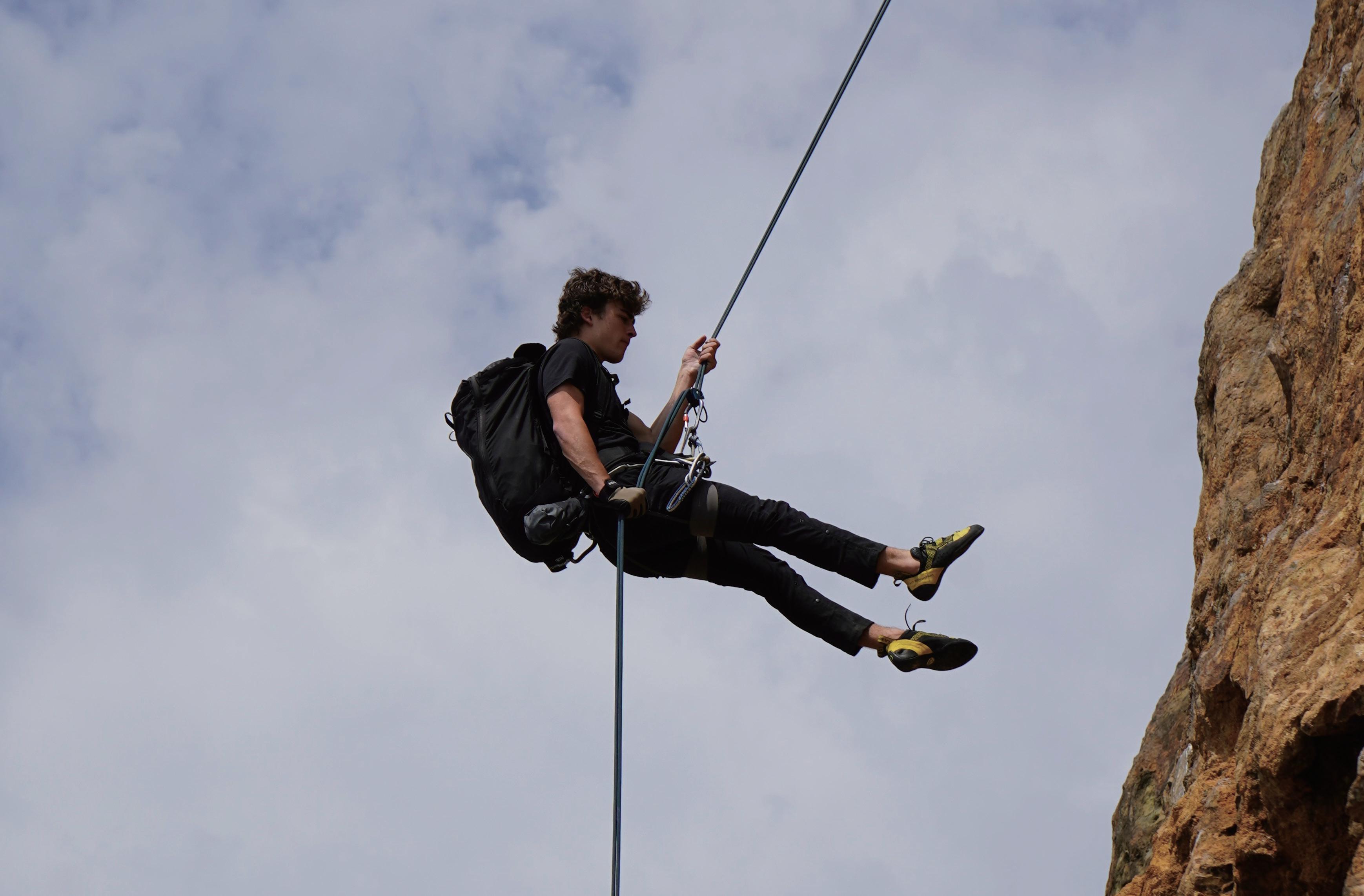
and only two hours to get back down 6,000 feet of vertical mountain to reach the last gondola.
Standing 2,000 feet below the summit of the Eiger Mountain in Switzerland, Parker Beard had just a few hours to come back down the mountain before the last gondola left.
But for this experienced climber, the journey down the mountain didn’t just take skill, it took faith, determination and a strong mindset.
The Eiger is the “only route you can do in the winter solo,” Beard said. This climb was difficult and the slightest mistake could have been life-threatening.
It took Beard a day and a half to climb up. To get there, he had to ditch everything he had except his ice picks and two Cliff bars. He was left without a headlamp and no way up before sunset,
Luckily, Beard had a satellite phone that sent one last text while he was on the mountain.
“I’m going to make it to the gondola,” he wrote.
Beard said he recalled flying down the mountain, going backward for almost two hours until he finally reached the ground and ran to make the gondola
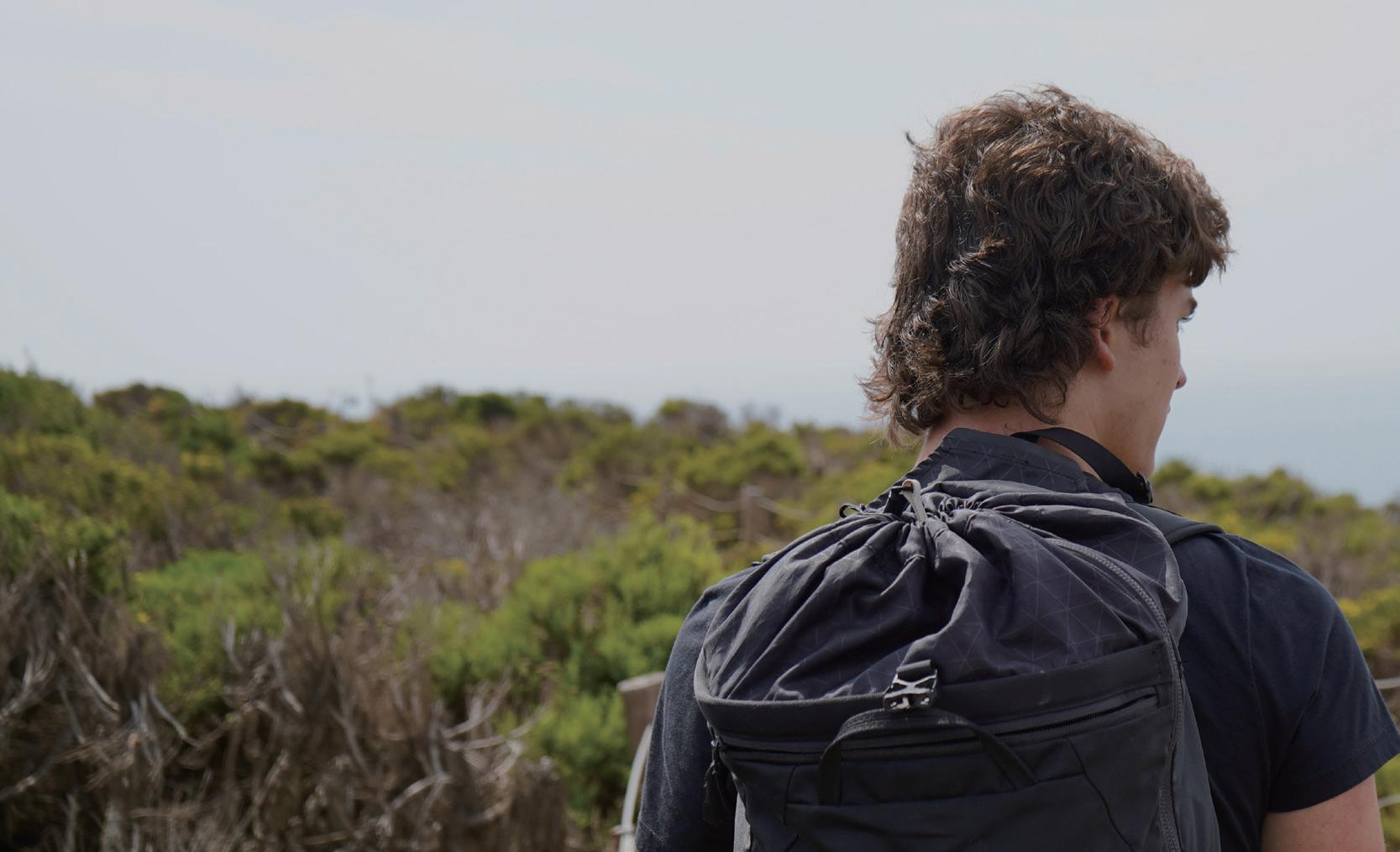
with only 10 minutes to spare.
The senior Philosophy major said he is considering a future in coding or programming. But, his true passion lies in seeking new adventures.
Beard’s experiences with taking risks and adventuring into the unknown has

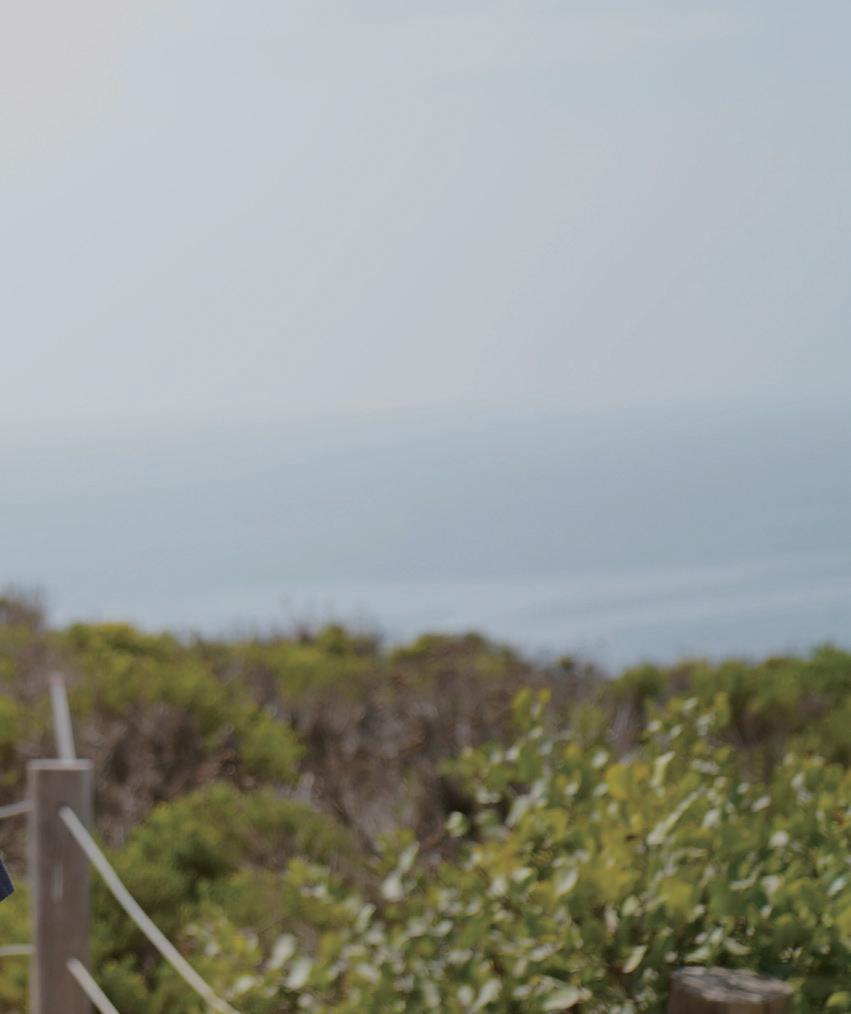
shaped more than just his approach to traveling. As the president of Alpha Tau Omega, Beard said he applies the lessons he has learned to his leadership position, pushing his fraternity brothers to go above and beyond their limits, embrace challenges and take risks.
Business Professor Chris Collins, a close family friend, said he has always admired Beard’s unique ability to remain confident and calm under pressure.
“[Risk] does not give him tunnel vision,” Collins said. “He actually looks wider in the face of threat, and that’s a unique thing. I feel like his choices are just blossoming when he feels that kind of pressure.”
Beard’s love for adventure has taken him to all 50 states and most of Asia and Europe. He said his favorite places so far that he has traveled are Switzerland and Japan because the scenery is beautiful and “everything is so put together and clean there.”
if somebody else has done it, then I can too.”
This philosophy of his translates over to his role in his fraternity at Pepperdine.
As the president of ATO, Beard has become a role model to his fraternity brothers. Collins said he has several students in his classes that are affiliated with ATO.
“They all know and respect Parker as not only their president, but as someone that they look up to,” Collins said. His leadership stands on the same adventurous spirit that pushes him up mountains.
“I always emphasize that there is nothing off limits,” Beard said. “There’s no limit on us to what we can do.”
Central to Beard’s outlook on life is his faith. Whether he is scaling mountains or leading his fraternity, he said he draws his strength from his belief in God’s plan for him.
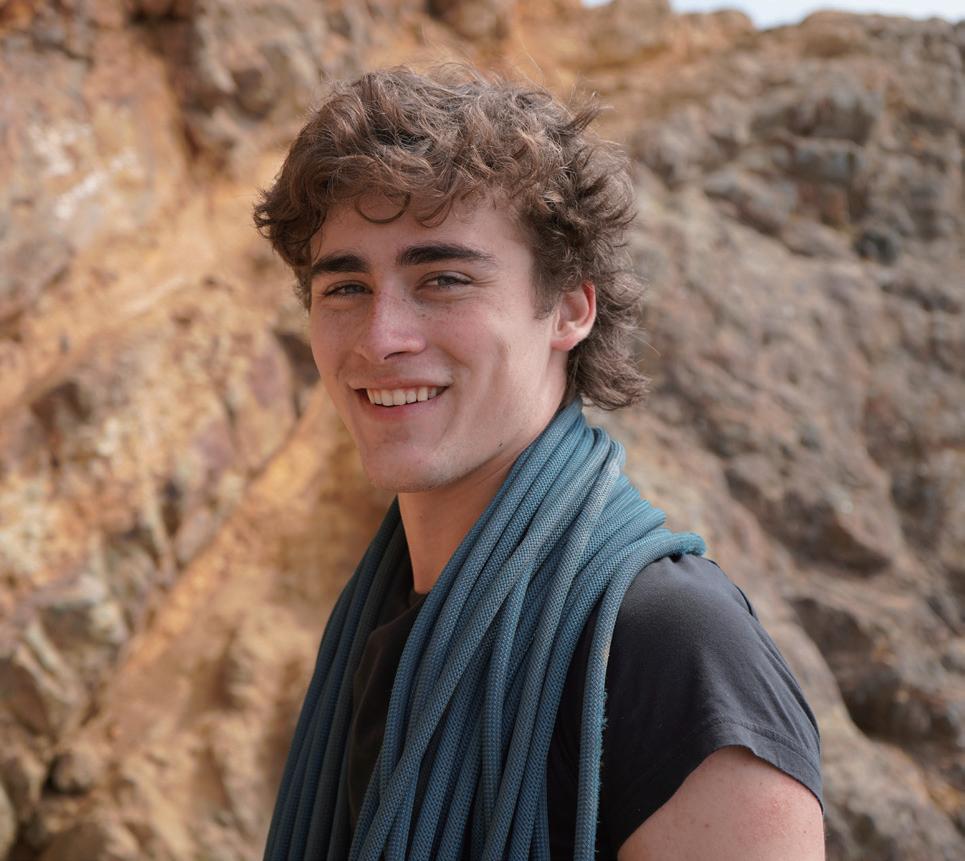
Beard’s adventures are more than just sightseeing. He said they are an extension of his faith and curiosity about the world.
“That’s why I love to travel,” Beard said. “It is to see all of the things that point to God’s creation.”
Beard’s experiences in taking risks have extended far beyond mountains and travels, as he said they also influence his approach to his life and leadership.
“If the route is there, it means that somebody’s done it,” Beard said. “And
With that, Beard said family is a big source of encouragement for him.
“A really big part of being about to do these things is I know I have my family cheering me on, even when I can’t hear them,” Beard said.
Beard’s mother, Sharon Beard, the dean of students at Pepperdine, introduced the value of creating “longterm memories” throughout their family’s lives, he said. His mother emphasized the importance of core memories that make all of the risk-taking while traveling worth it.
Beard said his adventurous spirit won’t stop at graduation. He hopes to continue exploring the world’s terrains, challenging or not. His bucket list includes climbing to the peaks of the Patagonia mountains and traversing the Sierra Nevada.
Although Beard’s future career will revolve around coding and programming, he said his adventurous side will never go away.
“If I make it a priority then I can do it forever,” Beard said.
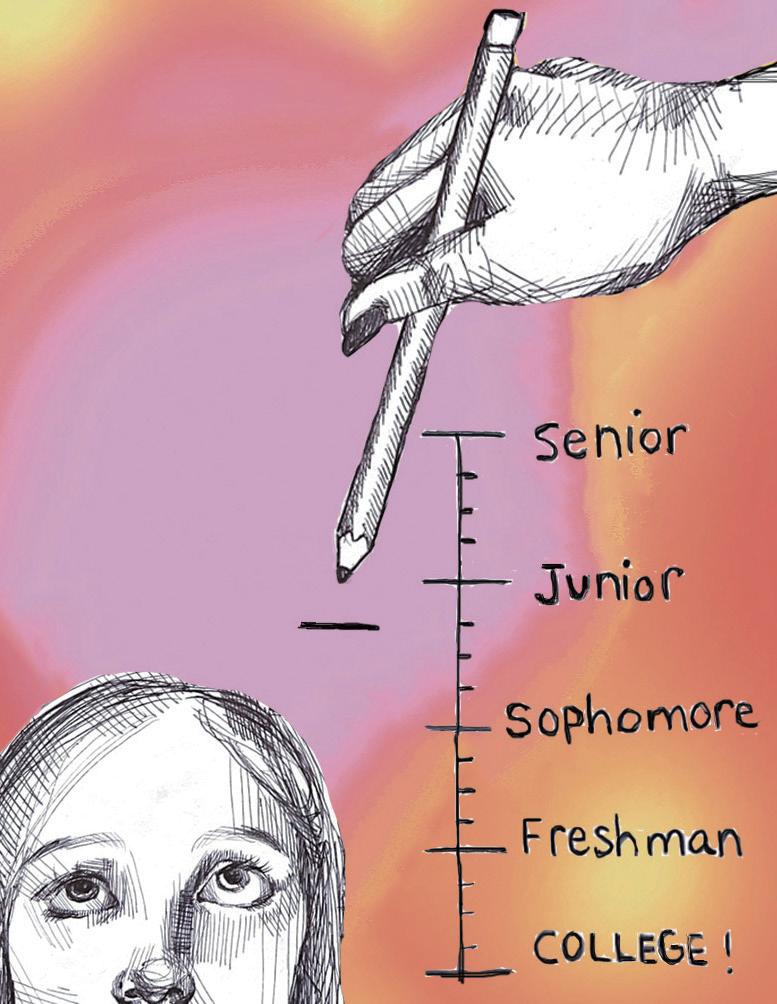
self are immature, hyper-anxious and an overthinker.
Often, entering college, students think they know exactly who they are. Throughout their four years, they come to find out they’re just starting to discover the person they are meant to be.
Every college student has their own unique story about how their time in college has shaped and molded them into the emerging adults they both are and are becoming. Three Pepperdine students said there is a stark contrast between their first-year and senior-year self.
“It [college] is a time that is set aside for exploring these questions of like, ‘Who am I?’” said Falon Barton, campus minister for the University Church of Christ. “‘What do I want to do with my life? Who do I want to become? What kind of family do I want to create? What kind of friendships do I want to have? What do I believe about God? What kind of faith do I want to develop and grow into?’”
Grant Bishop, senior Computer Science major, said some of the adjectives that describe his first-year
Furthermore, Bishop said he struggled with social anxiety, where he would find himself freezing mid-conversation. He often wasn’t sure what to say and had a habit of talking himself out of doing things he wanted to do.
“I wanted to rush my freshman year,” Bishop said. “I just talked myself out of it, and, looking back, I could have done it. I rushed my junior year, which was fine.”
Hannah Loewen, senior Integrated Marketing Communication major, said the area that she has grown the most in during her time at Pepperdine is spiritually. Despite knowing Jesus since she was 4 years old, her time at Pepperdine is what has solidified her faith as an adult.
Before coming to Pepperdine, Loewen said her faith was elementary, and as a result her first-year self was unsure of what her purpose was.
“She really was looking for what her purpose was,” Loewen said. “But she didn’t know exactly how to find it, and so she spent a lot of time trying different things, trying to figure out, really, what was going to be for her.”
Ary Napora, senior Sports Medicine major, said her first-year self was a lot less outgoing than she is now. She found herself in her room studying most nights and didn’t look to make any connections beyond the friends she had made in her suite.
“She was very afraid of making new friends and adapting to life in college,” Napora said. “I was not very outgoing, and I kind of just stuck to my suite and like once I made those friends, I kind of didn’t branch out from that group.”
Three years later, Bishop said some of the biggest lessons he has learned during his time in college are the importance of surrounding oneself with the right people and making decisions for oneself.
Some of the people Bishop said he thanks for helping him throughout college are Grant Lee, Dylan Duggan, Ryan Woytowitz and Jeff Walling, his first-year seminar professor and director of the Youth Leadership Initiative. After Bishop started prioritizing himself, he found himself making these close connections.
“I needed to seek out people and also just be more confident in myself, and that allowed me to just find people that wanted to hang out,” Bishop said.
As for Loewen, she said getting to explore both her general education and major classes through a Christian lens, along with being able to have difficult conversations about her faith, helped her develop her spirituality.
Beyond just conversations, Loewen said she attends Vintage Church Malibu, The Well and Friday Night Lights, all of which have helped connect her with Jesus, and helped her destress and take a step back when she is overwhelmed with classwork.
“I’ve become inherently more confident, more joyful,” Loewen said. “I will get up with purpose in the morning, and I’m super excited. Instead of being scared of what my future holds, I’m
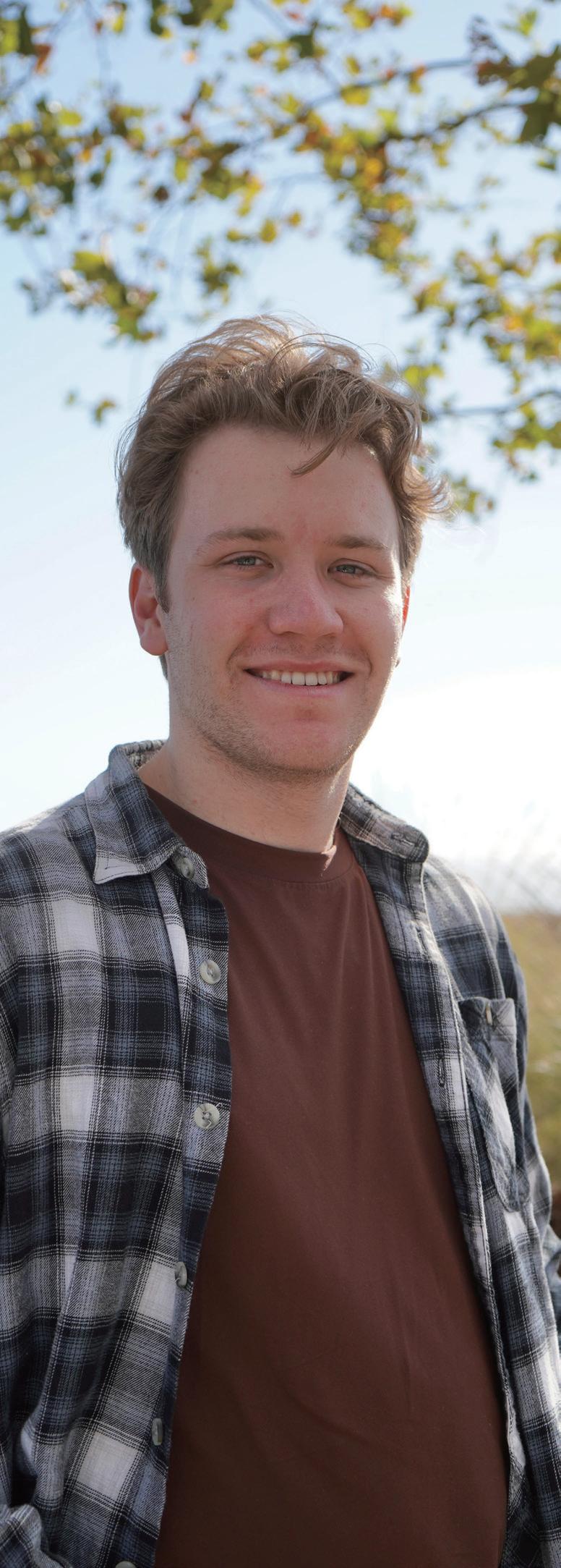
excited and expectant for the next chapter in life.”
One person Loewen said she wants to thank for helping her grow during her time in college is her roommate, senior Makenzie Homrich.
“She has been such a biblical friend in terms of calling me higher,” Loewen said. “Encouraging me and knowing scripture and how to pray with me over certain situations in my life, whether it’s stress or it’s hurt or it’s looking forward to the future, she encourages me like and loves me like Jesus does, and she is such a reflection of him.”
Loewen having a roommate to help guide her spiritually is right in line with many other emerging adults, said Barton, who studies emerging adulthood. While emerging adults are very spiritually curious, they often find their spirituality in different places than older generations do.
“We [emerging adults] still have a large amount of involvement and curiosity in faith communities,” Barton said. “Emerging adults do tend to be more friend oriented, and so sometimes they find their spiritual fulfillment in friendships, as opposed to in traditional faith communities.”
The turning point for Napora breaking out of her shell was when she studied abroad in Switzerland during the Spring 2023 semester. Abroad, she was forced out of her comfort zone by traveling in a country she was unfamiliar with, with people she had recently met,
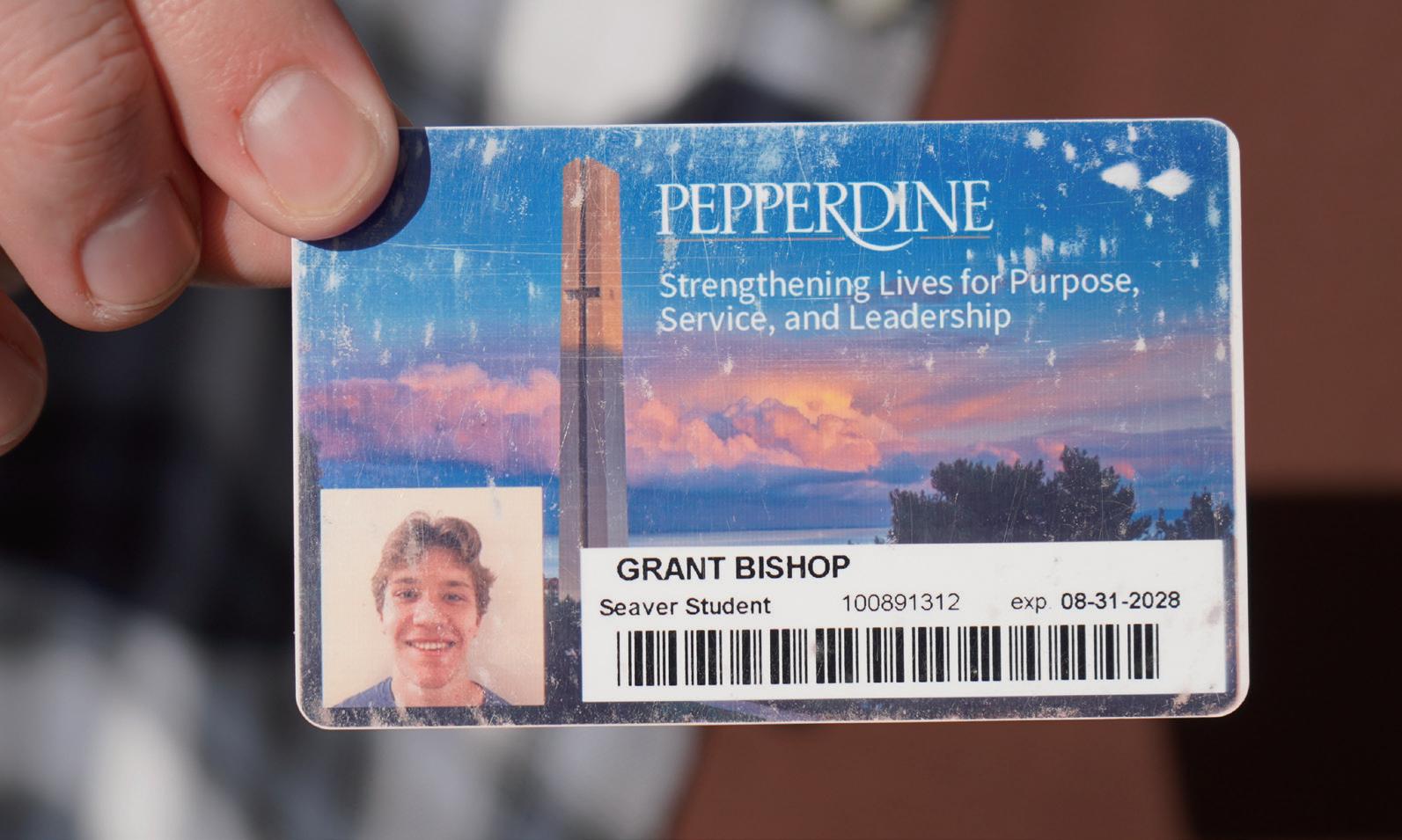
which helped break her habit of keeping to herself.
“Abroad was really where all of that stems from,” Napora said. “Having to navigate a new country with people that I’ve never met before, completely being on your own — isolated from everything that’s familiar. And there were a lot of pros and cons, like mistakes and awesome things that happened there.”
Napora said she almost didn’t want to go abroad because she was nervous about facing the challenges that come with being in a foreign country. Now, her abroad experience has completely changed her college experience.
Barton said from her time of observing Pepperdine students, going abroad is one of the most common experiences that will lead to growth in a college student.
“Traveling and making new friends, it can bond you with people really closely,” Barton said. “Because, you get stuck because of a delayed train in Paris in the middle of the night, and you have to sleep on a bench, all of those kinds of things are really bonding experiences.”
In addition to the close bonds Bishop has made, he said learning to make decisions for himself has completely changed his college experience for the better. One of the biggest changes from his first-year self is he doesn’t get worked up over little things — especially socially — and is confident in who he is.
“Just trusting myself, listening to my gut, I think that’s one of the most important things you can do in college,” Bishop said. “A lot of friends might be doing this. A lot of friends might be saying, ‘Oh, I want to go rush. I want to join this club,’ but at the end of the day, you have to do what you want to do, and what’s gonna make you happy.”
Two habits Bishop said he is doing now that he wasn’t doing his first year are consistently attending Vintage Church Malibu and journaling. Journaling helps him recap recent events and get his thoughts out, while church helps start his week off on the right foot.
“When I go to church, sometimes
they tell a lesson where I feel like, oh, maybe I’ve been lacking in that quality, and I want to be able to help,” Bishop said. “Like, this past Sunday was about generosity and doing things for more, things for others, so I’m trying to find more time to do that.”
Unlike her first-year self, Loewen said her faith has helped her find her purpose by understanding that God has placed everything in her life.
“Instead of being fearful just because that isn’t something that maybe some of your peers that are closest around you don’t like,” Loewen said. “It doesn’t mean that it’s not for you and go out and seek individuals that have those same callings and passions, because it’s something that God has placed in your life.”
Napora said one of the biggest lessons she learned from her time abroad was navigating a work-life balance. Rather than focusing so much on school, she’s now able to take a step back and enjoy the moment.
“It makes me appreciate the little moments more,” Napora said. “And it’s also helped going on adventures and doing all these things to put everything into perspective of how insignificant some of the really big school things can feel when there’s so much world around
and just embracing that has been something new.”
As Napora is entering her adult life, she said she will take what she learned during her time in college and abroad to make sure she doesn’t fall back into her previous habit of keeping to herself too much.
“Instead of being scared of what my future holds, I’m excited and expectant for the next chapter in life.”
Hannah Loewen Senior
“Never stop learning and adventuring,” Napora said. “Always keeping that work-life balance, always having those fun things to do that break like the mundane routines of daily life — just carrying that spirit and that adventurous attitude outside of college.”
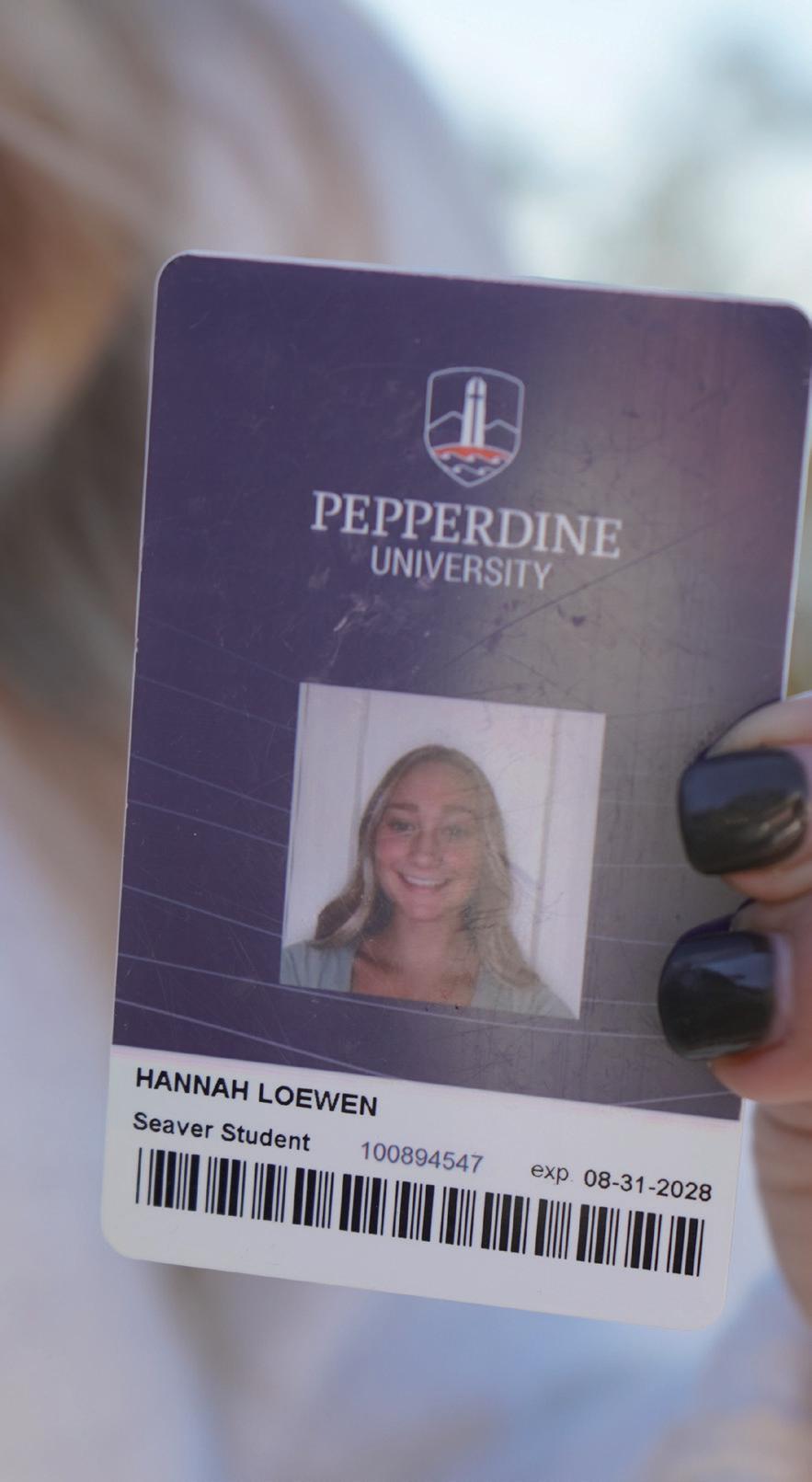
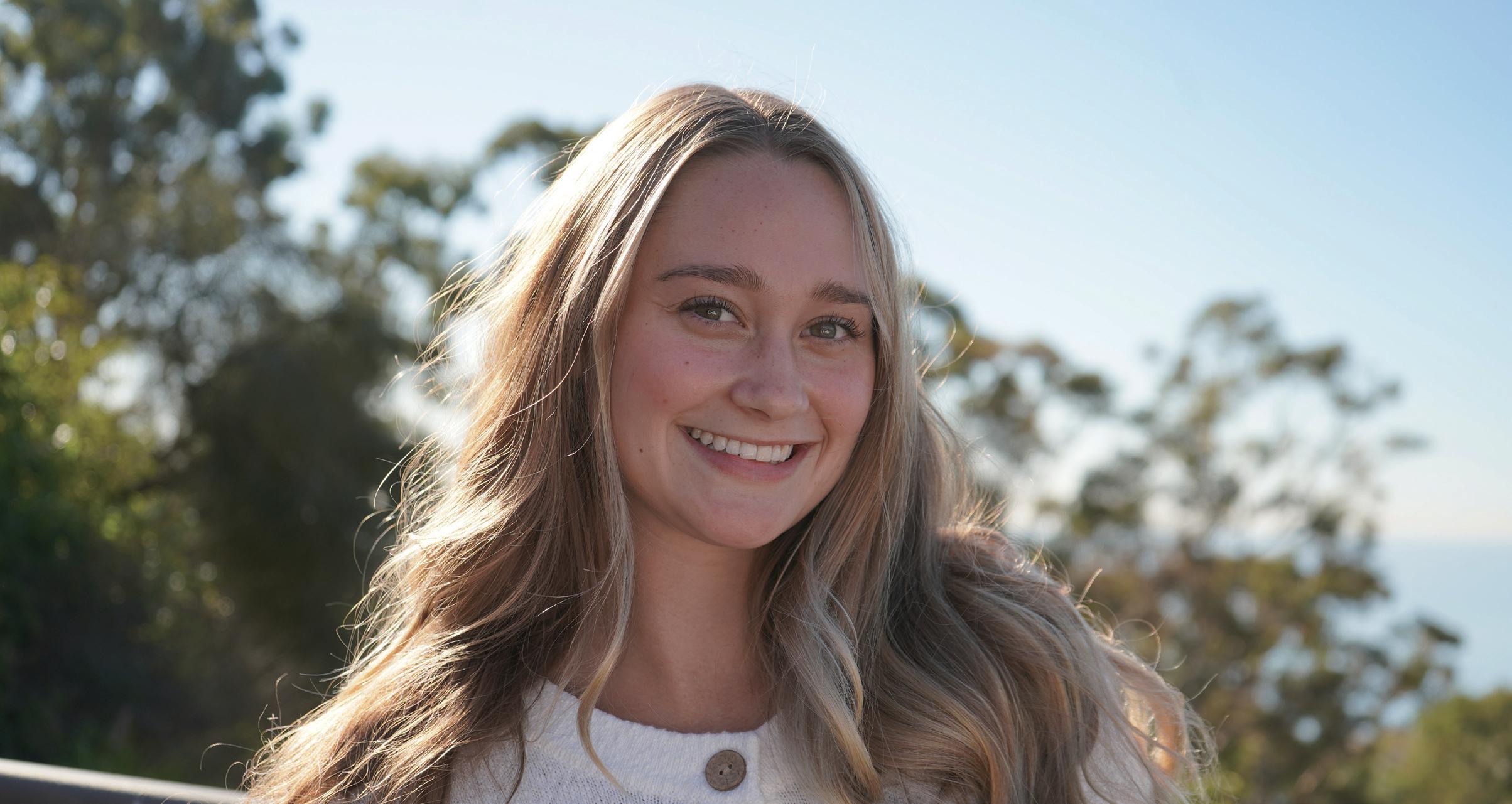
“I like the fact that it’s kind of an escape going to Paris,” Nehrir said. Her perfect day in Paris would begin at a local coffee shop with a coffee, before starting her self-guided walking tour, she said.
Katie Nehrir, a sophomore from Newport Beach, the capital of suburbia as she described it, prefers to spend her vacations in large bustling cities. She said she appre ciates the various activities and culture they have to offer tourists. The No. 1 city on her list to visit is Paris.
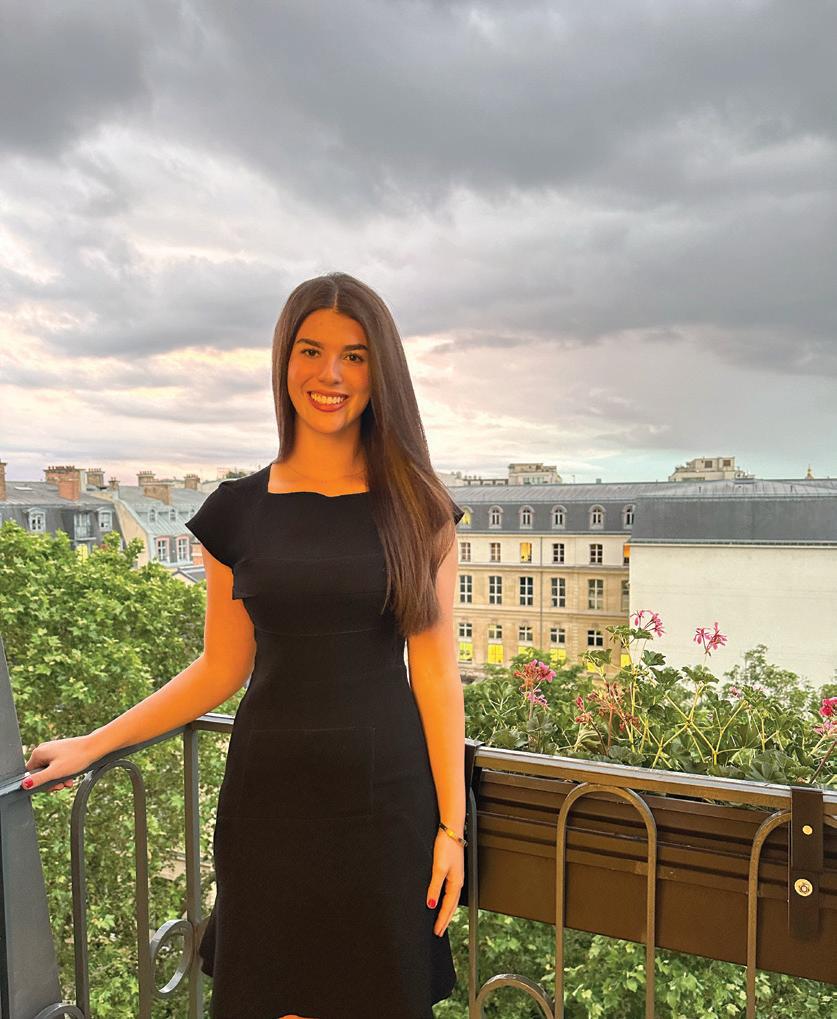
“I try to look for the smaller moments,” Nehrir said.
Nehrir’s most memorable trip to Paris was this past summer while studying abroad in Pepperdine’s International Program at the Chateau d’Hauteville in Switzerland. She described the solo trip

“I got on a train early in the morning, and I went there completely solo,” Nehrir said. “This experience offered a lot of growth, and having that sense of accomplishment and like I could do
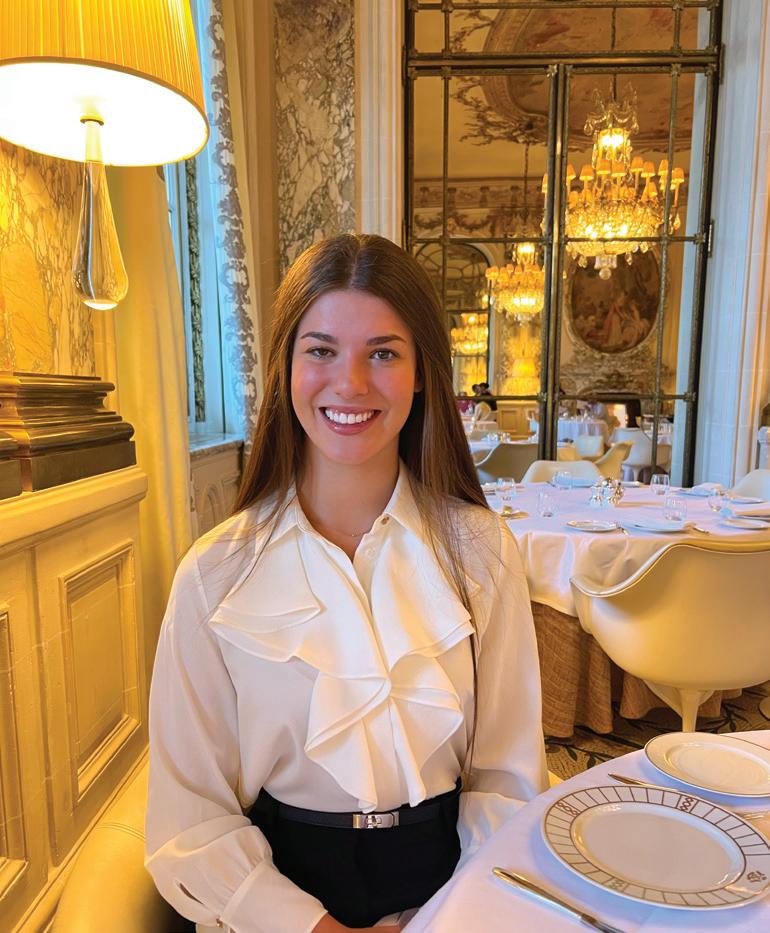


Place de la Concorde, and pausing to listen to street musicians she stumbles upon, she said.
A favorite space of Nehrir’s in Paris is the Musee de l’Orangerie. The museum Claude Monet created is meant to be a sort of meditative space, Nehrir said. The Musee de l’Orangerie showcases Monet’s impressionist “Water Lilies” series that gives the illusion of an endless horizon.
“The museum allowed me to take the time and pause and reflect and just be at peace for a few moments,”
Nehrir studied French in high school and has continued the language in college. She said it’s been a rewarding experience to practice abroad with na-
Nehrir’s top three Paris recommendations include trying to speak French, allowing oneself to get lost in new experiences and following locals on the offbeat path.
“Just try to have as authentic of an experience as possible,” Nehrir said.
Senior Sofia Hernan dez said the fluid and fam ily-oriented city of Madrid, Spain, is one of her favorite destinations to visit.
As a Mexican-American, Hernandez said she’s visit ed Madrid several times to see family.
Hernandez said she en joys staying near the Parque de El Retiro in Salamanca. The park, comparable to New York’s Central Park, is known for its nature and roaming peacocks.


Manolo Bakes is one of Hernandez’s favorite morning spots to grab a crois sant and a coffee. She credited the boutiques along Calle de Lagasca for building her wardrobe. Something unique about Madrid’s boutiques is that many of them don’t have names.
“Weekends are super family-oriented,” Hernandez said. “You’ll stay at the same restaurant table for like five hours at a time.”
well-seasoned rice and seafood dish. Hernandez’s recommended restaurant for paella is Amparito Roca.
drid] when I’m older,” Hernandez said.



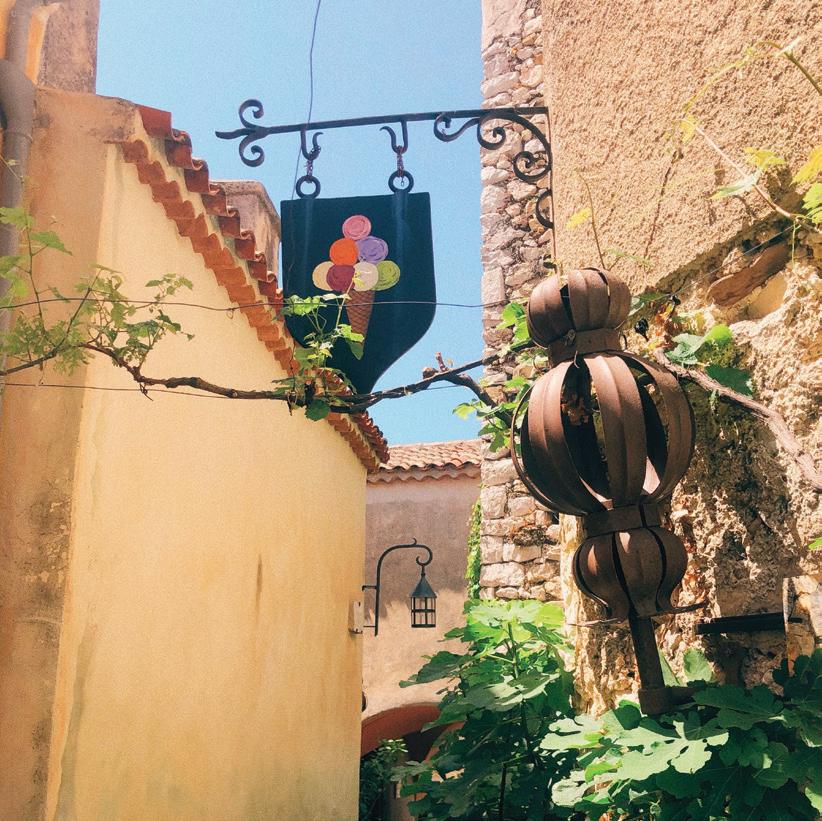




story by Kylie Kowalski photos by Liam Zieg design by Betsy Burrow
Encountering one free spirit isn’t necessarily uncommon, but finding three roommates who share the same love for spontaneity and adventure is a rarity.
Senior Connor Housefield and juniors Peter Runey and Morten Hansen all bring unique life experiences and a “you only live once” YOLO mantra to their shared lives as roommates in their apartment off campus in Point Dume, Malibu.
“I’ve had some once-in-a-lifetime opportunities,” Runey said. “I knew it would be foolish to let them pass by.”
All three of the roommates said they’ve had defining moments in their lives before coming to Pepperdine that make up who they are today, and explained how their friendship has fueled their spontaneity.
Runey’s lifestyle illustrates him as a particularly spontaneous person. During his gap years before Pepperdine, he frequently found himself craving travel and adventure. Runey lived in a van for four months, where he explored the United States and Canada, starting in the Outer Banks, North Carolina, and ending up in Yosemite.
Shortly after his trip around the U.S., Runey said he still felt his heart stirring.
“I could have stayed at home with my parents, but I kinda wanted to do something crazy,” Runey said. “So, I had a little bit of money saved up and I moved to Sicily for a month.”
Runey lived in Sicily with the goal of becoming a local. He didn’t travel, but said he wanted to find community and make a second home in Italy. His goal while living there was to rest before starting at Pepperdine.
Even though he experiences fear sometimes, especially with language barriers and uncertainty, Runey said that getting out of his own head and pushing himself to talk to new people has been influential in accomplishing his goals.
“I could have stayed at home with my parents, but I kinda wanted to do something crazy.”
Peter
Runey Junior
Another one of his goals in Sicily was making friends. He said he didn’t accomplish this until near the end of his month there, but forcing himself to go up to strangers was one of the best things he did for himself.
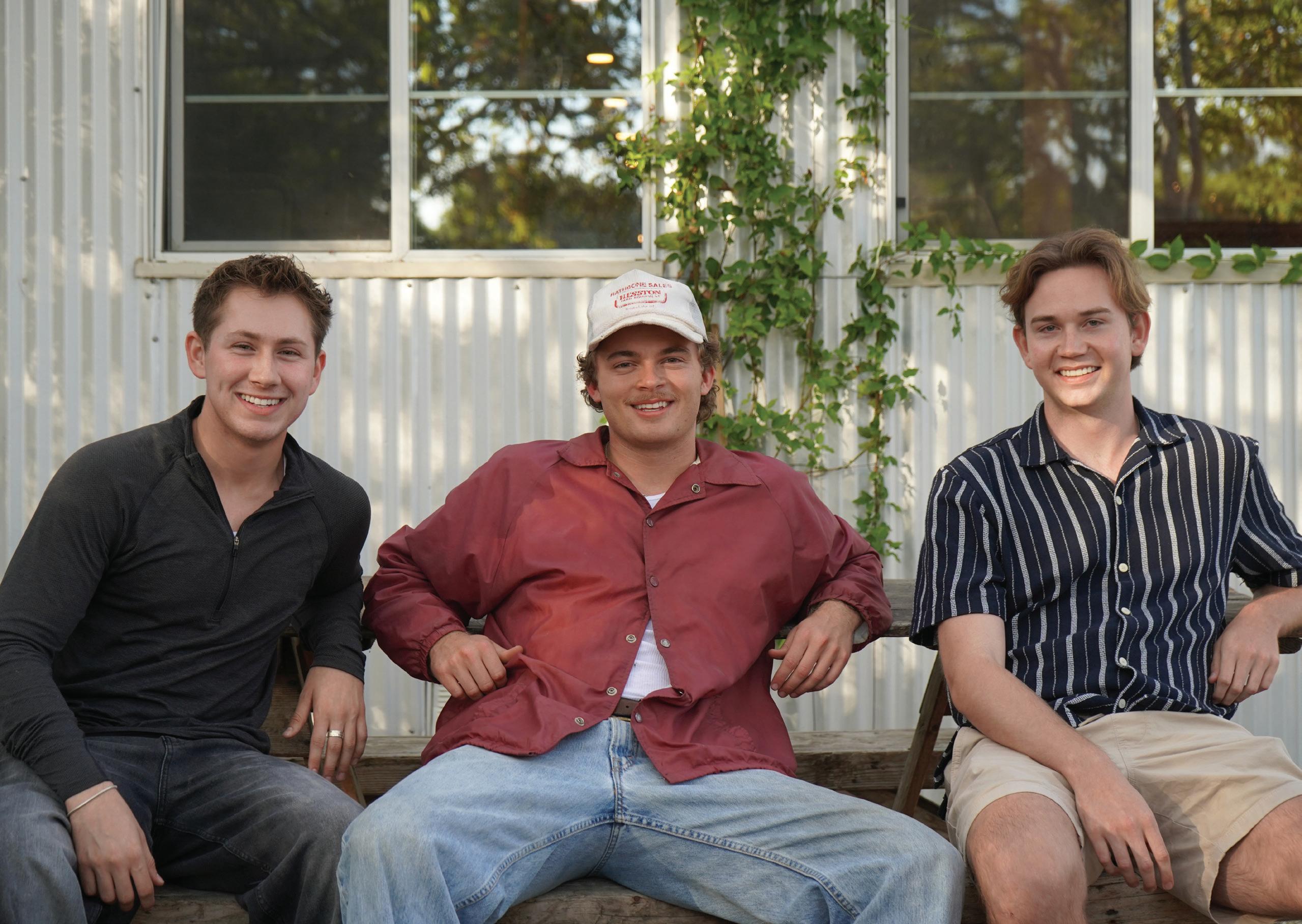
“In that moment I was standing literally in-between the intersection to see the road that would take me back to my place, and then to my left was this cafe that I loved, and these guys talking,” Runey said. “So I saw my choices physically, and mentally pinched myself to force myself to go talk to them.”
Runey said he now calls some of these guys his best friends, and goes back to visit them whenever he has the chance.
A defining moment in Hansen’s life was when he spontaneously decided to join his high school basketball team. He fell in love with the sport and said it ended up bringing him down a new path.
“Choosing to say yes to something I was slightly skeptical [about] brought me to New York City to play college basketball with people I never would’ve met otherwise,” Hansen said.
Hansen said without moments like this, he never would’ve ended up at Pepperdine, and he is grateful for those decisions where he made the leap and denied his skepticism.
Housefield said he most felt the “YOLO” lifestyle pre-Pepperdine when he began a laughter yoga club in high school. He said it was more than just a club, rather a moment of encouragement to just be himself.
Housefield said a huge part of why he is able to be so spontaneous is because he trusts God will help him through any situation.
Moving to Malibu was Runey’s 18th move in his lifetime. He’s lived across many continents and said moving around so often actually makes his travels easier. After his month-long
reset, Runey found himself prepared to take on the new adventure that is Pepperdine, bringing his adventurous spirit with him.
“Malibu is only as fun and beautiful as you are willing to be spontaneous about what she [Malibu] holds,” Runey said. “It is what you make of it and I haven’t gotten sick of it.”
Hansen said he and Runey met at Pepperdine’s transfer student New Student Orientation, where they realized they share many similarities, like their love for food and trying new things. Through Runey, Hansen and Housefield met, where they all grew close with one another and decided to move in together the following year.
Even though the three roommates met only last year, Runey said they all share the same spontaneous desires.
“Mort will walk out of his room and say ‘I’m feeling a drive,’ and I won’t even
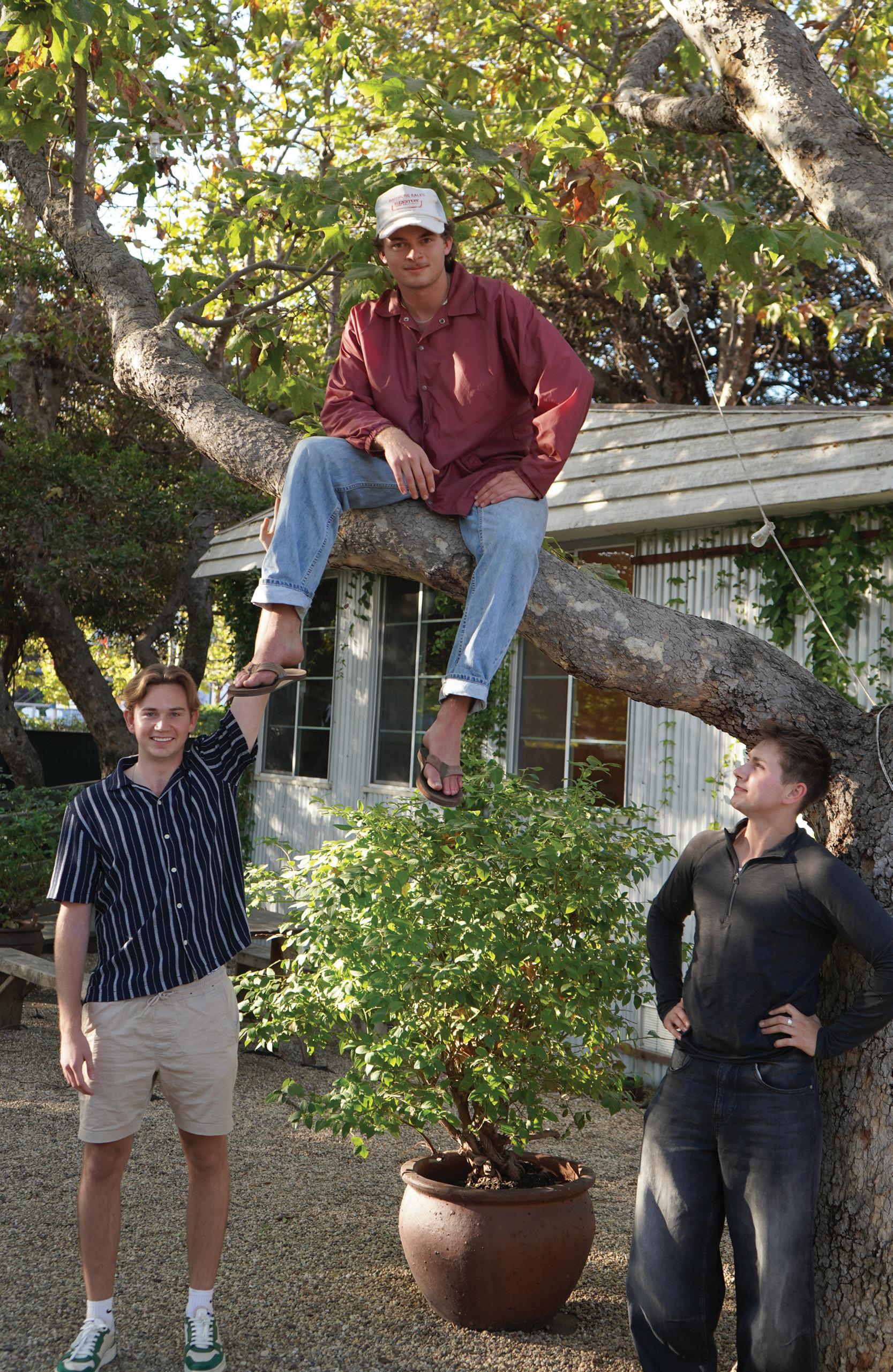
say anything but throw on a jacket, and maybe not even shoes, and I’m there,” Runey said. “Open-endedness is a key characteristic in our adventures.”
Getting older has allowed Hansen to better appreciate spontaneity and saying yes to random decisions. He said some of his best memories came as a result of being open to whatever comes his
way, and he feels appreciation for them.
“I think those two guys [Runey and Housefield] are very spontaneous,” Hansen said. “A big thing that we all do for each other is just keep one another on our toes.”
Hansen said every single day is a new chance for the three of them to embark on a random new journey or to
experience something they’ve already done from a new perspective.
“We’re all cognizant of the fact that we all just want each other to have fun,” Hansen said.
Hansen also said he finds joy in the little moments where he thought “there would be monotony,” but it ends up becoming very special and unique.
“It has been a joy sharing this house with those two,” Hansen said.
Housefield said his roommates help him in his spontaneity, recalling a time when the three of them randomly decided to have a big group of friends over, 15 minutes before they even got home.
“It takes conscious effort to be spontaneous,” Housefield said. “So I think it’s easier to have other people, because it’s so much harder to be spontaneous alone. I think it’s contagious.”
All three roommates said they build off each other in their spontaneity and adventure, and Hansen said he is lucky to have two close friends who push him to try new things.
“Sometimes planning is the enemy of spontaneity,” Runey said.
Even though school has become his priority, Runey said he still tries to be spontaneous whenever he gets the chance. During the last Harvest Moon, Runey said he and a friend decided they would be missing a great opportunity if they didn’t go surfing that night. They ended up surfing until midnight on a weekday, and he recalls it as one of his favorite memories at Pepperdine.
“How exciting your life is hangs in the balance of those decision-making moments,” Runey said. “It’s where it [the opportunity] seems really small, but imagine at that moment you could teleport yourself out to the full moon, or you could be sitting at home watching ‘The Office.’”
Runey said each adventure he takes spurs on his future spontaneity, because his track record of having fun each time is strong, and he trusts that the outcome will be worth it. Even when Runey’s van
broke down on a trip, he still found a way to make the trip work.
“Just saying yes takes you to some crazy places, and I try to bring that energy to Pepperdine,” Runey said.
Hansen considers himself spontaneous, but said he finds his spontaneity in a more structured way than his roommates.
“A base of my spontaneity comes in the fact that I have a very structured schedule that allows me to be spontaneous,” Hansen said.
Hansen said he has a lot of fixed time where he completes his necessary obligations, which leaves open a lot of time where he can allow himself to be spontaneous and say yes to anything he wants.
A typical day for Hansen looks like getting his classes and homework done every day by 5 p.m., which he said allows for him to have the rest of the day to be open to spontaneity because he has no other commitments.
“I really like to be open to things that come my way,” Hansen said. “I don’t like to put myself in a box.”
Housefield said he feels his spontaneity comes in waves. He is in a time of intentionality and planning, because he has a lot of goals that take more effort and time.
However, Housefield said he still feels that spontaneity is a huge part of his life.
“I think one part of spontaneity is the willingness to try new things,” Housefield said. “But I don’t think that it’s everything. It’s also being excited to drop what you’re doing and do the unexpected, on your own timing.”
One of Housefield’s favorite memories is when he spontaneously flew to Hawaii for a weekend with no return flight. He was flying on standby and said all conditions had to be perfect for this trip to work out.
“Throughout the process, the adrenaline was so crazy,” Housefield said. He defines spontaneity as “being hopeful without expectation.”
Housefield said that each time he says yes and tries new things, he is going against the grain of what is easier, and it ultimately builds his confidence.

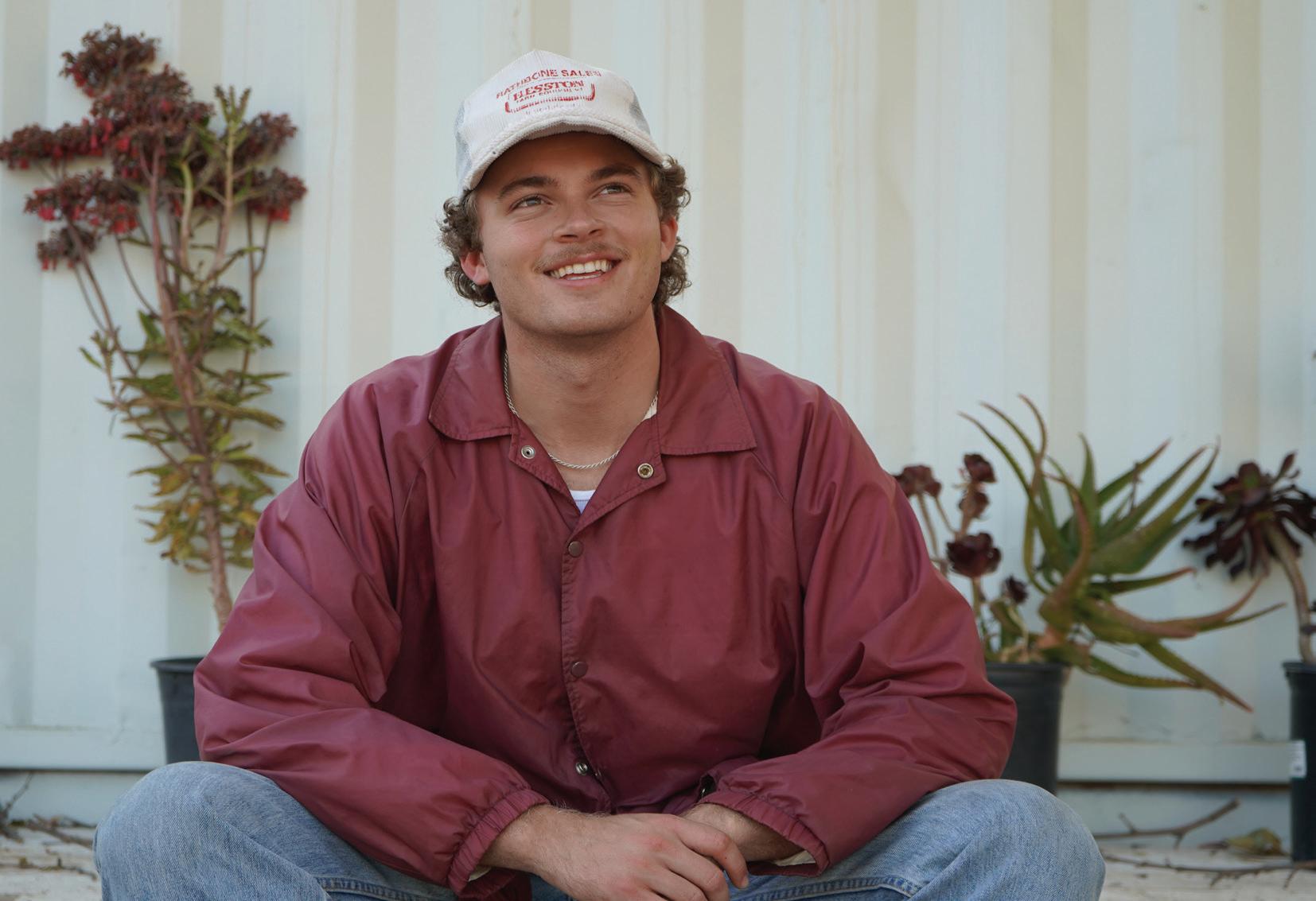
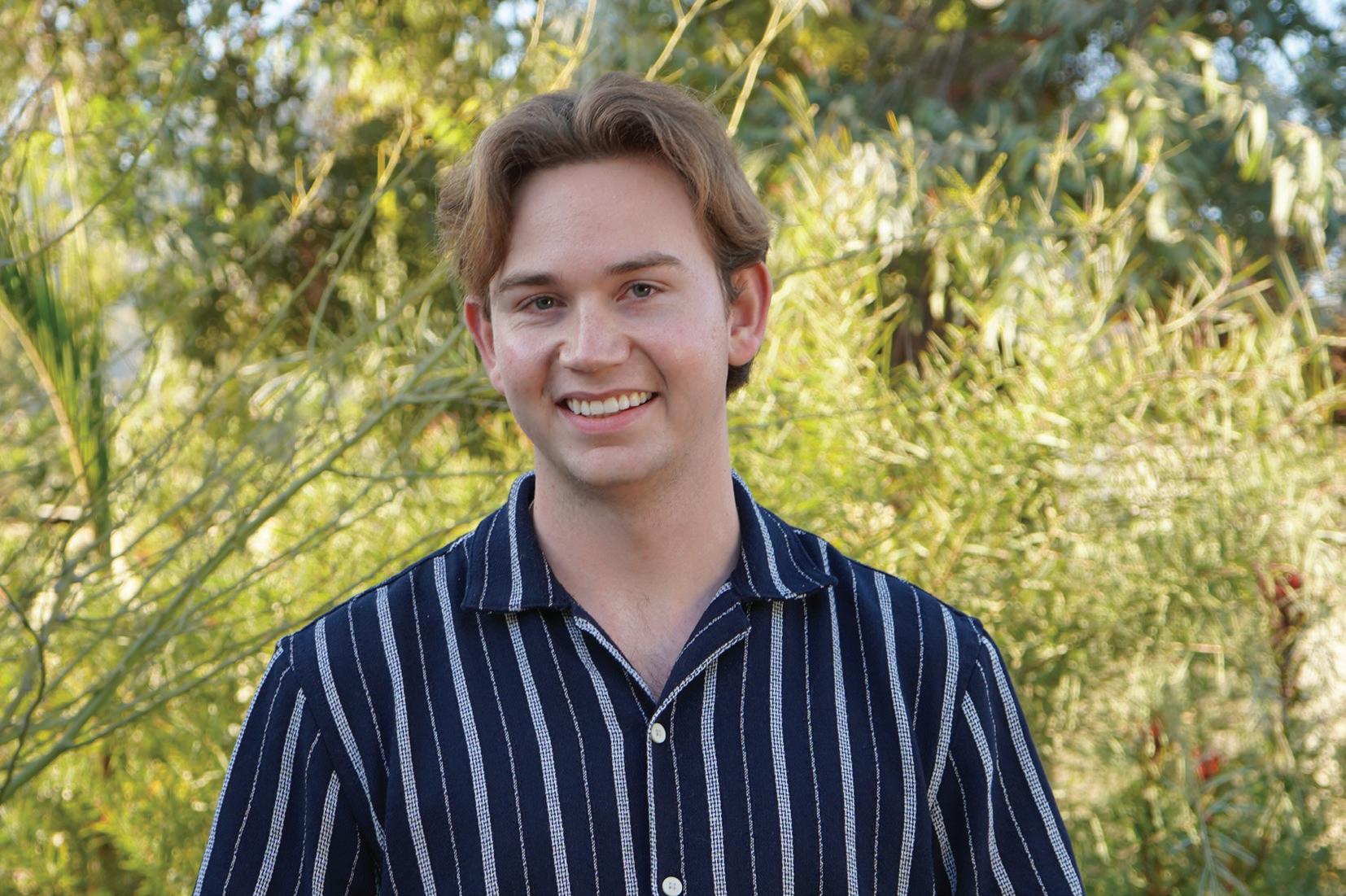
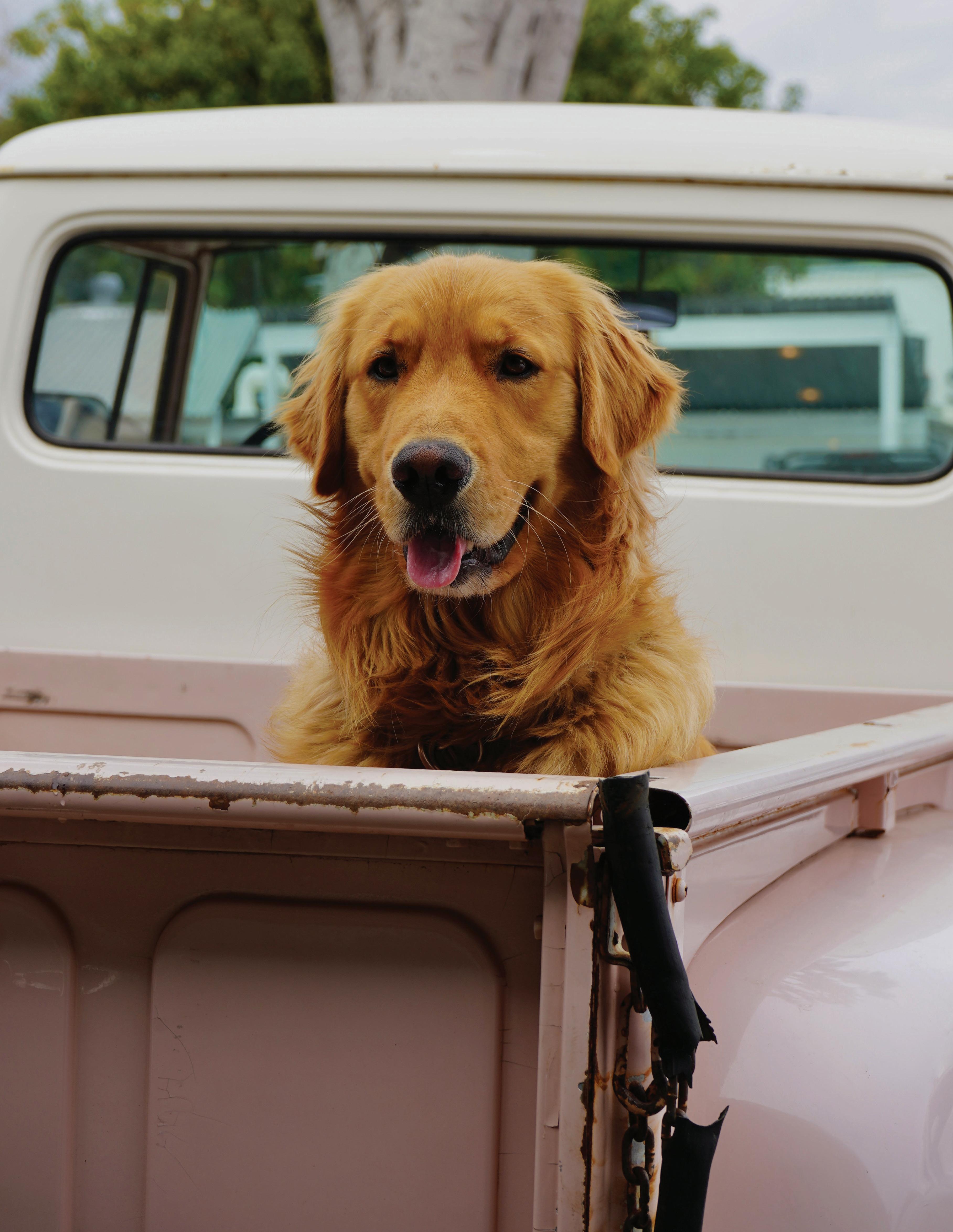
2024